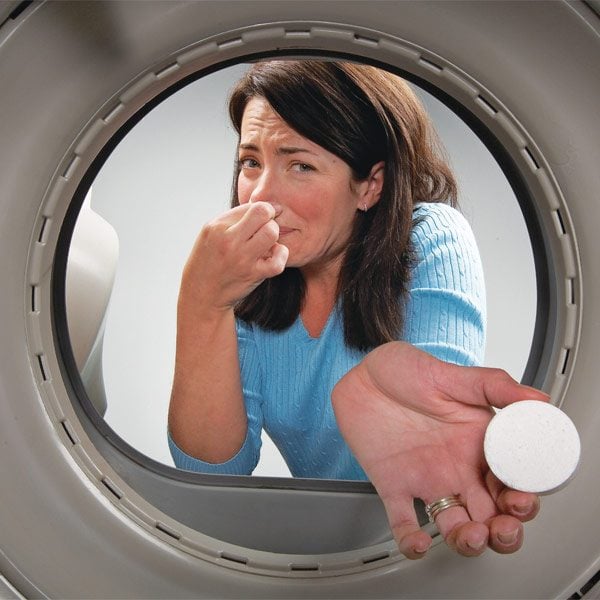100 Home Repairs You Don’t Need to Call a Pro
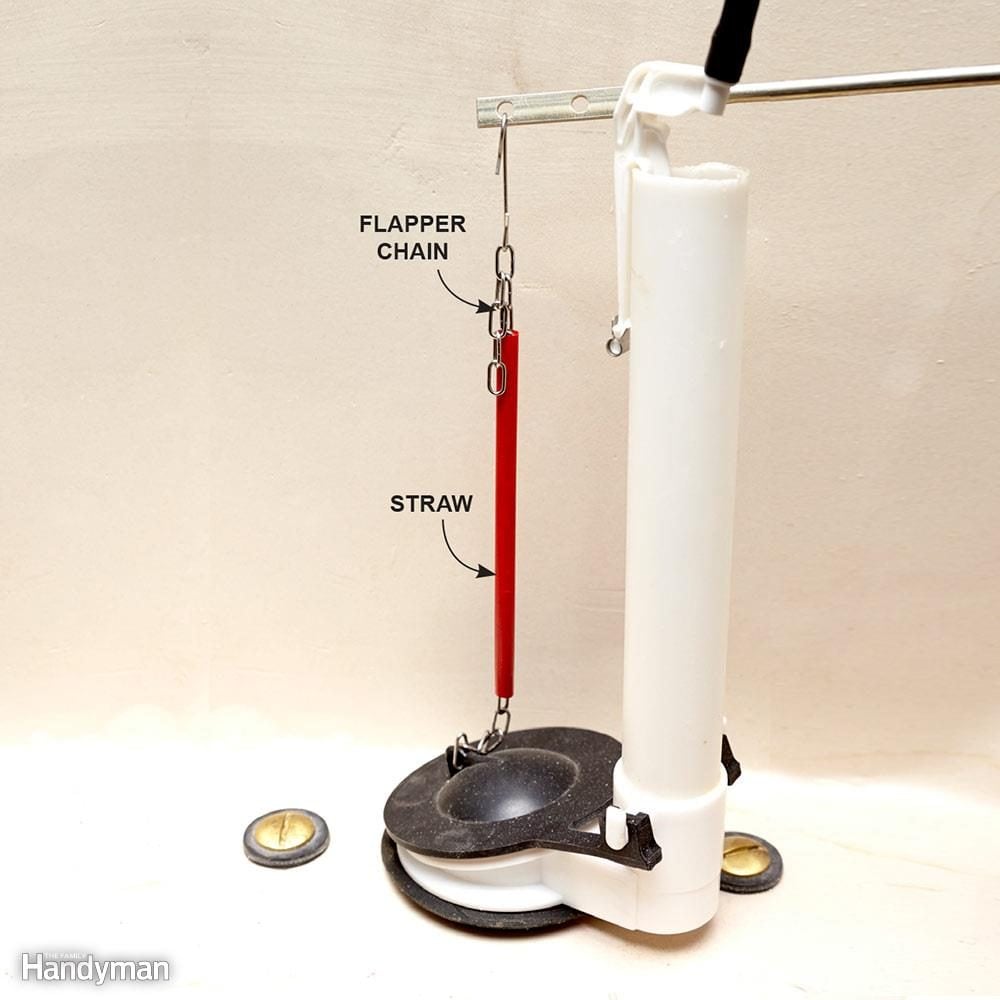
Home Smart Homeowner
You may think some home repairs are out of your league, but even beginner DIYers can handle many of these fixes—and save a lot of money in the process! Browse through the following 100 home repairs to find the step-by-step instructions and advice for doing all of them yourself.
2 / 100
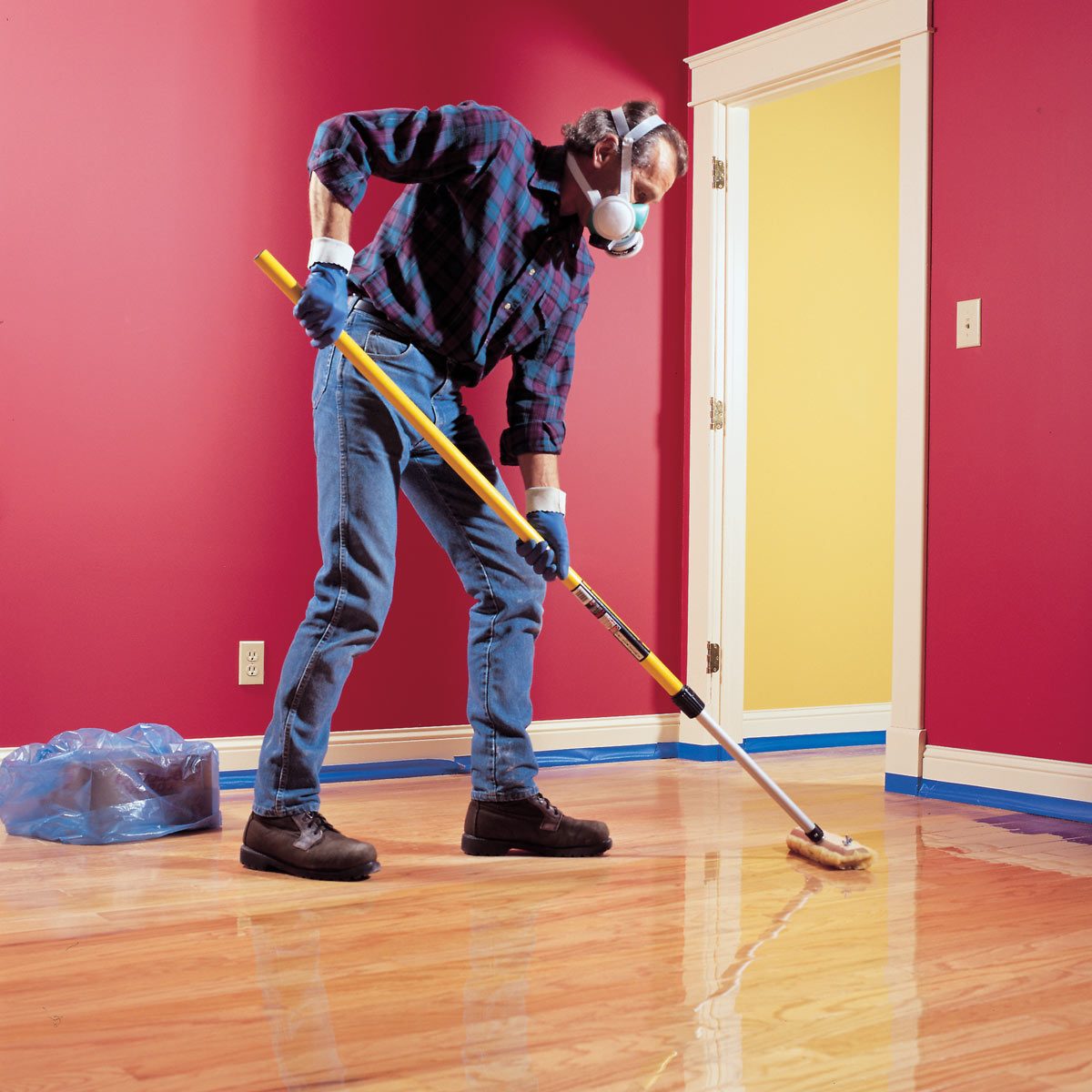
Family Handyman
You Can Refinish Your Own Hardwood
Intimidated by this seemingly daunting project? Don’t be. If you have the will and a whole day (or two) to yourself, you can refinish the hardwood floors in the major areas of your home. You don’t necessarily need to sand, but if the floor is damaged enough to warrant buffing, check out your local hardware store and rent the equipment for anywhere from 4-48 hours. Here’s how to refinish your hardwood floors.
4 / 100
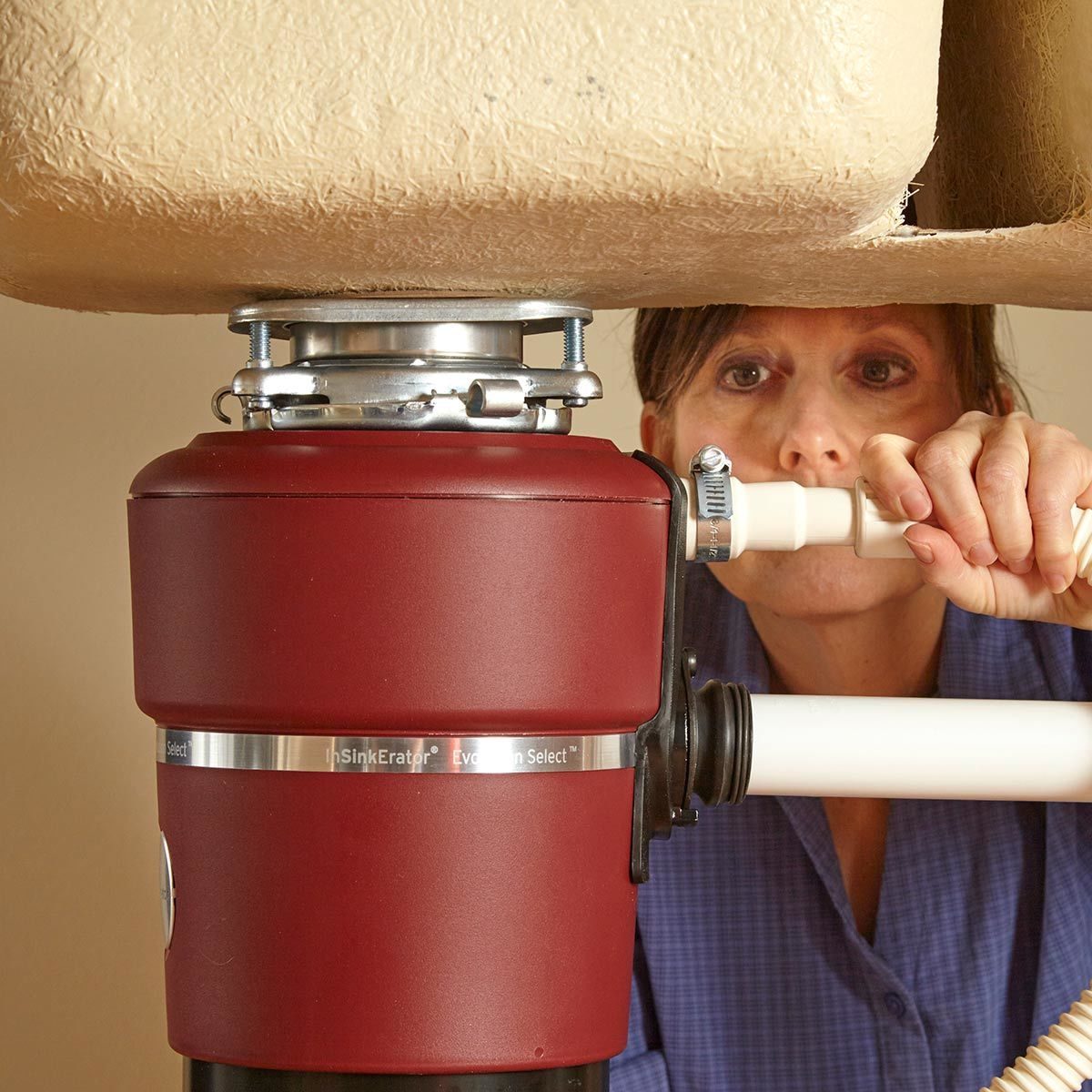
Family Handyman
Garbage Disposal Repair
A garbage disposal is a bit scary when it’s turned on and the blades are noisily chopping up kitchen waste. But, if your disposal gets stinky, fear not. It’s easy to clean out the gunk and get rid of the smell. If the splash guard needs replacing, you can do that in 20 minutes! If you need to replace the entire disposal you can replace it yourself.
5 / 100
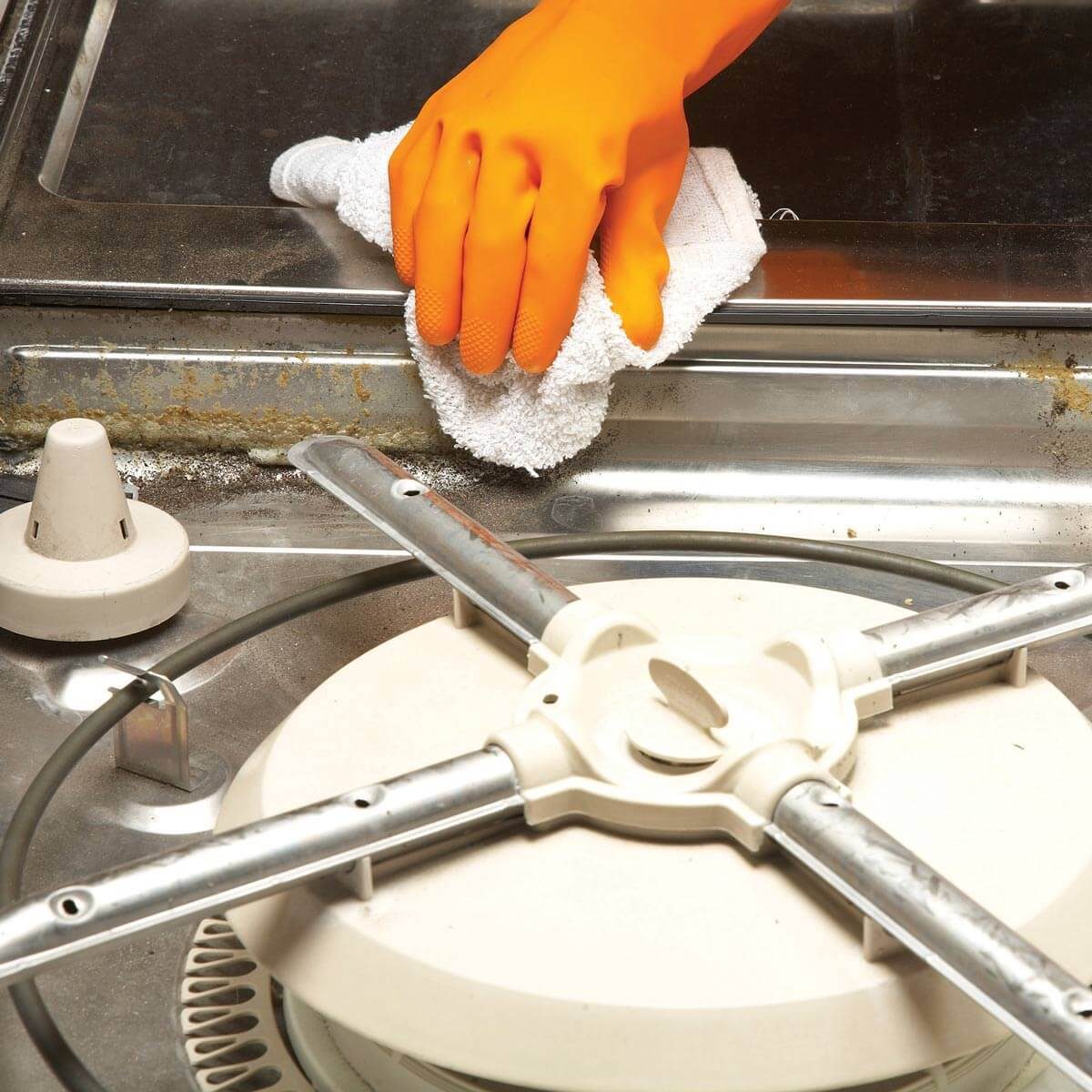
Family Handyman
Fix a Smelly Dishwasher
Stop bad dishwasher odors by cleaning food scraps from the tub and running a dishwasher cleaner through a cycle. It’s a fairly simple DIY home improvement. Learn how to fix a smelly dishwasher.
8 / 100
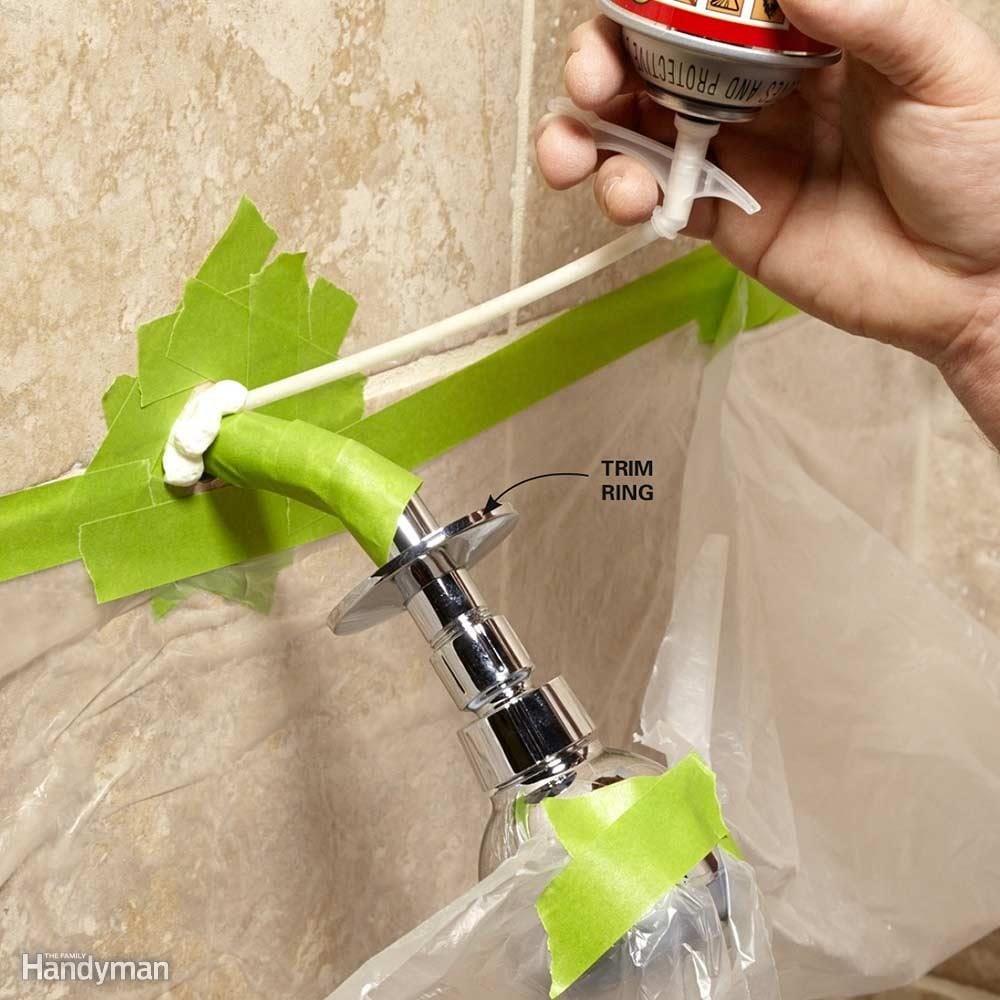
Family Handyman
Foam a Loose Showerhead
Here’s an easy home fix that can be used beyond the bathroom. Fix a wobbly showerhead, or any wobbly pipe, with a few squirts of expanding foam. The foam encases the pipe in the wall and locks it into place, eliminating the wobble, so your showerhead will work like new. Can you think of an easier home fix?
9 / 100

Family Handyman
How to Cover Up a Ceiling Stain
Hide tough ceiling water stains with a spray-on product called Upshot by KILZ. It’s blended to match an aged ceiling and even has a vertical spray tip, which makes installation a breeze. Lay a drop cloth on the floor and tape plastic on the walls before you spray.
10 / 100
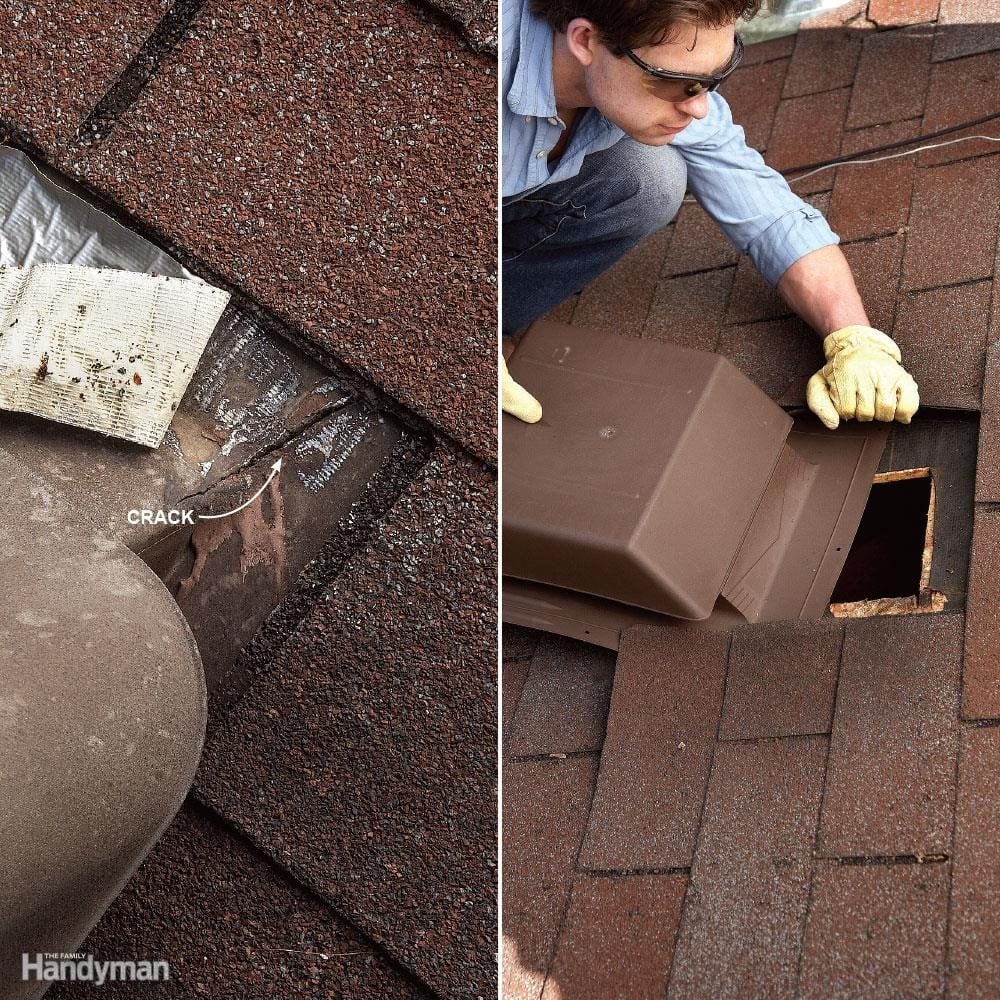
Family Handyman
How to Fix Roof Vents
Check for cracked housings on plastic roof vents and broken seams on metal ones. You might be tempted to throw caulk at the problem, but that solution won’t last long. There’s really no fix other than replacing the damaged vents. Also look for pulled or missing nails at the base’s bottom edge. Replace them with rubber-washered screws. In most cases, you can remove nails under the shingles on both sides of the vent to pull it free. There will be nails across the top of the vent too. Usually you can also work those loose without removing shingles. Screw the bottom in place with rubber-washered screws. Squeeze out a bead of caulk beneath the shingles on both sides of the vent to hold the shingles down and to add a water barrier. That’s much easier than renailing the shingles.
12 / 100
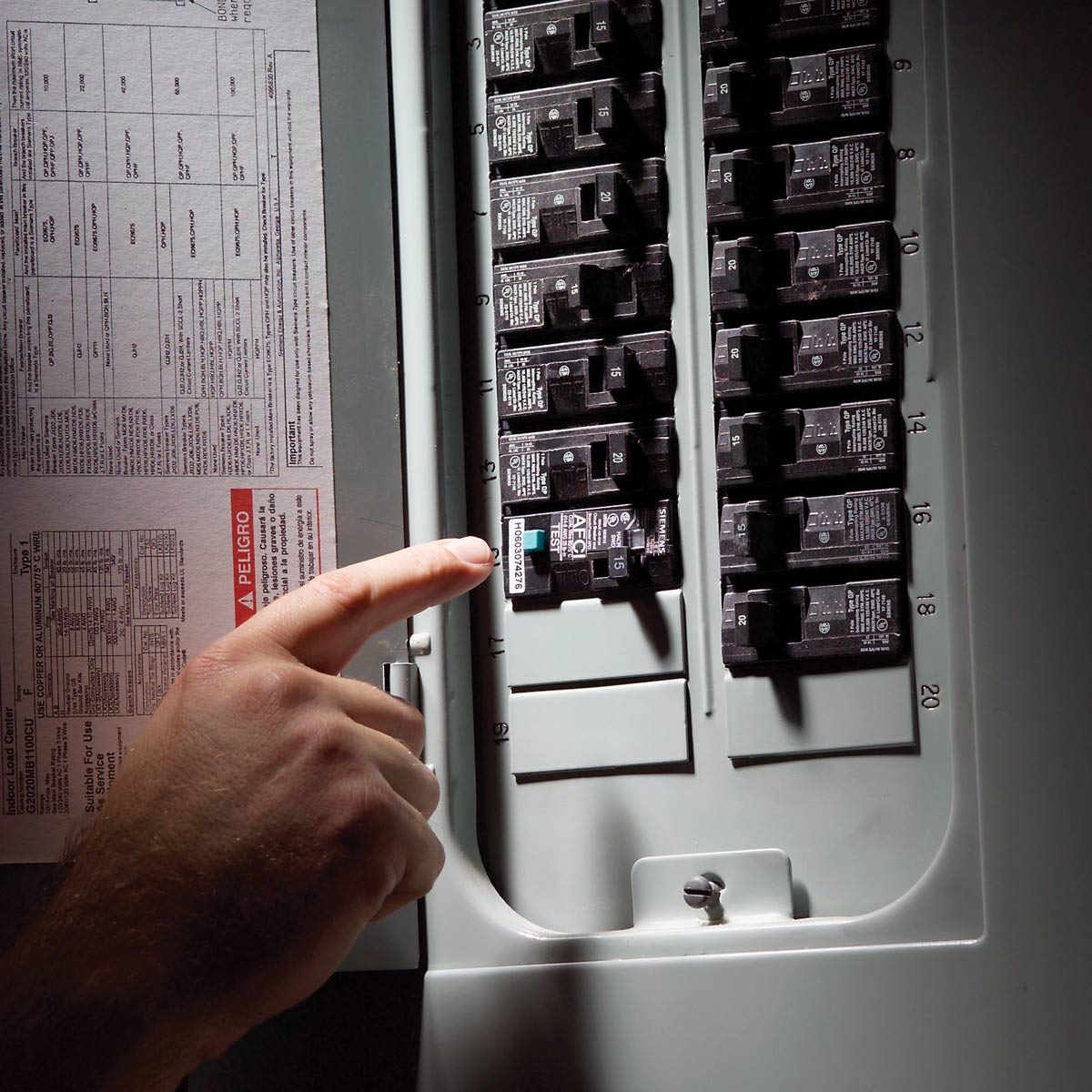
Circuit Breakers
It is not uncommon for power switches and breakers to be accidentally turned off when other appliances are being installed. Homeowners are encouraged to check their circuit breaker to make sure the issue isn’t as simple as needing to turn a switch back on. A circuit breaker is typically located in the garage, although in some homes, the circuit breaker can be found in the basement, hallway or storage room.
13 / 100
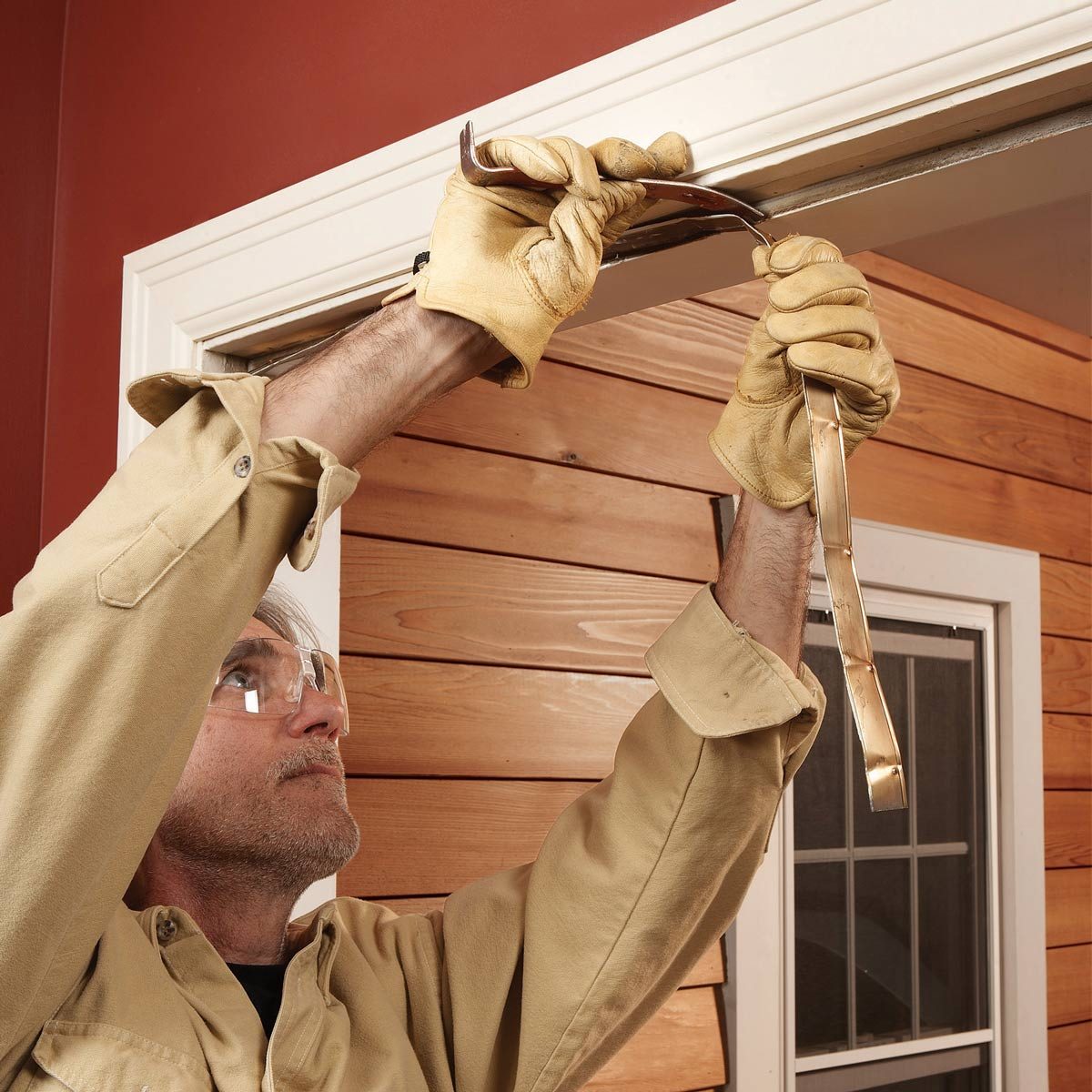
Family Handyman
Weatherstripping is Easy
If you can see light creeping beneath exterior doors, air is also escaping. Grab a few packages of self-adhesive rubber foam weatherstripping and go to town, sealing any and all doors that lead outside. Weatherstripping already installed but you’re still suffering from a high gas bill? It might be time to replace the strips installed by the previous owners. Check out this handy tutorial on installing weatherstripping.
16 / 100
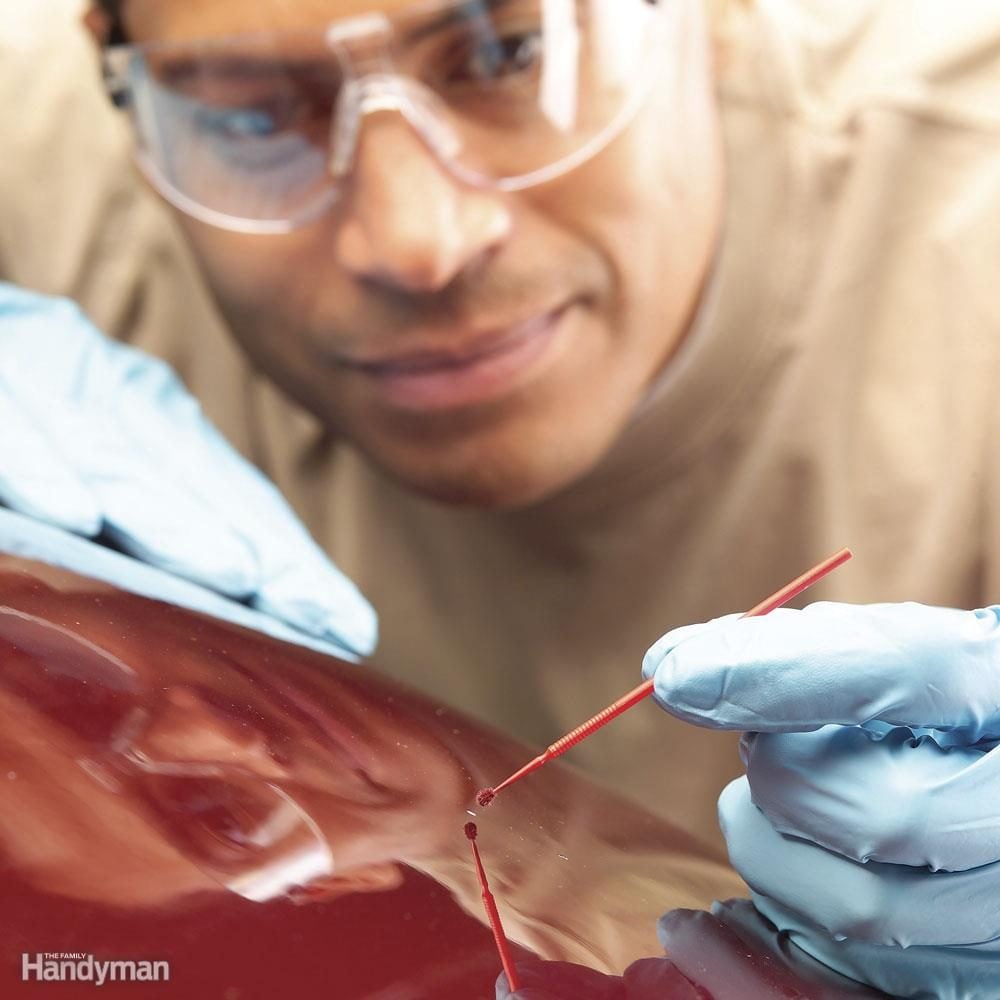
Family Handyman
How to Touch Up Chipped Auto Paint
If you don’t cover paint chips with touch up paint, they’ll rust and then you’ll have a much bigger problem on your hands. The actual touch up is easy. Just buy touch up paint, fine tip paint applicators and wax and grease remover from any auto parts store. Clean the chip with the wax and grease remover and let it dry. Then dip the applicator in the paint and dab it onto the chip. Don’t add too much or the paint will drip. Let it dry completely and apply wax after 30 days. Get the full guide to using auto touch-up paint here.
18 / 100
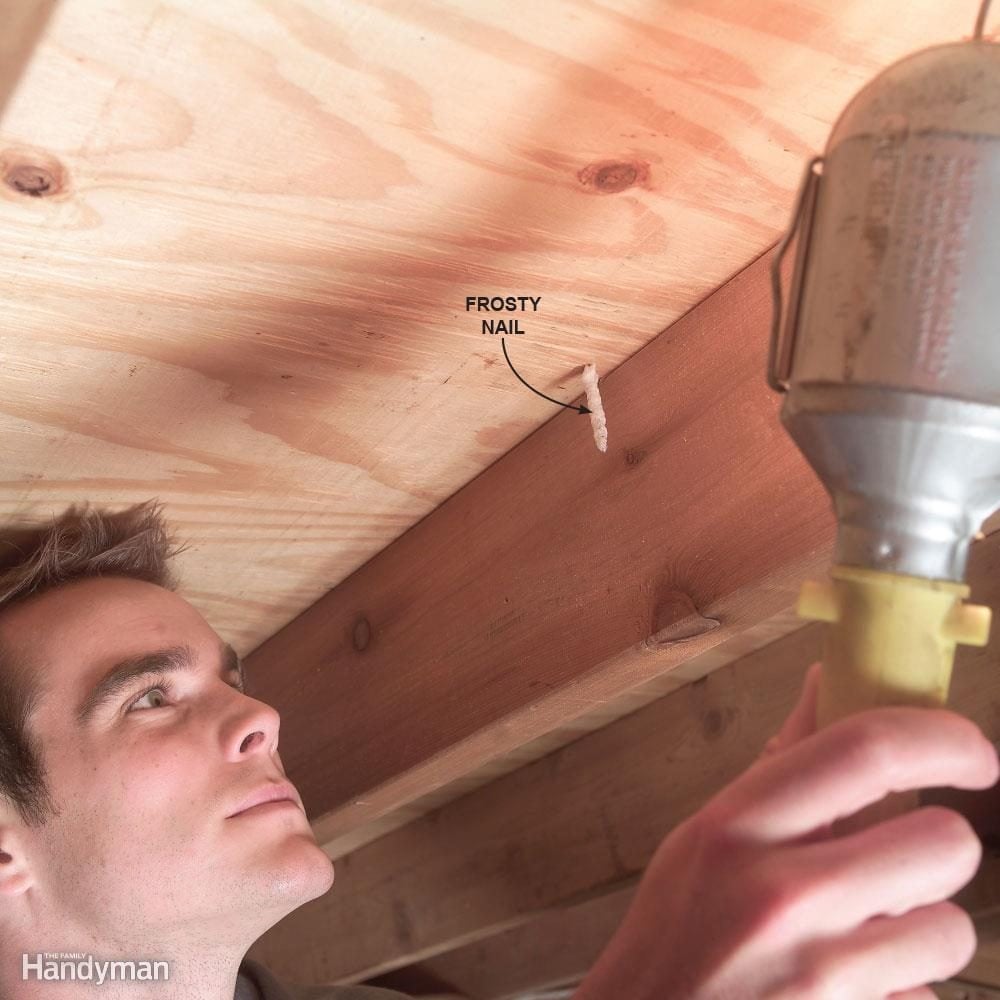
Family Handyman
Solution for a Small Leak
Some roof leaks are tough to locate. Sometimes the water shows up at a ceiling spot distant from the leak. If your ceiling has a plastic vapor barrier between the drywall and the attic insulation, push the insulation aside and look for flow stains on the plastic. Often water runs to openings in the vapor barrier, such as at ceiling light fixtures.
If you can’t see any telltale flow marks, and since the stain is fairly small, look at the underside of the roof for ‘shiners.’ A shiner is a nail that missed the framing member, in this case when the carpenter nailed the roof sheathing to the rafters. Moisture that escapes into the cold attic from the rooms below often condenses on cold nails. Sometimes you can spot this if you climb up into your attic on a cold night. The nails will look white because they’re frosted. When the attic heats up a bit during the day, the frost melts and drips, then the nails frost up at night again and so on. The solution is to simply clip the nail with a side-cutting pliers.
20 / 100
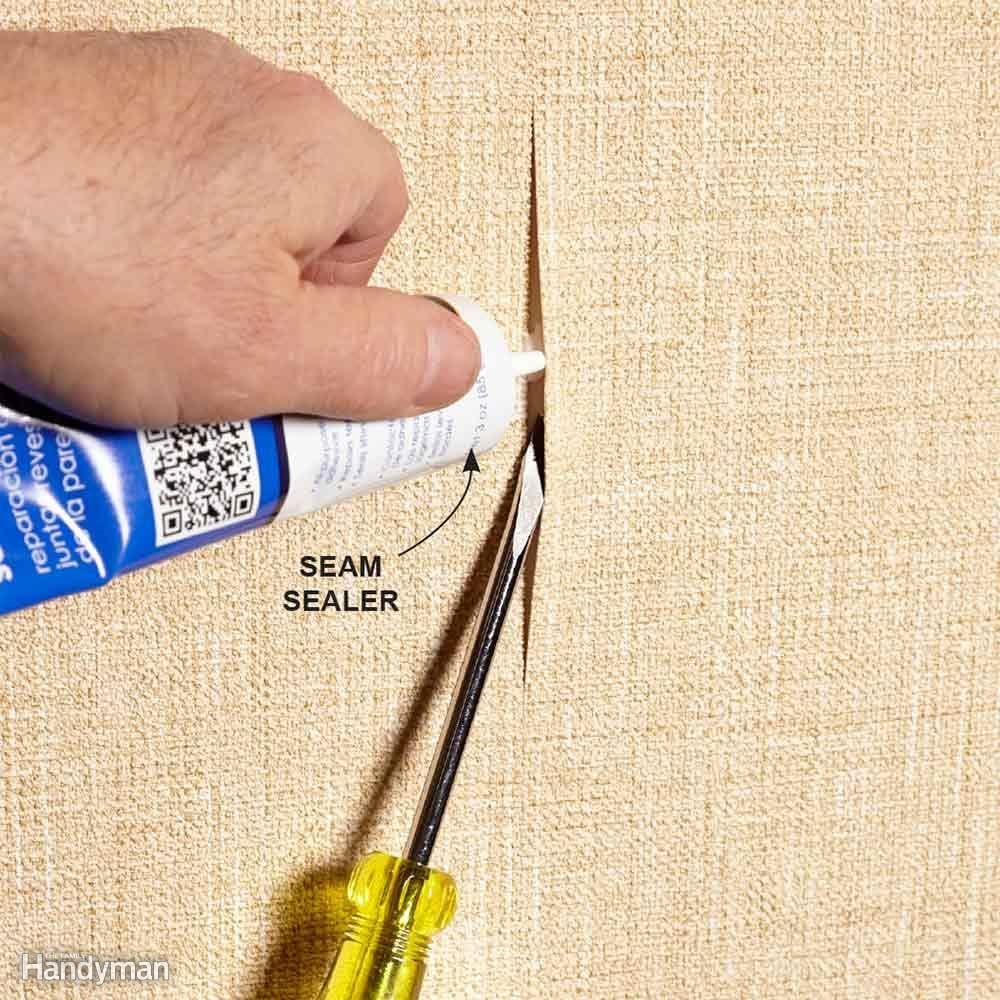
Family Handyman
Fix a Wallpaper Seam
If you have a wallpaper seam that’s coming apart, reactivate the paste around the gap with a rag soaked in warm water. Hold the rag over the area for a minute or two, and then carefully open the gap a little larger so you’ll have more room for the sealer. Squeeze seam sealer (white glue works in a pinch) into the gap, and press the paper to the wall with a roller. Clean off the excess sealer with a sponge.
21 / 100
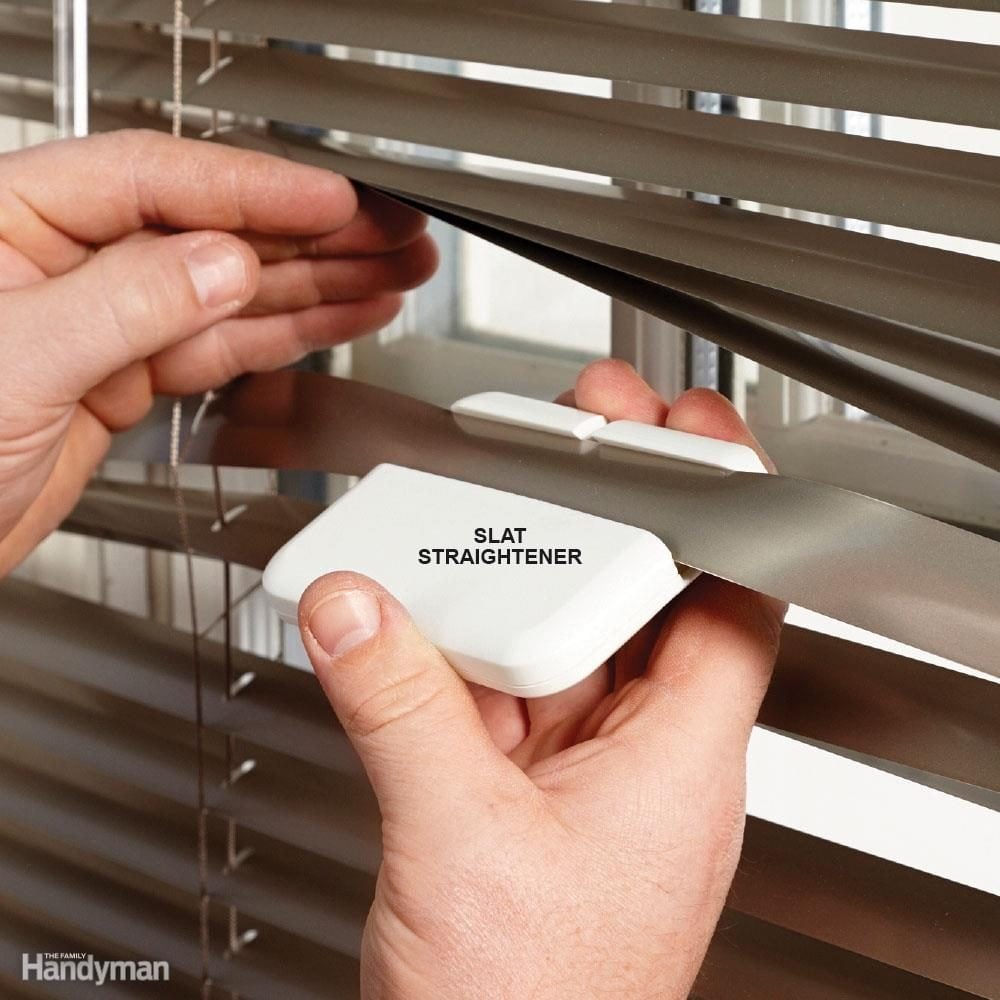
Family Handyman
Straighten a Bent Blind
Unmangle mangled mini-blinds with a mini-blind slat straightener. Just slide it over the damaged slat and squeeze. The product, called the MiniBlindRx, works on 1-in. metal slats and is available for about $10.
22 / 100
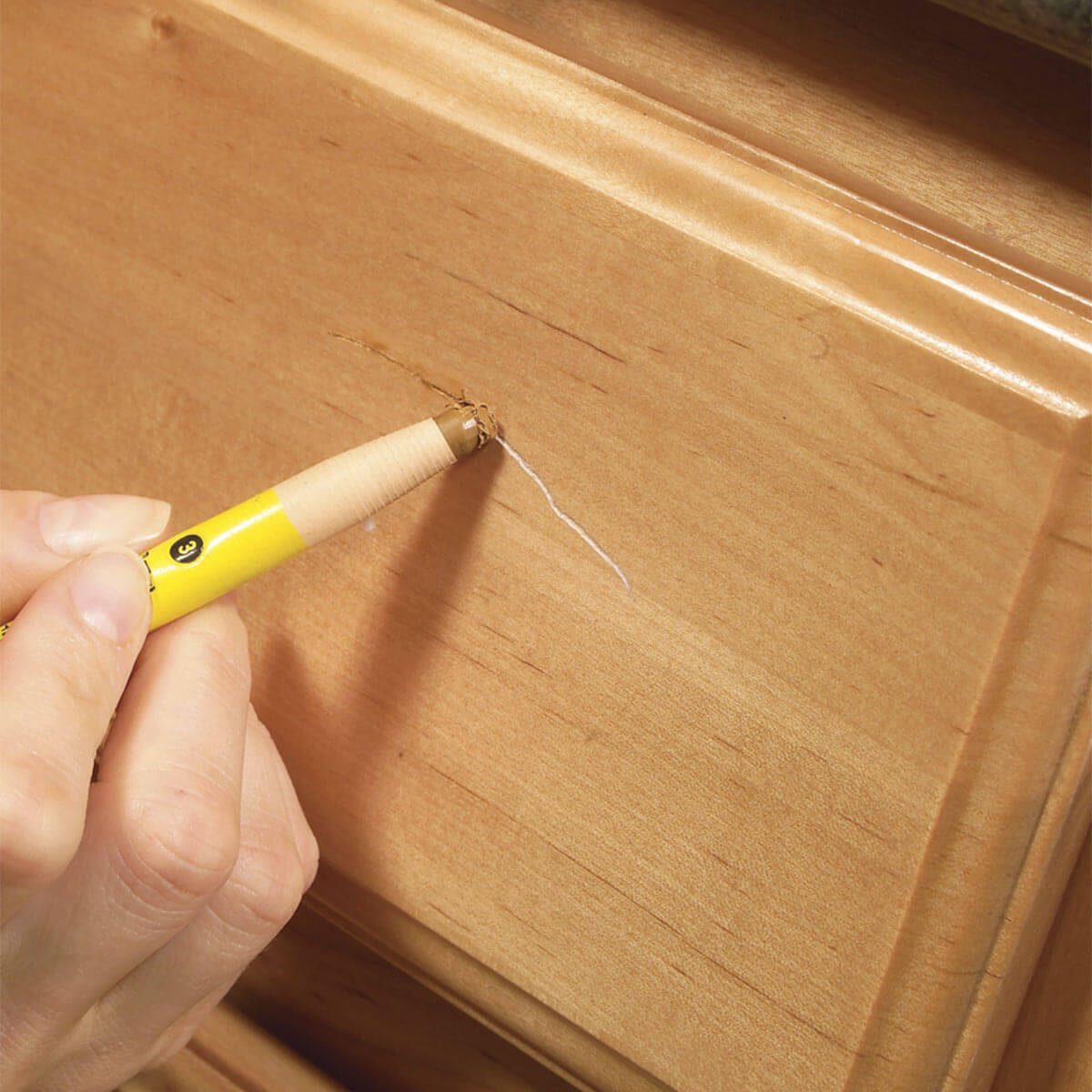
Fix Scratched Cabinetry
If you have shallow scratches or nicks, hide them with a stain-filled touch-up marker. Dab on the stain and wipe off the excess with a rag. But beware: Scratches can absorb lots of stain and turn darker than the surrounding finish. So start with a marker that’s lighter than your cabinet finish and then switch to a darker shade if needed. For deeper scratches, use a filler pencil, which fills and colors the scratch. Or, try using a walnut to remove scratches in wood!
23 / 100
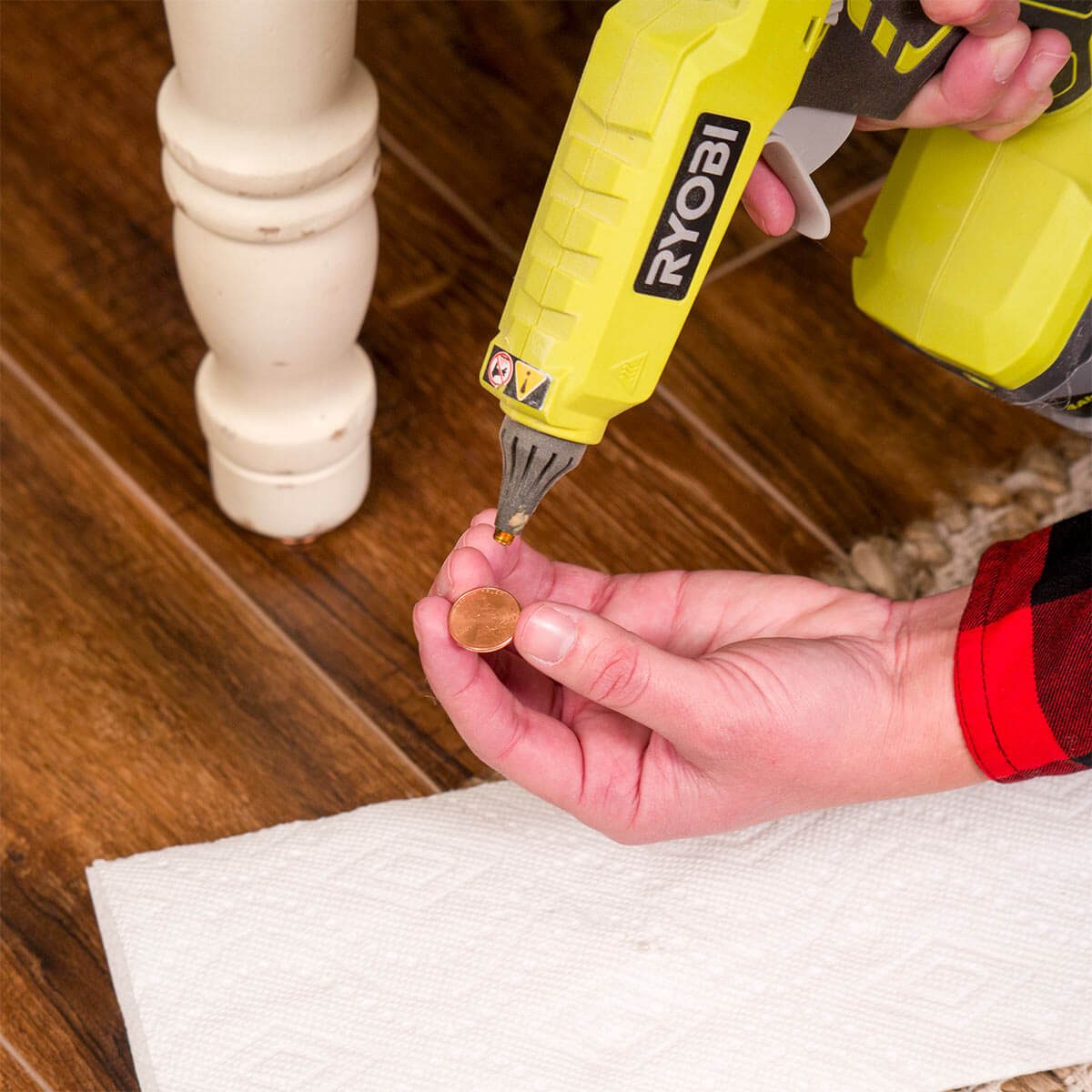
Hot Glue Gun Uses: Fix Wobbly Furniture with a Penny
You can fix a wobbly bench or table with your pocket change. Add a drop of hot glue to a coin and attach it to the problem area. The coin will act like a shim, leveling out the furniture piece.
24 / 100
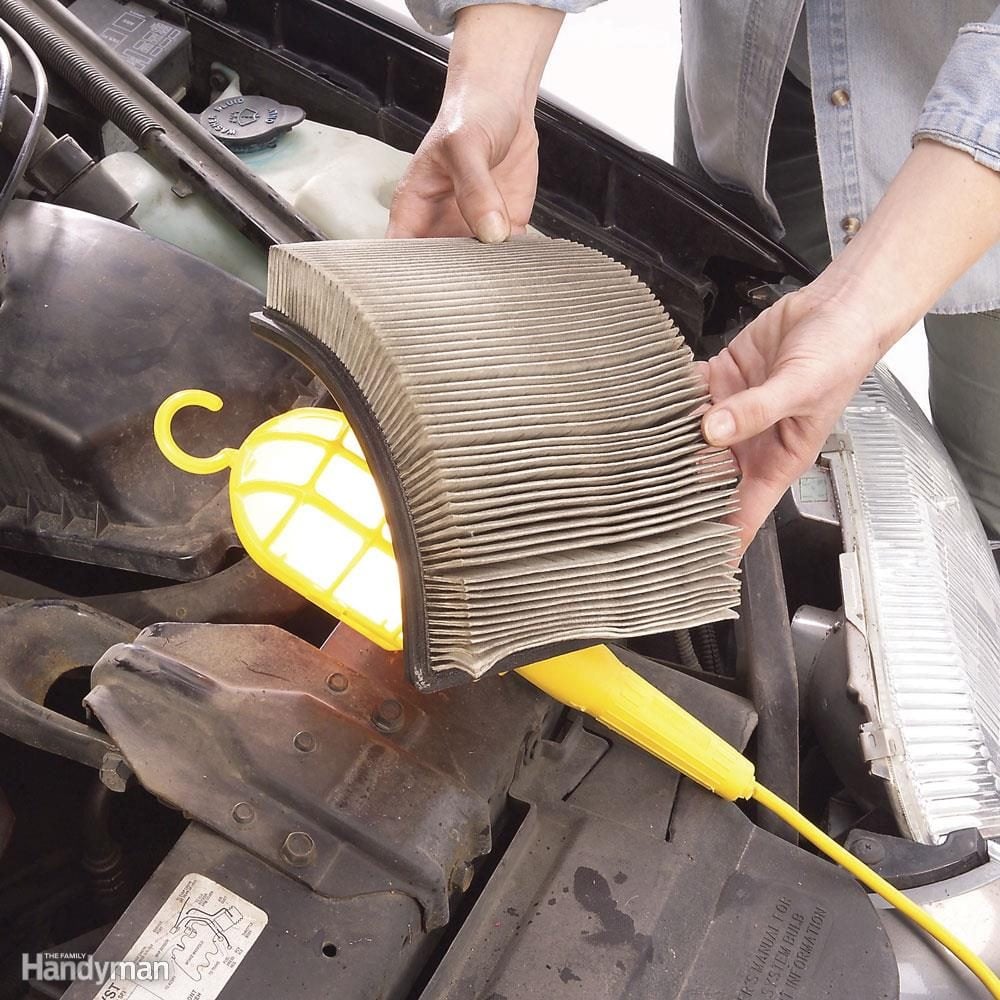
Family Handyman
Replace Engine Air Filter
Inspect and replace your engine air filter. Just unscrew or unclip the air filter box retainers and remove the old filter. Then hold a shop light behind the filter to see how much light passes through. If the filter blocks 50 percent of more of the light, replace the filter. If not, put it back in, secure the air filter box cover and keep driving. Get the full step-by-step on changing your air filter here. It’s one of the easier things you can do to fix up cars.
25 / 100
Fix a Smelly Washing Machine
Stop bad odors in your clothes washer by running a cycle with a special mold-killing tablet and by leaving the door open to promote drying. Learn how to fix a smelly washing machine.
26 / 100
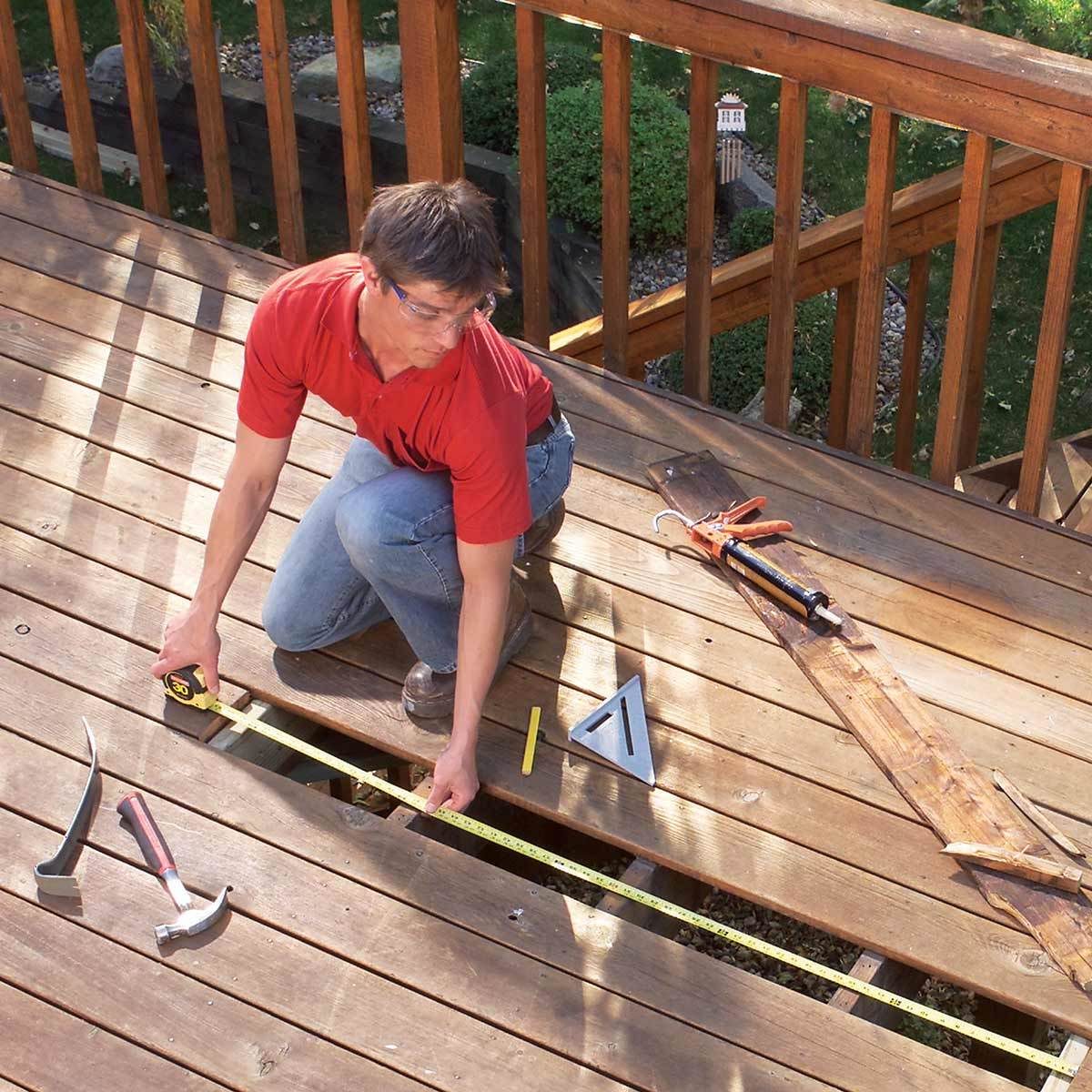
Family Handyman
Decks
Many things can go wrong with a deck. Missing screws, warped boards, squeaky nails, wobbly railings, fortunately, many of these problems are well within the scope of the average DIYer. Inspect your deck for seven common deck problems and then repair whatever needs fixing. Plus: How to remove flaking deck stain.
27 / 100
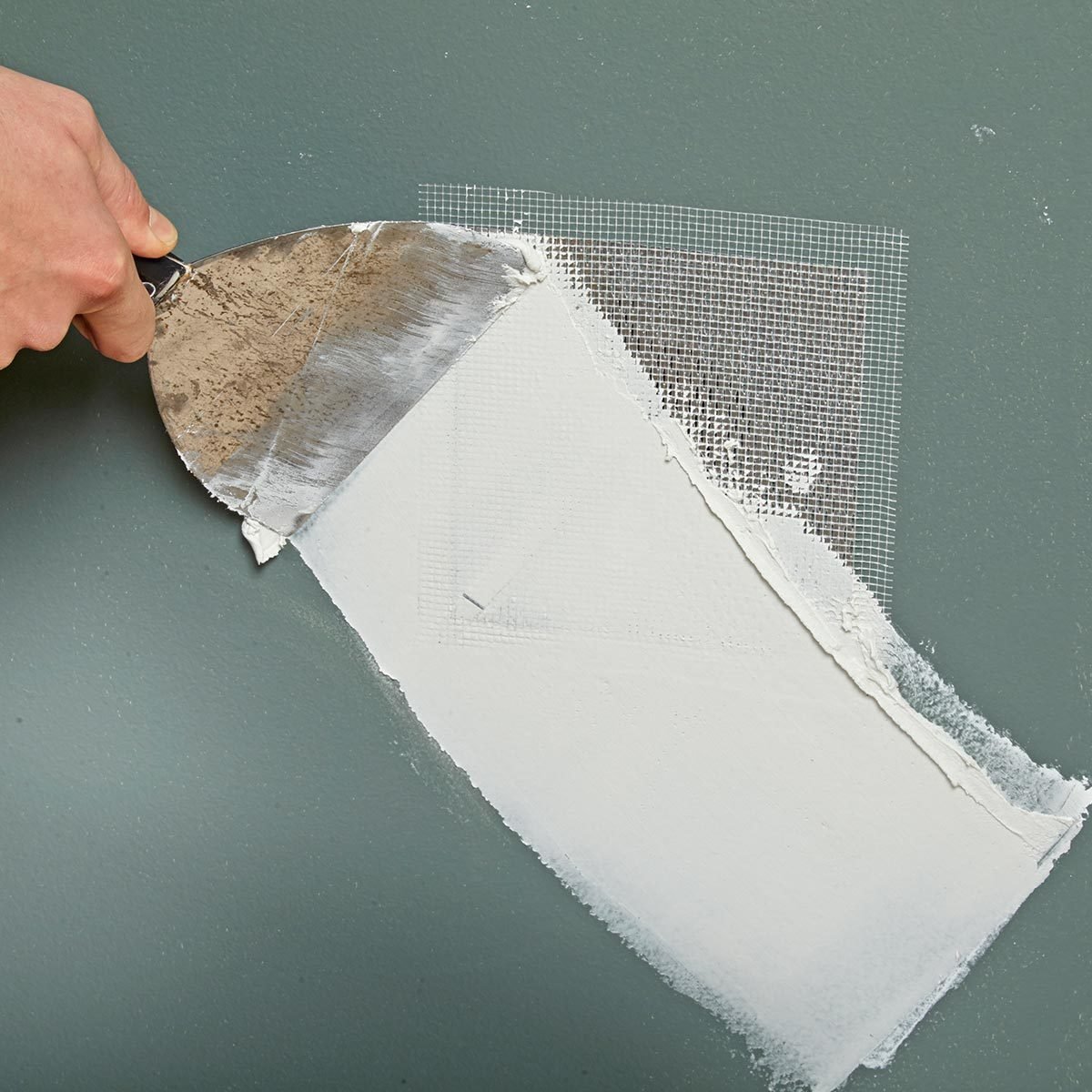
Family Handyman
Walls
Drywall is everywhere and it is surprisingly easy to damage. The good news is that the average drywall ding or hole can be easily patched. Cracks in drywall are also easy to fix. Got popped drywall nails or screws? You can fix those, too!
28 / 100
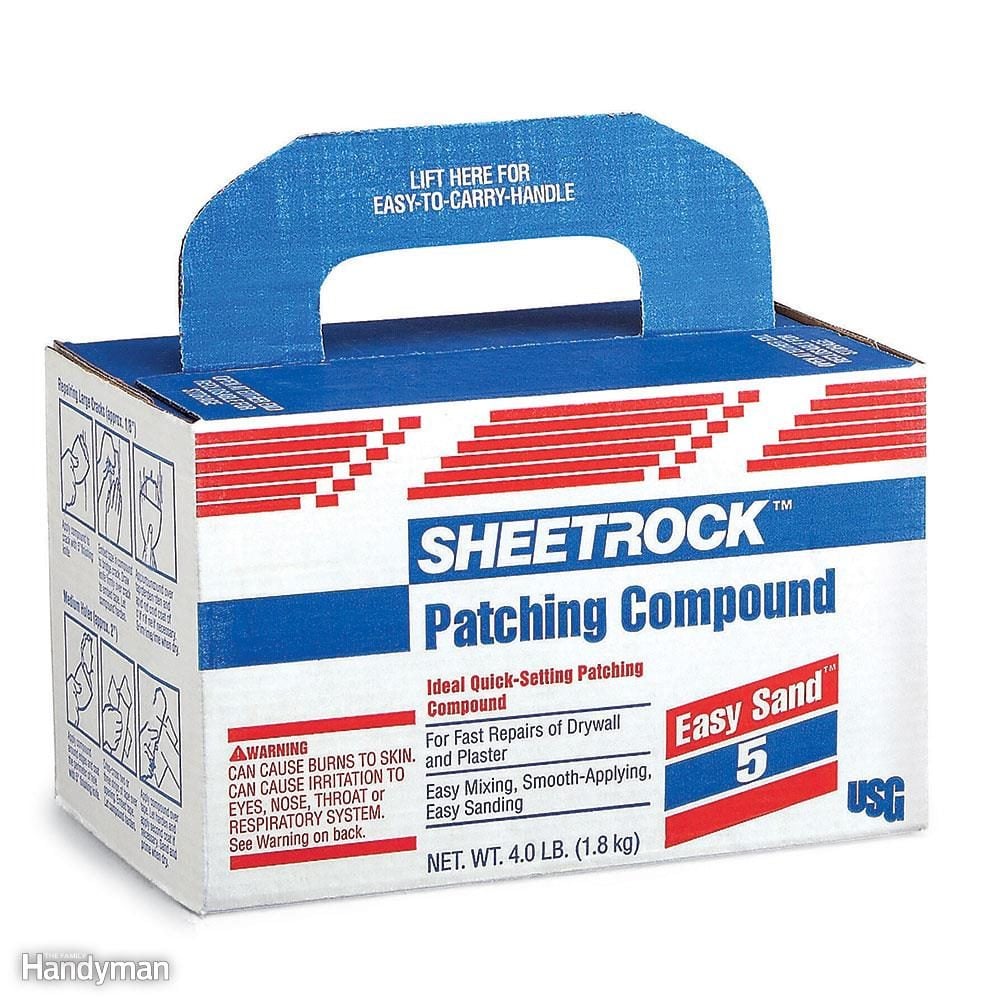
Family Handyman
Fast-Setting Drywall Compound
Quick-setting drywall compound lets you finish small repairs and fill deep holes in minutes instead of waiting days for premixed joint compound to dry. The small boxes are available in most home centers and paint stores are also easier to store and more likely to get used up than large bags or buckets. Click here to learn how to hang drywall like a pro. Click here to buy drywall compound on Amazon now.
29 / 100

Family Handyman
Feed the Lawn
If your yard is mostly grass with just a few weeds, forgo the expensive landscaper. With one trip to your local hardware store or plant nursery, you can purchase $25-$50 worth of supplies, spend just a few hours on your lawn, and simply wait for the grass to grow. Check out this easy guide on fertilizers and seed spreaders.
30 / 100

VLADY SLAV DANILIN/Shutterstock
Check the Batteries
There are a number of contributing factors such as blocked vents that can constrict air flow or lead to irreversible damages. But the problem might be as simple as changing your batteries. If the thermostat is not lit, it is time to change the batteries!
31 / 100
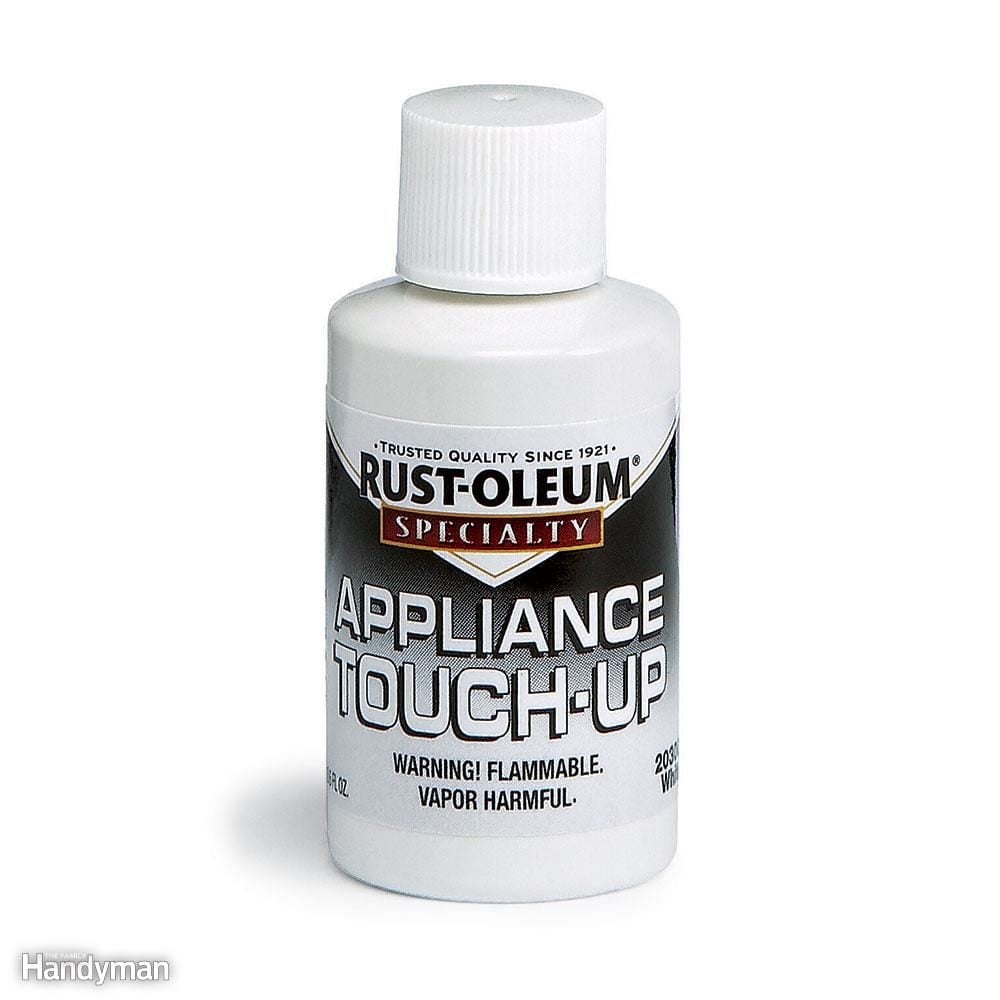
Family Handyman
Appliance Touch-Up Paint
A single scratch or chip can make a beautiful new appliance look like something you found out in the alley. Fortunately, you can make those eyesores, even up to 1/4-in. diameter, almost completely vanish with color-matched epoxy touch-up paint. Buy some appliance touch-up paint on Amazon today.
37 / 100
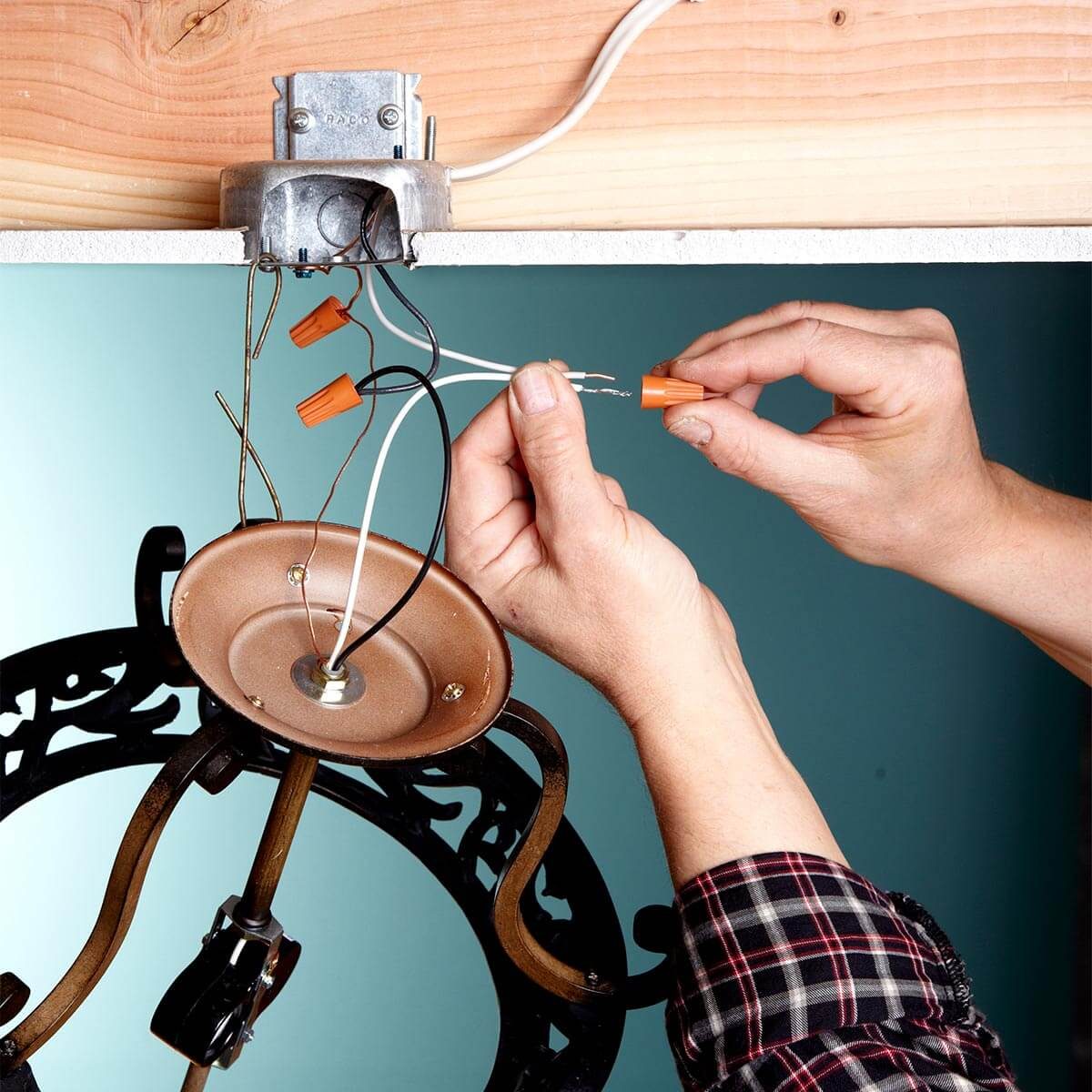
Fix a Broken Light Fixture
Replacing a light fixture is one of those DIY jobs that’s theoretically quick and simple, but often becomes a three-hour series of problems. We talked with two of our master electricians. They’ve seen all of those frustrations and offered these tips to help DIYers through the job quicker and safer.
38 / 100
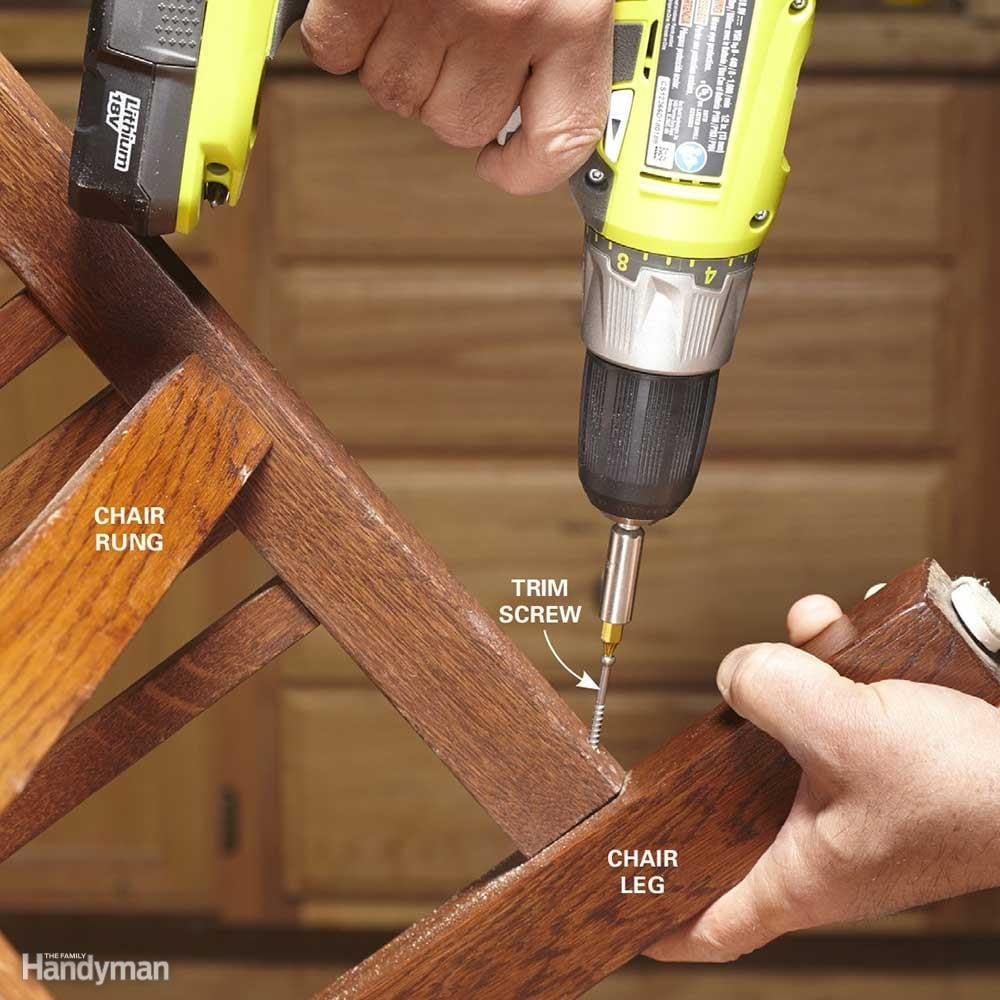
Family Handyman
Cheater’s Chair Fix
This easy home fix is one you’ll definitely want to keep handy! Trying to keep a rickety old chair together without going through the trouble of taking it apart and regluing it? The simple home fix is to just drill pilot holes and drive trim-head screws through the bottom of the rungs and into the legs. Here’s another way to fix a wobbly chair.
39 / 100
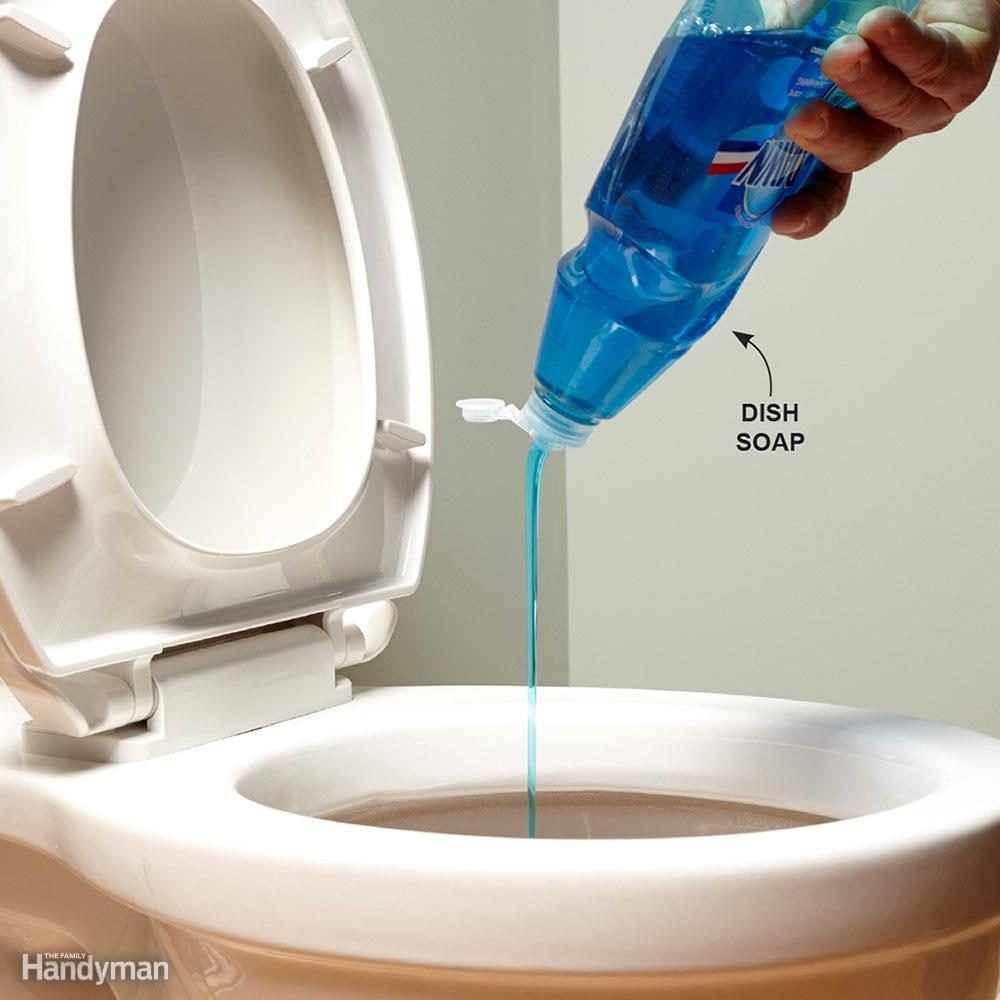
Family Handyman
Unclog a Toilet With Dish Soap
If the toilet plunger doesn’t seem to be doing the trick, try this solution before you reach for the snake. Squirt about 1/2 cup of liquid soap in and let it sit for a while. The liquid soap reduces friction and will often allow the contents of the bowl to slide on through.
40 / 100
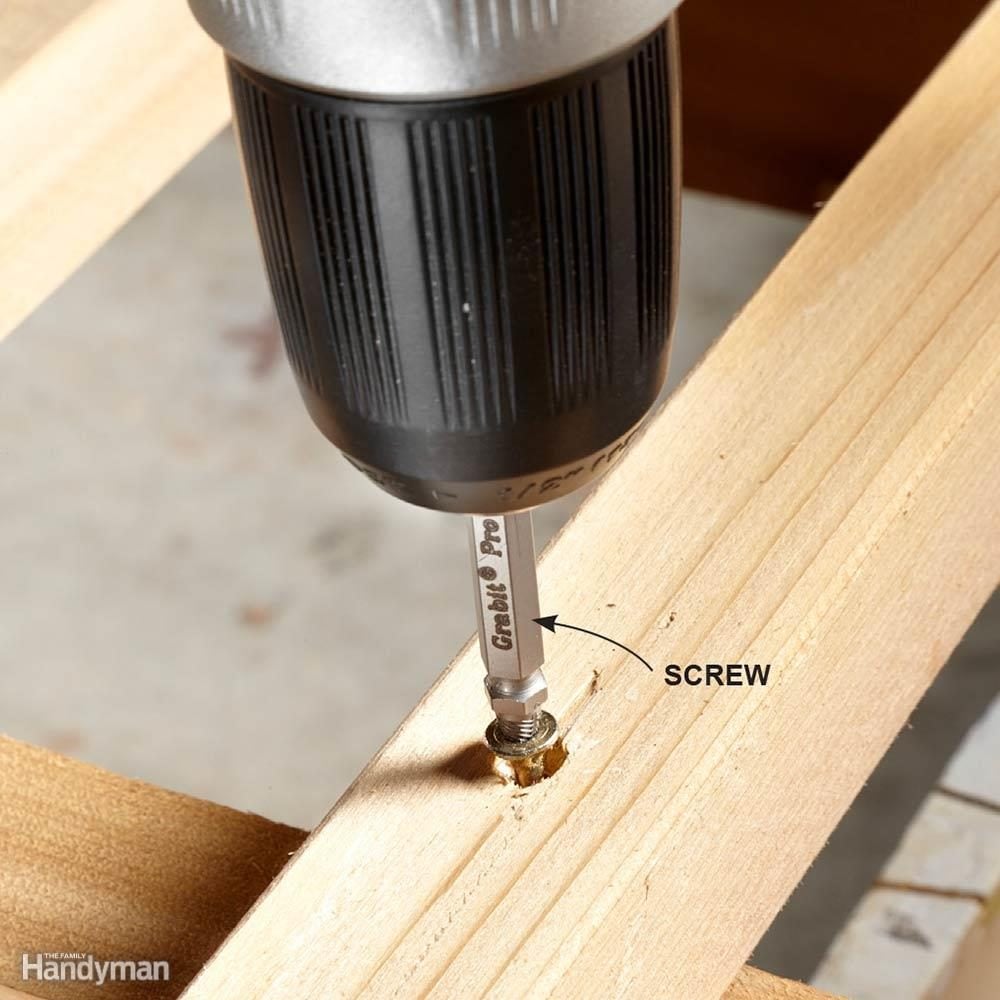
Family Handyman
Stripped Screws? No Problem
A stripped screw can turn a 10-minute fix into a two-hour nightmare. One of the best investments a DIYer can make is a screw extraction kit. It comes with three different size bits and costs about $20. One side of the extractor bit reams a hole into the screw, and the other side has reverse threads that dig into the screw as you turn it out. Buy one of these incredible kits from Amazon.
41 / 100
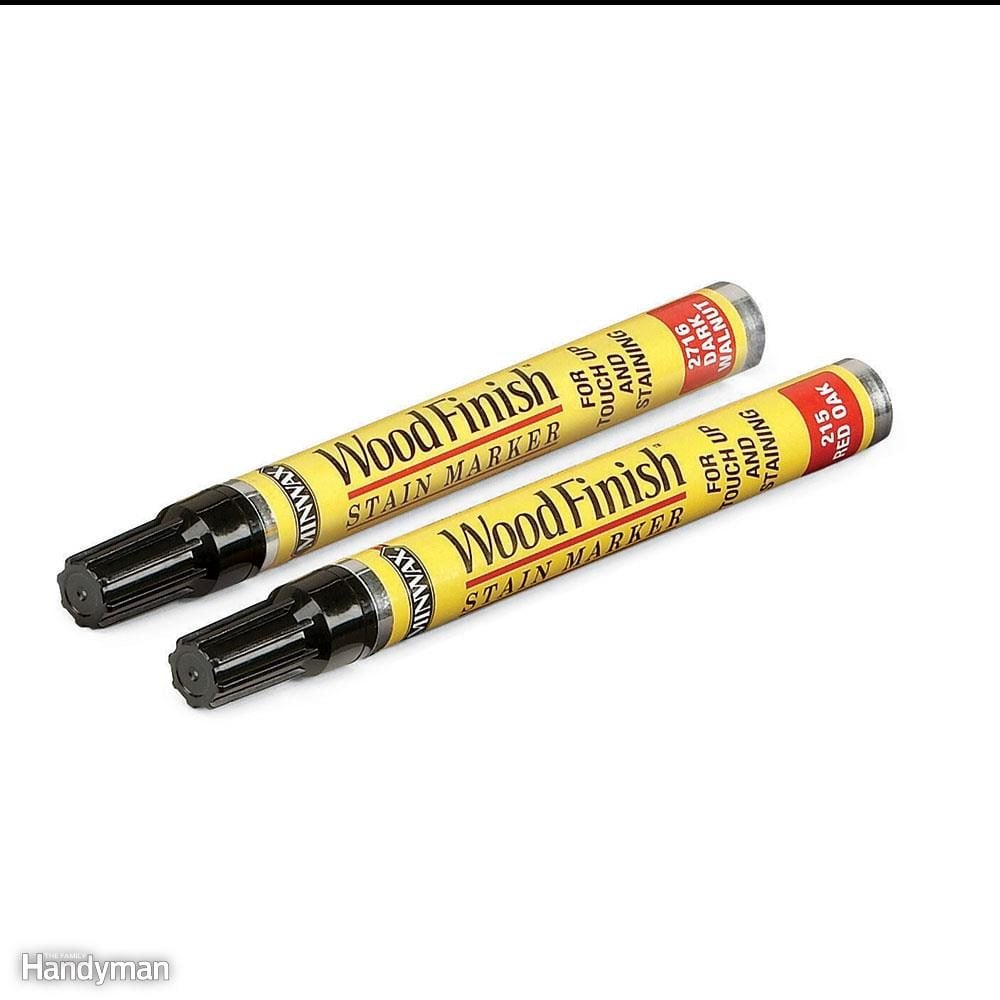
Family Handyman
Stain Markers
Natural or stained woodwork is beautiful, but scratches can really stand out, especially with darker stains. You can make these scratches disappear by touching them up with a stain marker. It’s simple to use, and much cheaper than buying whole cans of stain. Buy a walnut stain marker on Amazon now.
42 / 100
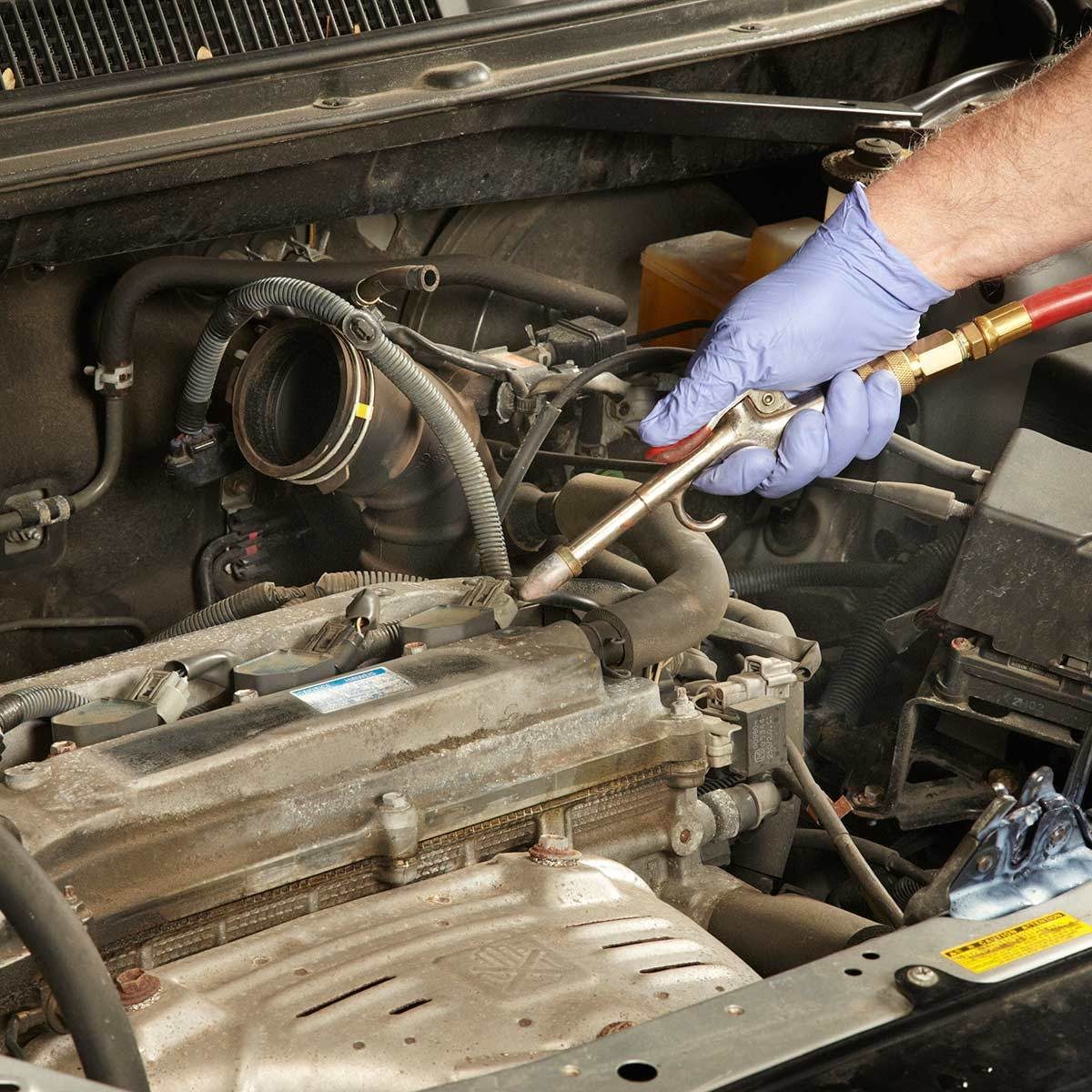
Family Handyman
44 / 100
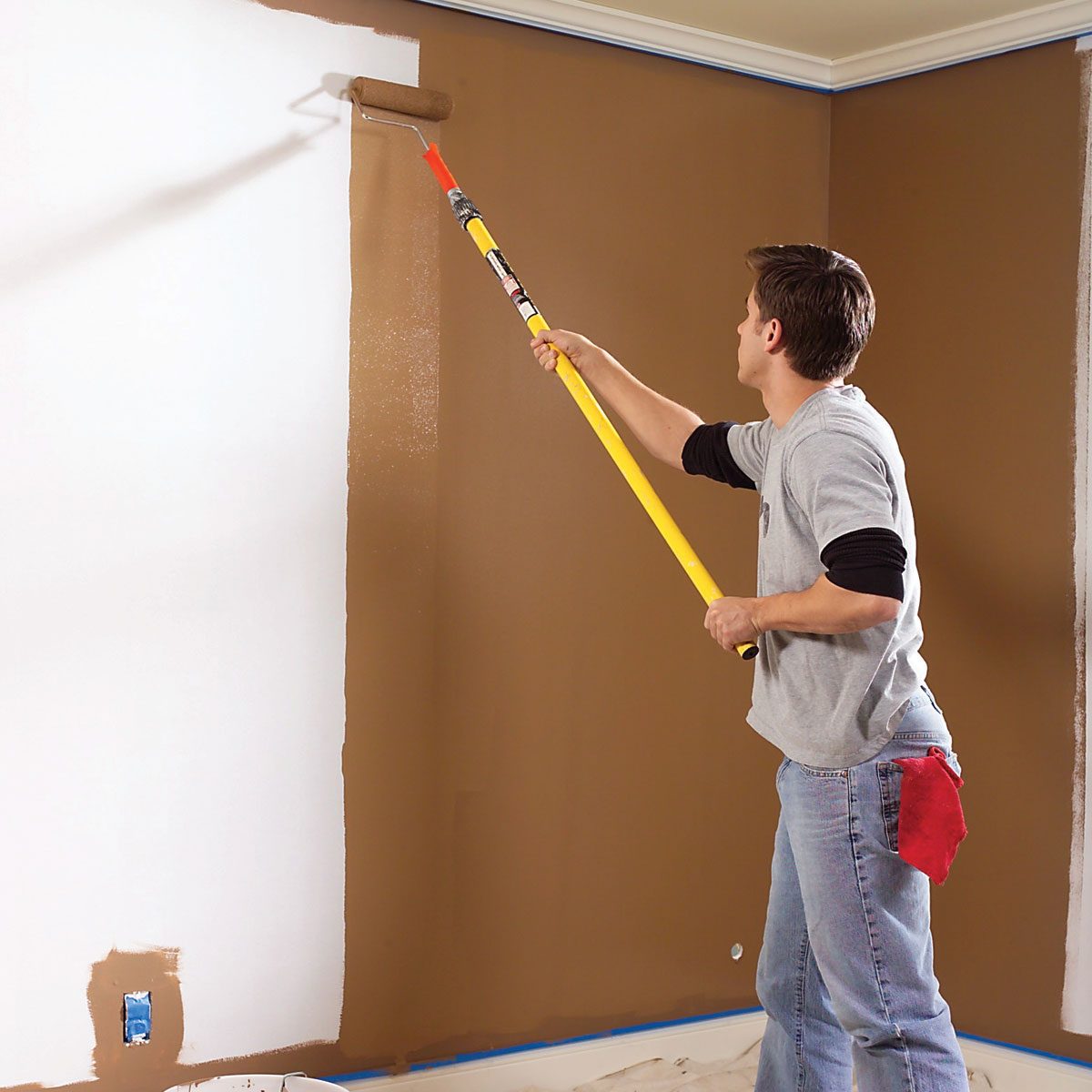
Family Handyman
A Quick Coat of Paint
Almost nothing is quicker, easier or refreshes a room more than a new coat of paint. Even switching up a bright white for a trendy, bright grey can change your whole perspective and give you a starting point for new colors and decoration. Gallons of paint range from $30-$50, and with primer/paint combinations, you will likely only need a gallon or less to finish an average sized room. Add another $10, and you’ll be set with rollers, paint brushes, and painter’s tape. This DIY repair could potentially save you thousands over the cost of a professional painter. Short on time? Click here to learn how to paint a room fast.
45 / 100
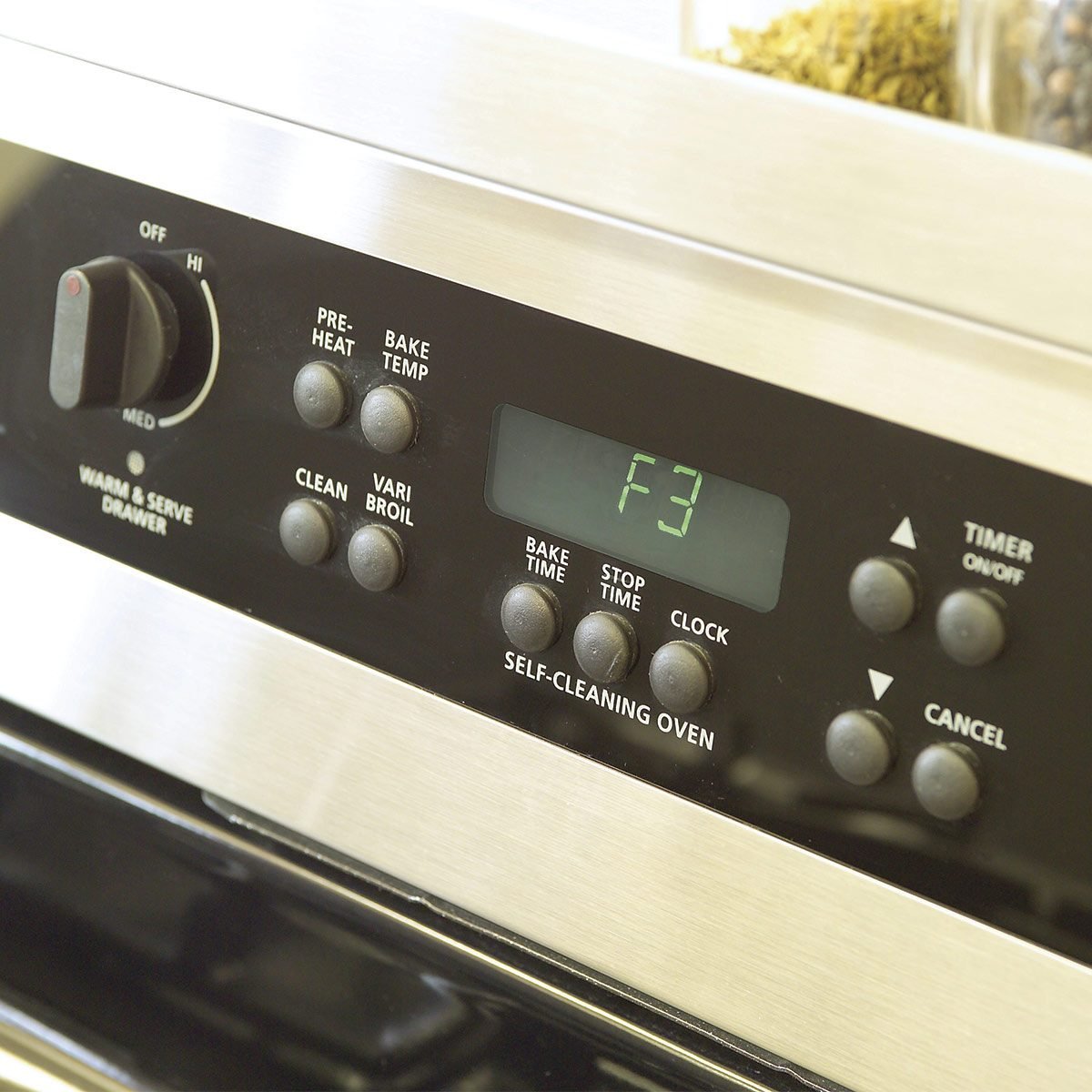
Diagnosing Appliance Fault Codes
When the display panel on your appliance flashes strange numbers, grab your owner’s manual. It may be flashing a fault code that’ll help diagnose a problem. Learn how to diagnose appliance fault codes.
46 / 100
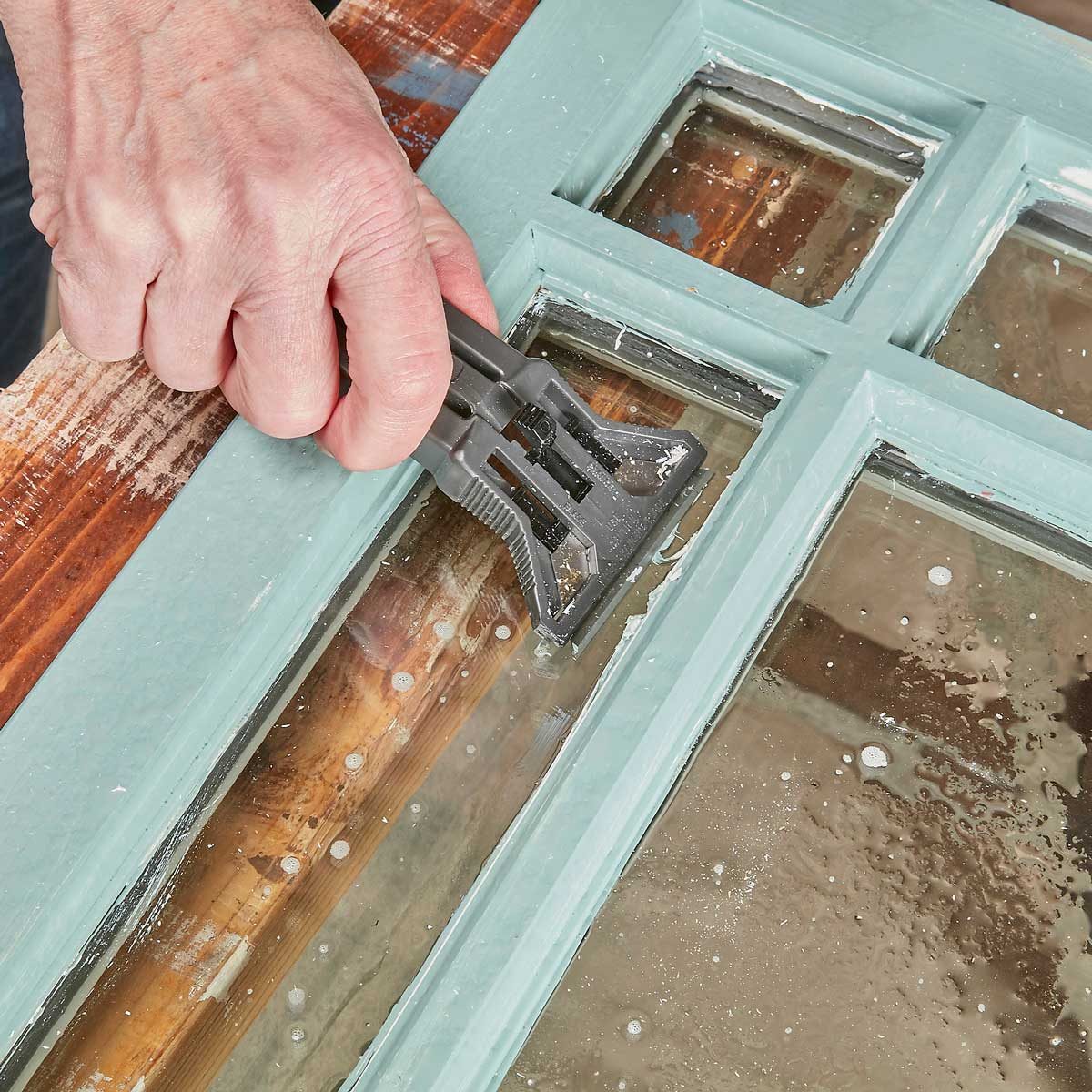
Family Handyman
Repair and Reglaze Windows
Instead of forking over $5,000-10,000 to replace all of your old windows with brand new ones, consider repairing old windows yourself. With a few hundred dollars in supplies (sand paper, paint, window glaze, etc.), you’ll be prepared to reglaze every window in your house. Though it can be a tad time consuming, you can prioritize the project by room, removing windows one by one to paint, reglaze, and, if necessary, replace any cracked glass. Get started glazing your windows here.
47 / 100
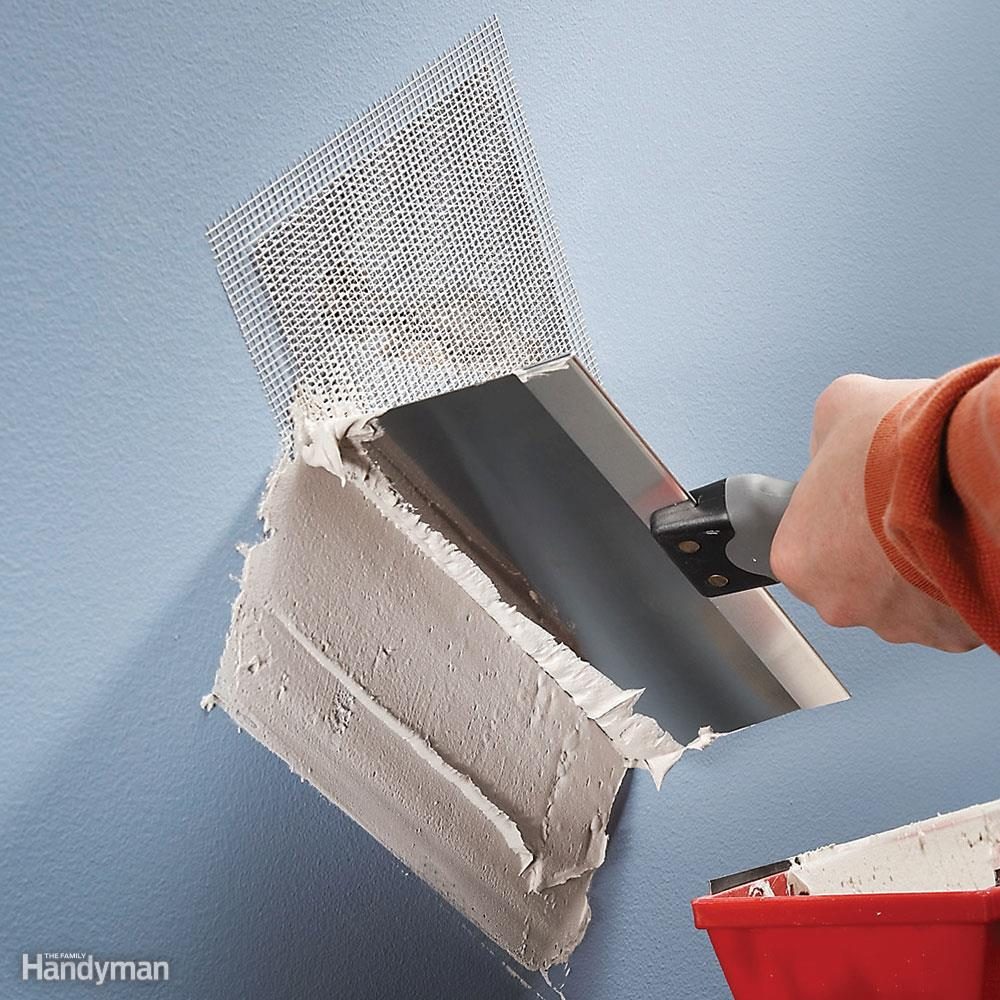
Family Handyman
Self-Sticking Wall Patch
Available up to 8 in. square, these stiff metal patches eliminate the time-consuming process of squaring a hole, putting in wood backer boards, and buying, cutting and taping the drywall. They’re a great fast fix for holes and big cracks in walls before painting. Buy wall patches on Amazon now.
49 / 100
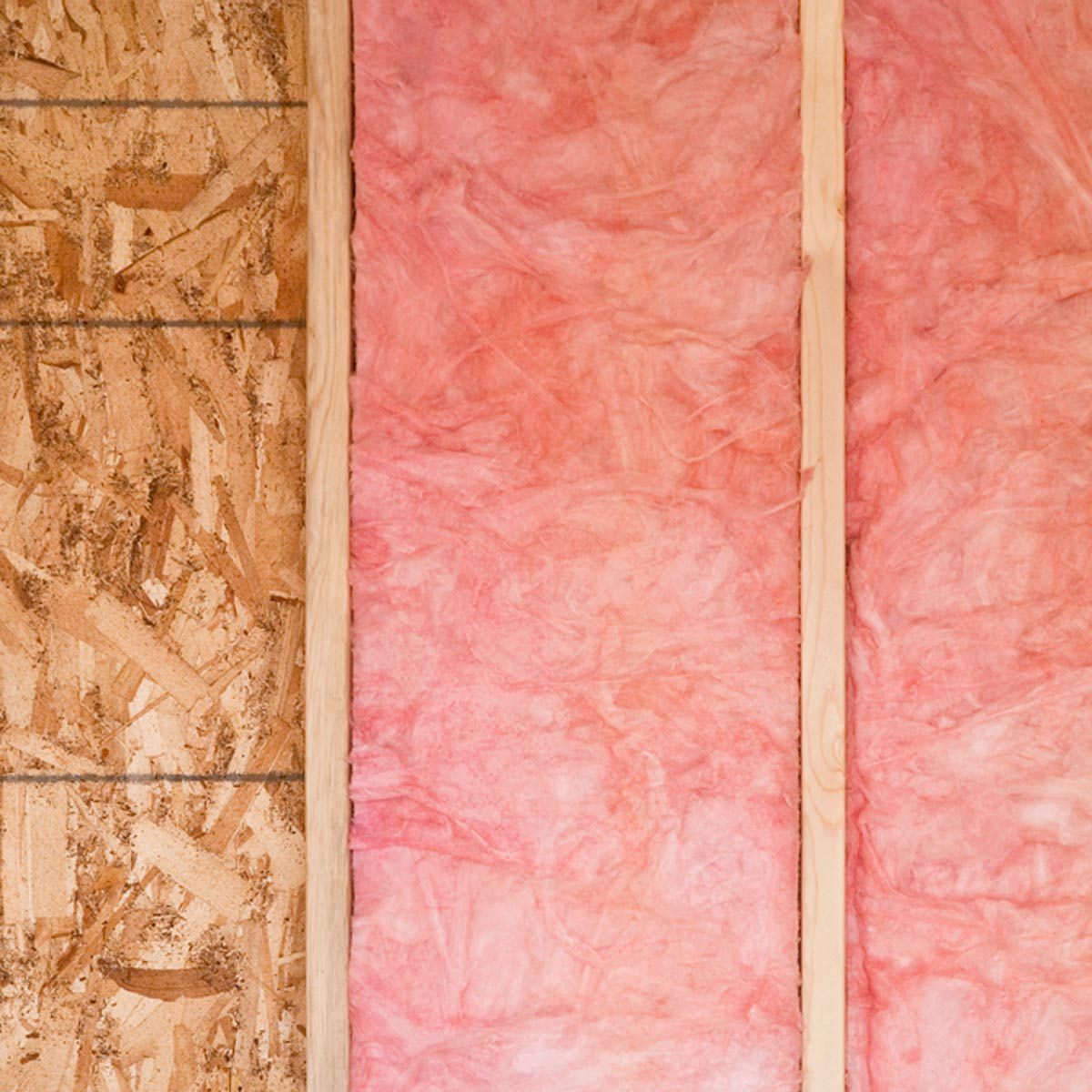
David Papazian/Shutterstock
Insulation is Key
Though it can seem intimidating, installing your own batting installation can be easy, and take just a few hours if you isolate the need to a few key spaces. Have a drafty attic? Start there. Concerned about a freezing crawl space? Throw on your work jeans and get to work. These insulating spaces will instantly feel warmer and you’ll notice the savings on your next heating bill. Read how to install insulation here.
50 / 100
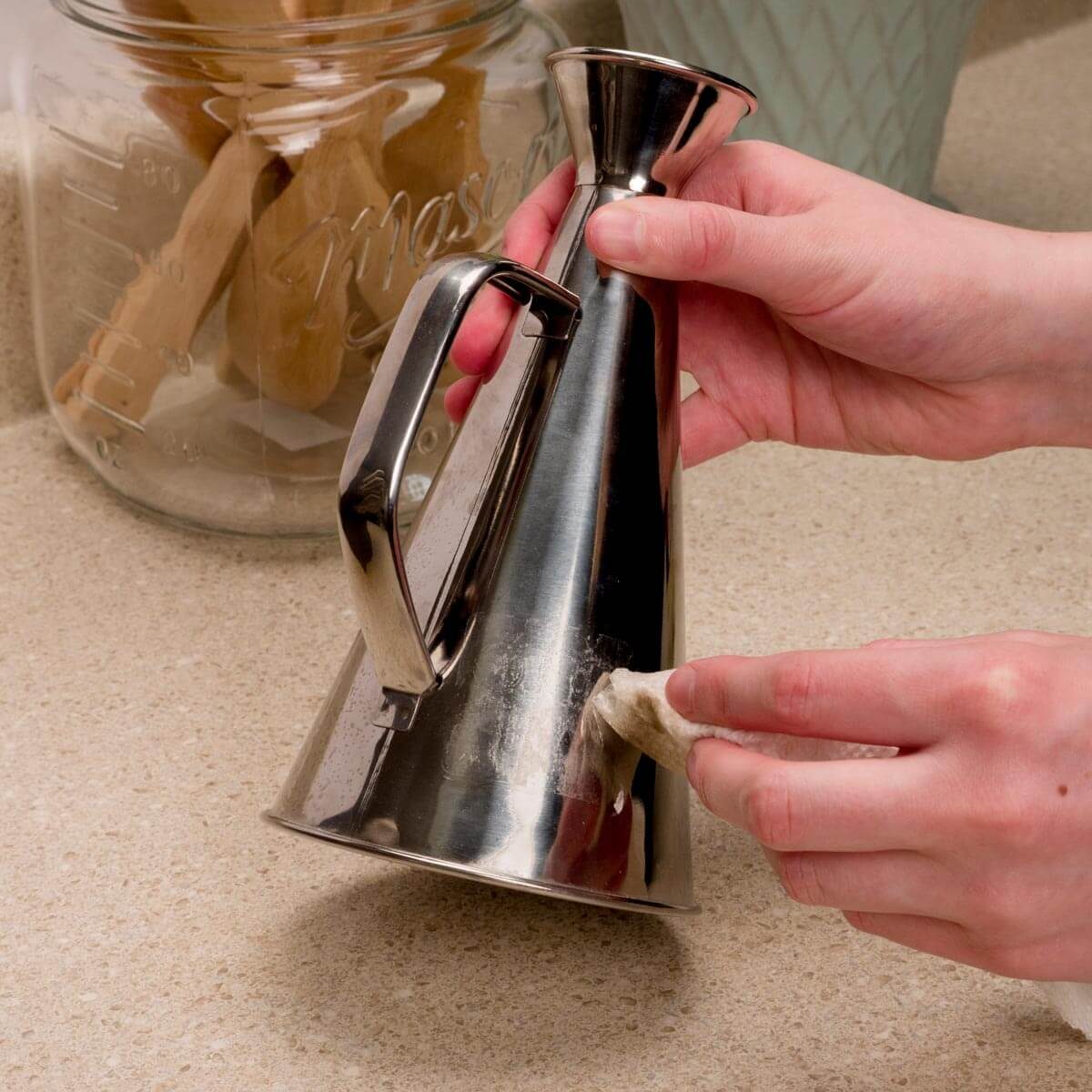
How to Remove Sticker Residue
Reach for cooking oil next time you want to remove annoying sticker residue. Dab any type of kitchen cooking oil (olive, canola or sunflower) onto a paper towel. Then lay the paper towel over the residue that refuses to budge. Wait a few minutes while the oil works to dissolve the stubborn glue. Finally, remove the towel and rub away the sticker residue with another clean paper towel. However, you need to be cautious with stains on more absorbent materials.
52 / 100
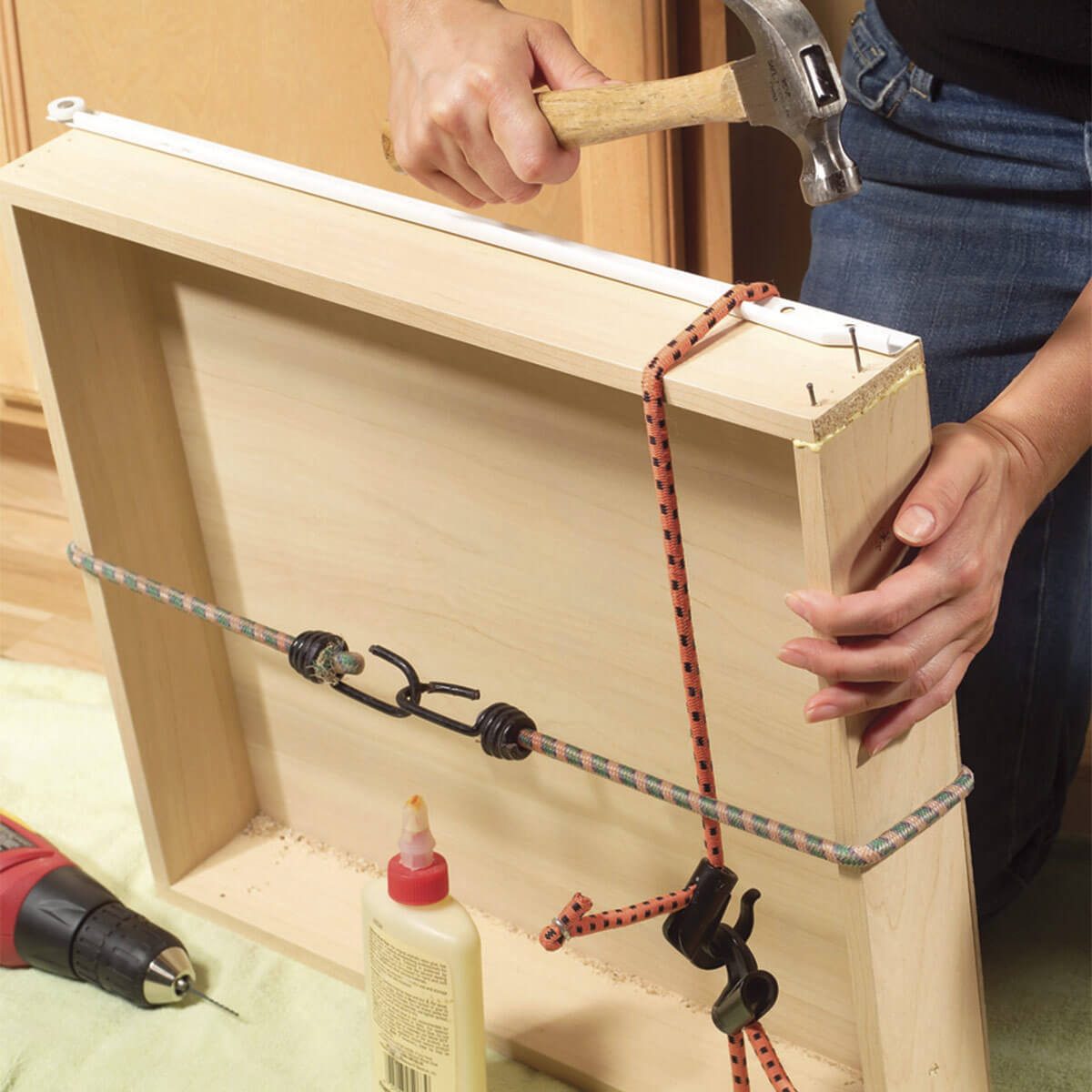
Fix a Broken Drawer
Don’t put up with a broken corner joint on a drawer. Fix it before the whole drawer comes apart. Remove the drawer and then remove the drawer front from the drawer box if possible. Most fronts are fastened by a couple of screws inside the box. Remove nails, staples or screws from the loose joint and scrape away old glue with a utility knife.
53 / 100

Family Handyman
Fix a Shutoff Valve
There’s nothing worse than starting a sink or toilet repair only to find that the shutoff valve won’t shut off. Some shutoff valves are easy to replace. For those that aren’t, turn off the main water valve, remove the packing nut, and then unscrew the stem and take it to the hardware store to find a replacement washer. Clean any grit out of the valve body and pop on the new washer. The valve will work like new.
54 / 100
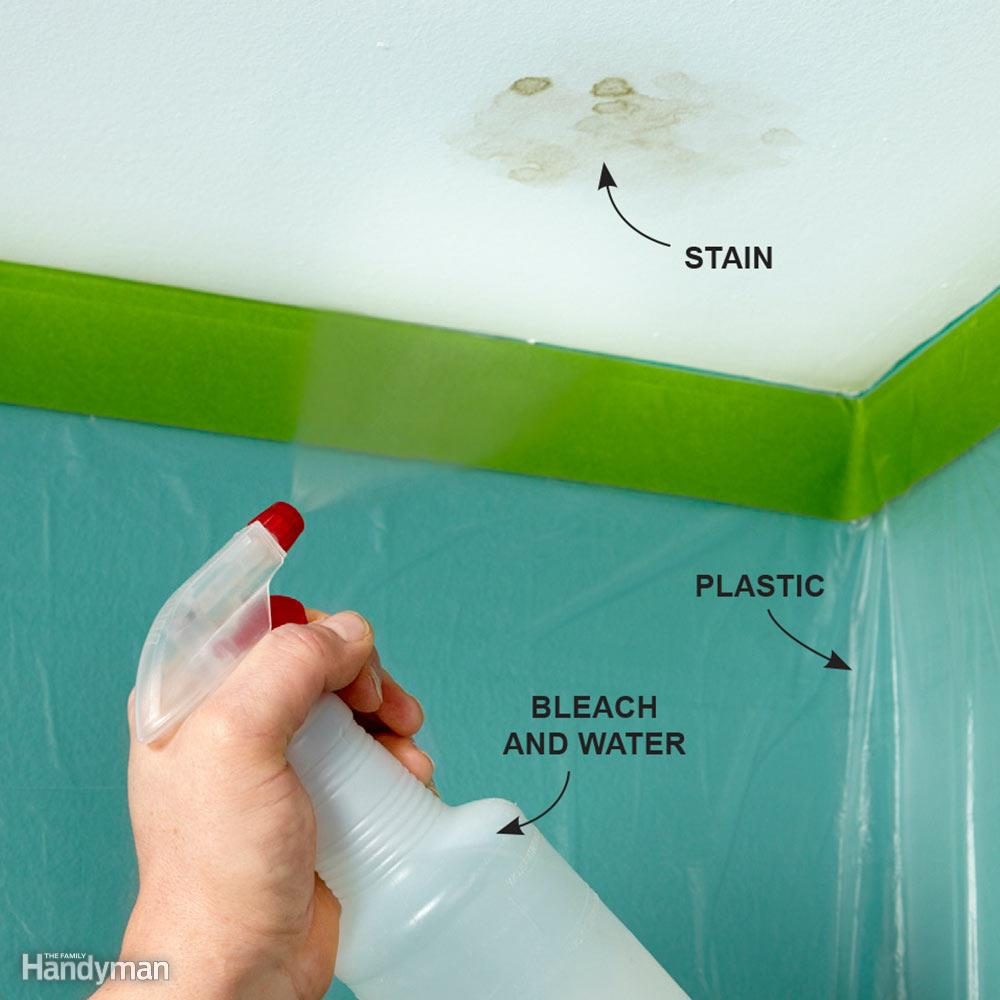
Family Handyman
Bleach Away a Water Stain
Before you go through the trouble of repainting a ceiling to get rid of a water stain, try this easy home fix. Spray the spot with a bleach and water solution (10 percent bleach), and wait a day or two. If it’s an old stain, use a mold and mildew remover from the grocery store. You’d be surprised how often the stain disappears by the next day. It works on both flat and textured ceilings. Wear safety goggles, and make sure you protect the walls and floors with plastic.
55 / 100
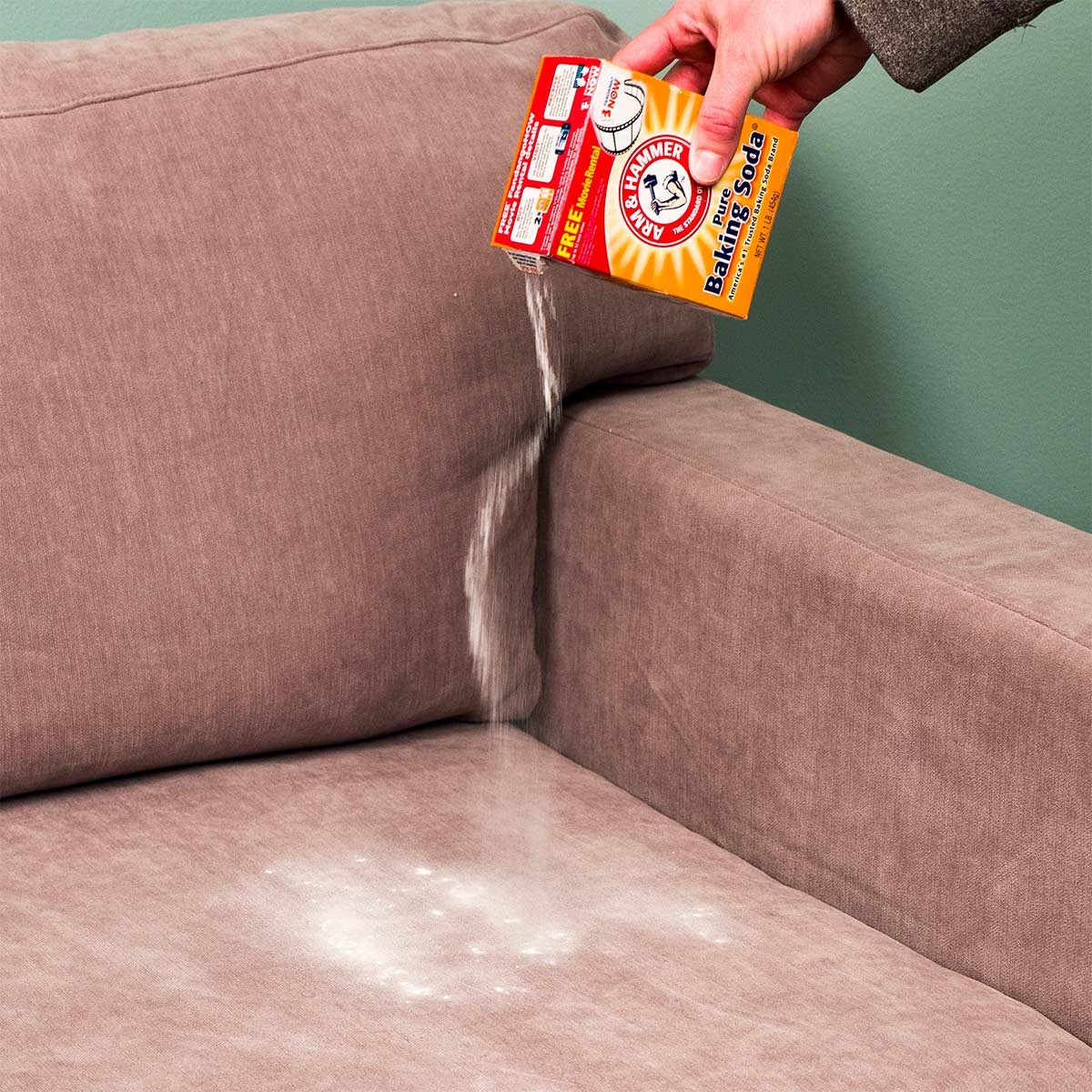
Family Handyman
Clean Upholstery with Baking Soda
Did you know that regular ol’ baking soda can help to remove odors from a couch or upholstered chair? Just sprinkle a generous amount onto the fabric, wait about 20 minutes, and then vacuum it up. The baking soda helps to soak up odors and even break up some stains in the fabric.
56 / 100
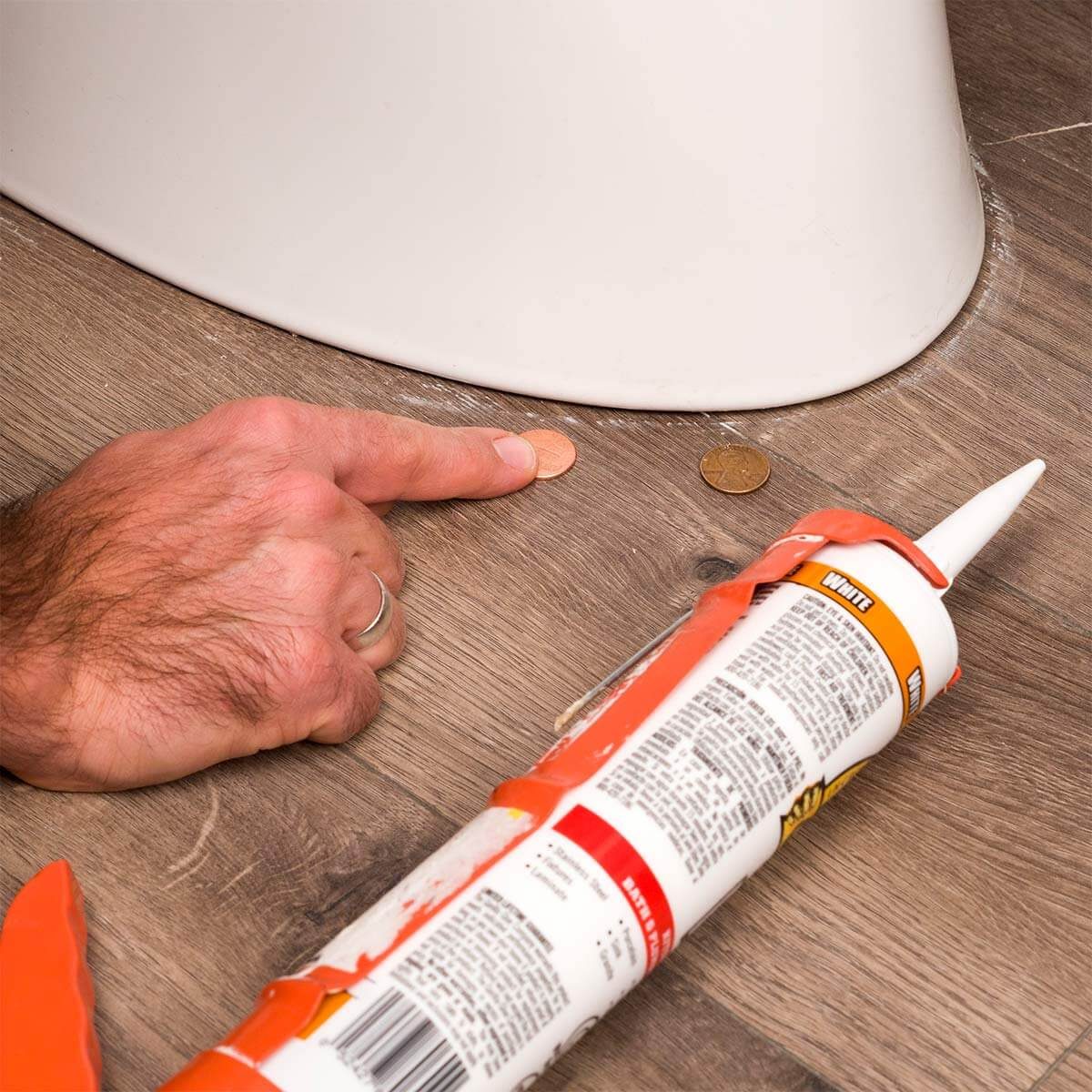
Family Handyman
Use Coins for Toilet Shims
Did you know that coins can be used to shim a toilet? Just slip coins under a toilet to level it; then add caulk along the floor to hide the coin shims.
57 / 100

Family Handyman
Air Filter
It is instinctual for homeowners to contact an HVAC tech when they notice irregularities in their cooling or heating system. These irregularities could be a direct result of a dirty or clogged air filter. We encourage homeowners to check their filters and replace if necessary. It’s also beneficial for homeowners with pets, carpet, or for homes near fields or construction zones to have multiple filters for convenient replacement.
Pro Tip: Mark your calendars! 1-in. filters should be changed every month, 2-in. filters should be changed every 2 months and 4 to 5-in. filters should be changed every 6 to 12 months.
58 / 100
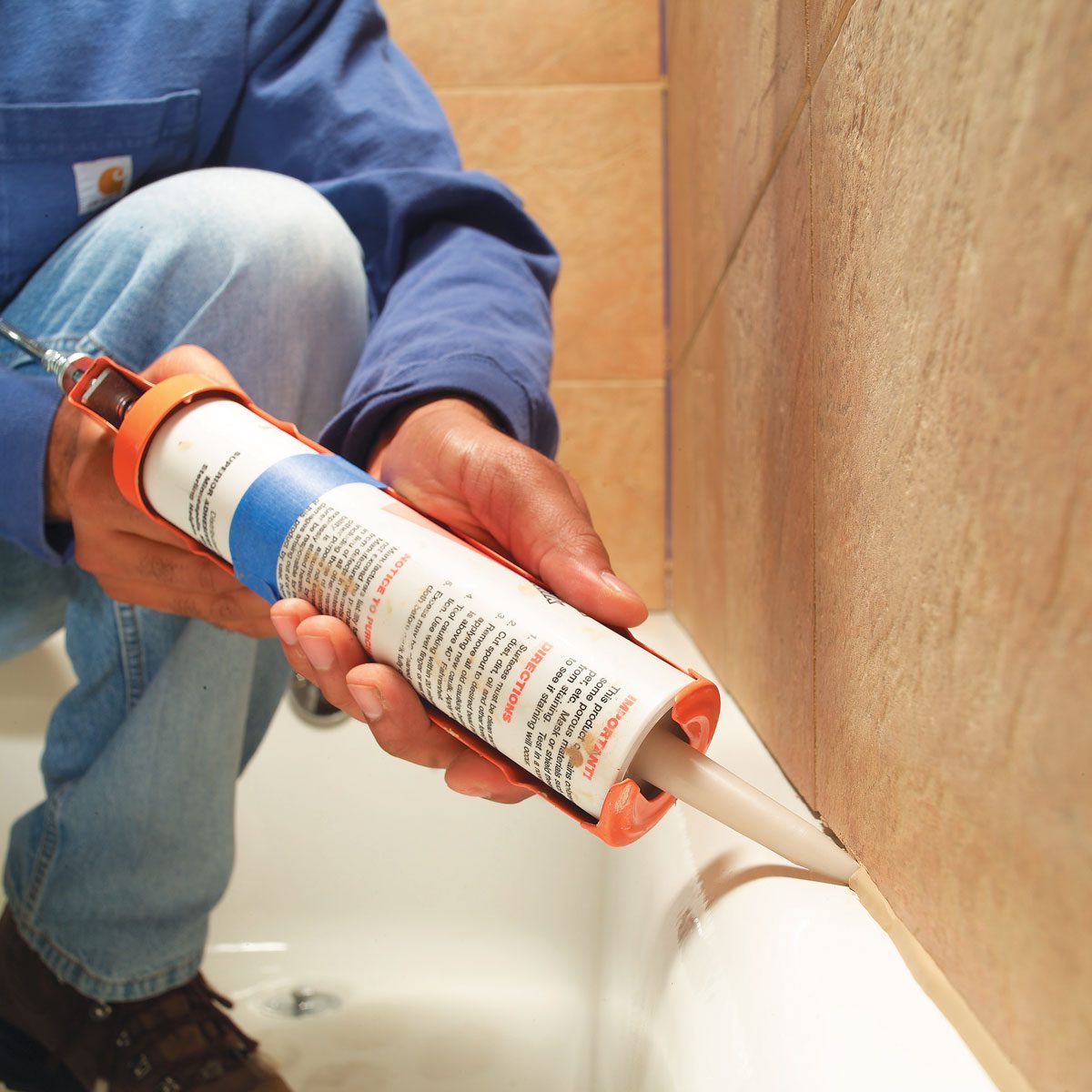
Family Handyman
Caulk it!
It’s fun, it’s easy, it’s caulking. Dirt or mold creeping underneath the clear caulk in your tub? Cut it out and re-caulk. Gaps in old moulding got you down? Add white caulk for a smooth finish. Cheap and easy, there’s no reason you shouldn’t be doing this yourself.
59 / 100
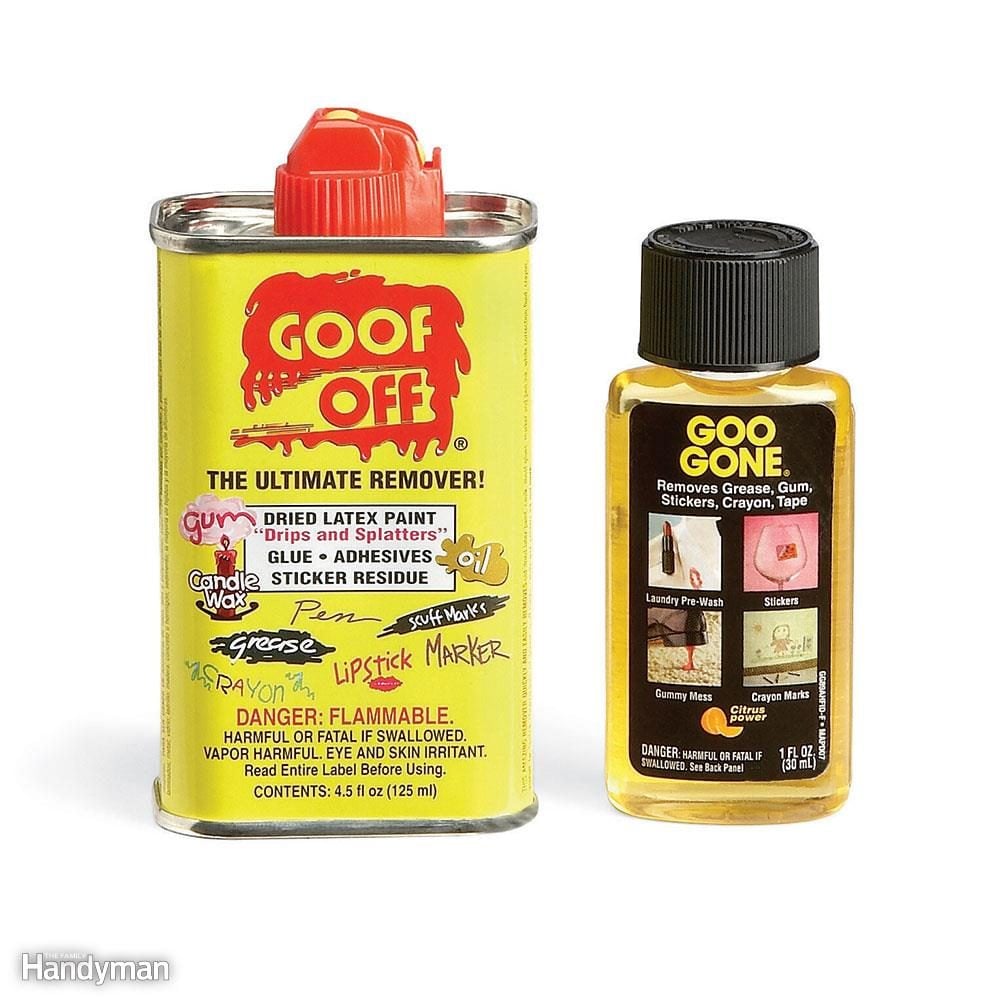
Family Handyman
Cleaning Solvents
Remove stickers, tar, gum, dried paint drops, grease and a host of other unwanted substances quickly and without a lot of frustrating scrubbing by using a general-purpose cleaning solvent. They’re a little stinky, but they make short work of nasty, gummy messes like price tag adhesive residue. Buy some Goo Gone on Amazon now.
61 / 100
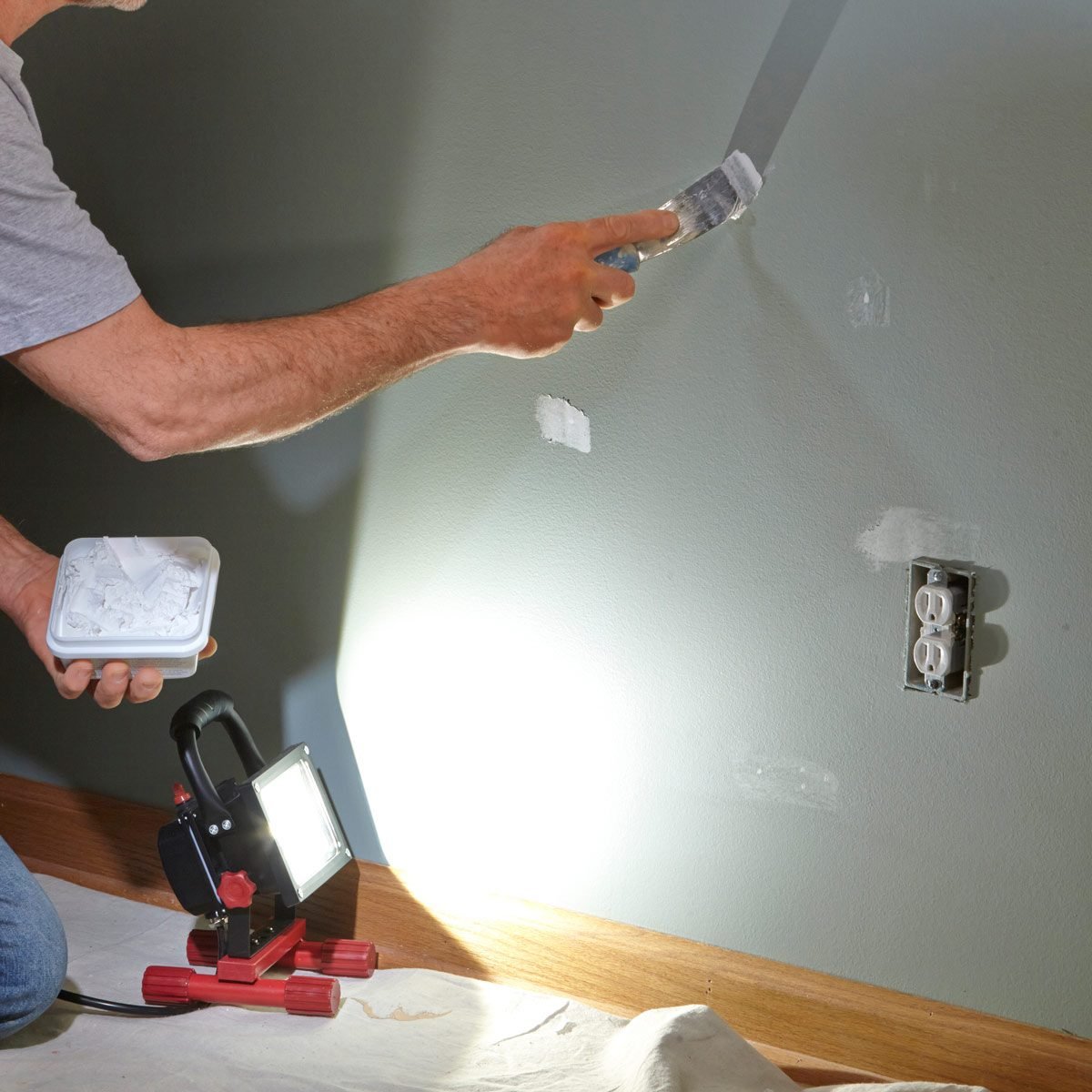
Family Handyman
Repair Any Holes
So a door knob slammed through the wall after one too many times slamming the door. No need to call your handy contractor. You can easily fix a few holes in your drywall by injecting a setting compound (for smaller holes) or by cutting out the damaged sections and replacing them with new drywall (for larger ones). Check out this handy tutorial for more on repairing holes.
62 / 100
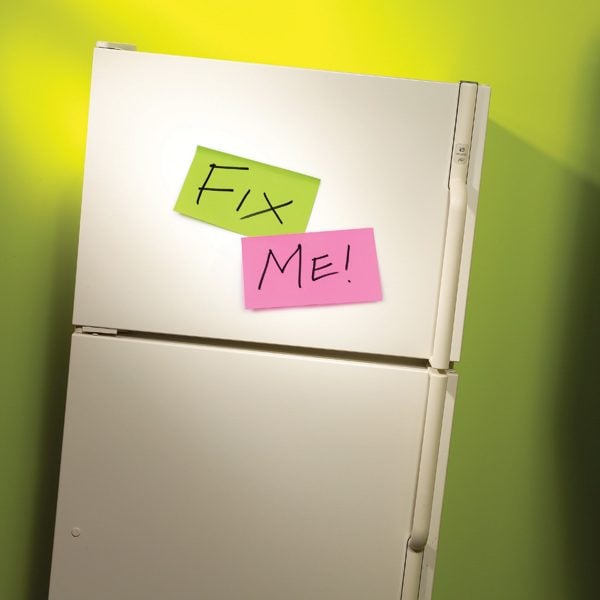
Fix a Broken Refrigerator
Simple fixes for the four most common refrigerator problems: an ice-maker breakdown, water leaking onto the floor, a cooling failure and too much noise. Chances are, you can solve the problem yourself, save some money and avoid the expense and inconvenience of a service appointment. The following article will walk you through the simplest solutions to the most common fridge malfunctions. Learn how to repair a refrigerator here.
63 / 100
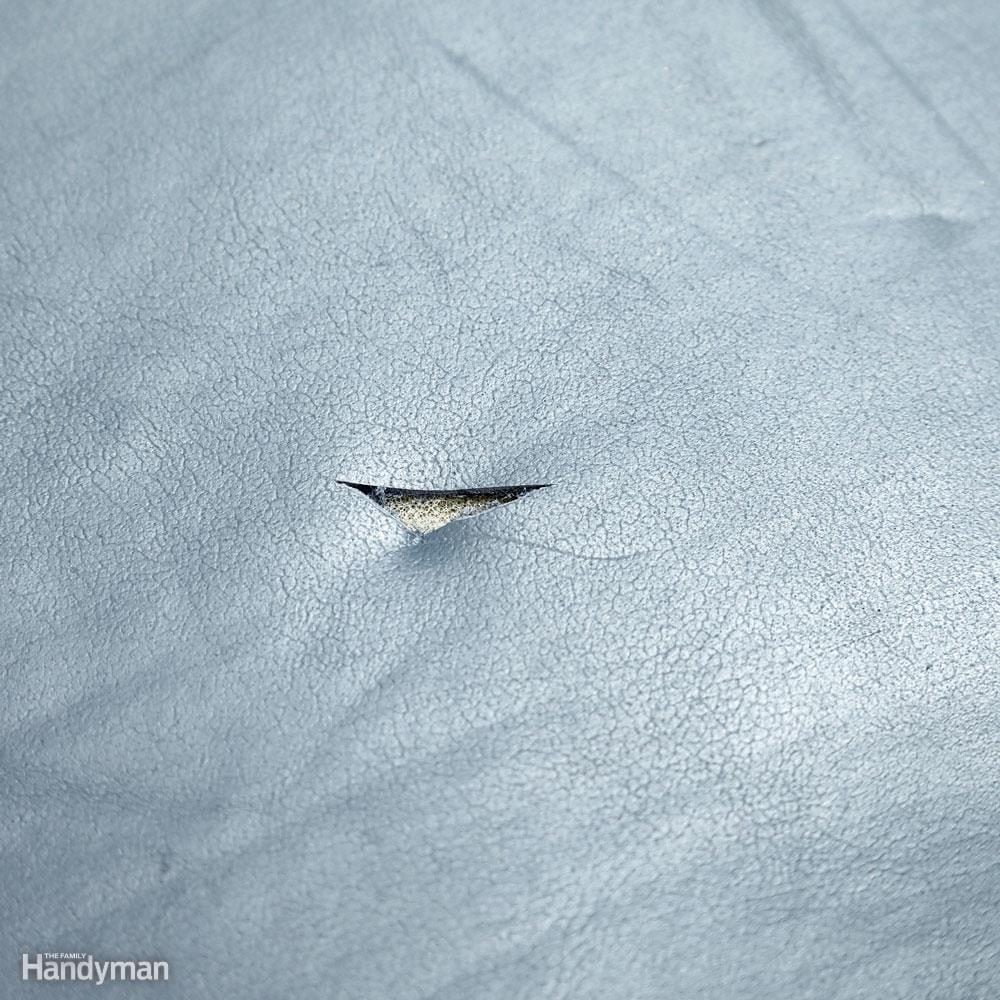
Family Handyman
Fix Tears in Leather and Vinyl
Upholstery shops charge almost $200 to fix tears in your seats. You can do it yourself in a few hours with a vinyl and leather repair kit (less than $20) from any auto parts store. You’ll have to practice a bit to get the right color mix and it might not be a perfect match when you’re done, but it’s a heck of a lot better than driving around with torn seats. Start by gluing reinforcing fabric onto the underside of the torn vinyl or leather. Then mix the heat-set filler to match your fabric color and apply it to the tear. Next, find a textured mat that most closely resembles the texture of your vinyl or leather and place it onto the liquid filler. Heat the patching tool with a clothes iron and press it onto the textured mat. Remove the patching tool, but leave the textured mat in place until the patch cools. Then peel it off. Learn more about the step by step process of leather repair.
64 / 100

Family Handyman
Remove Hard-Water Buildup with a Lemon
Remove hard-water buildup on your faucet with this simple, natural solution: Place half of a fresh lemon on the end of the faucet, wrap a small plastic bag around the lemon and secure it to the faucet with a rubber band. After a few hours, remove the lemon and wipe the faucet clean.
65 / 100
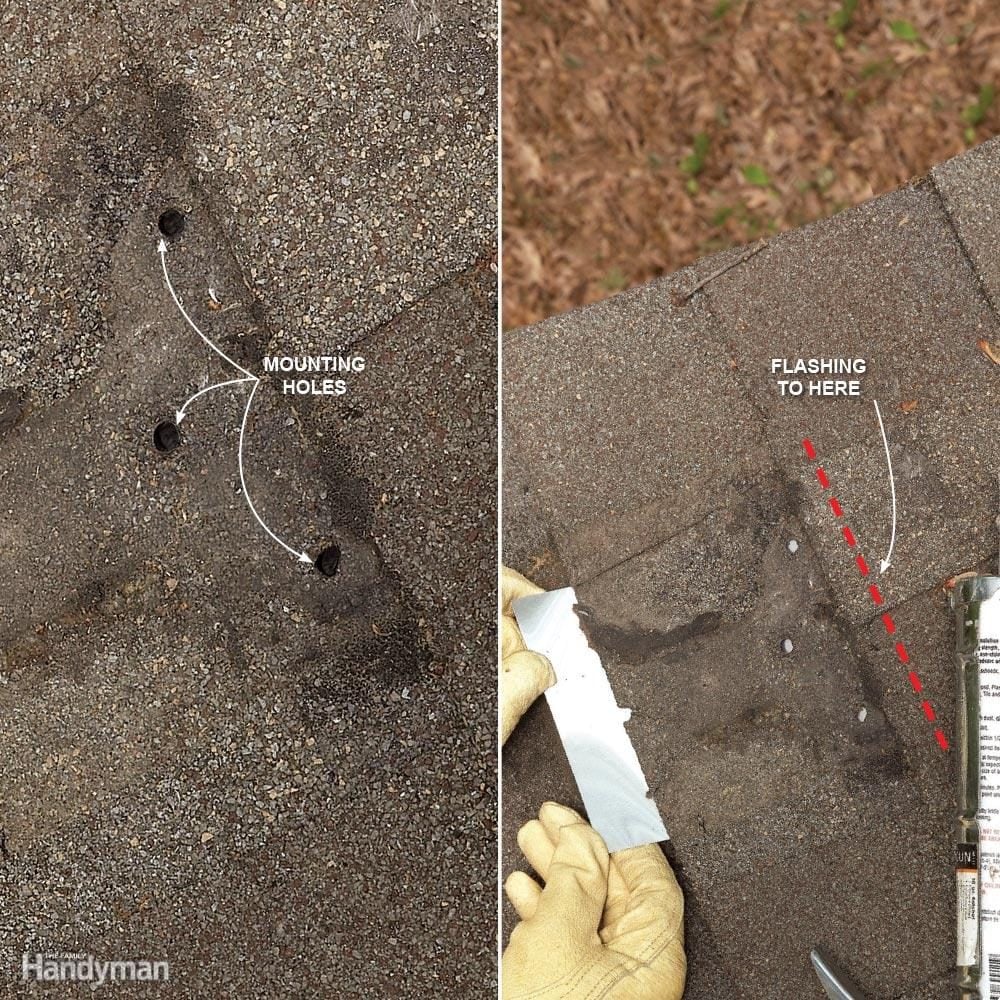
Family Handyman
Fix Small Holes
Tiny holes in shingles are sneaky because they can cause rot, a leaky roof and other damage for years before you notice the obvious signs of a leak. You might find holes left over from a satellite dish or antenna mounting brackets or just about anything. And exposed, misplaced roofing repair nails should be pulled and the holes patched. Small holes are simple to fix, but the fix isn’t to inject caulk in the hole. You’ll fix this leaky roof problem with flashing.
66 / 100
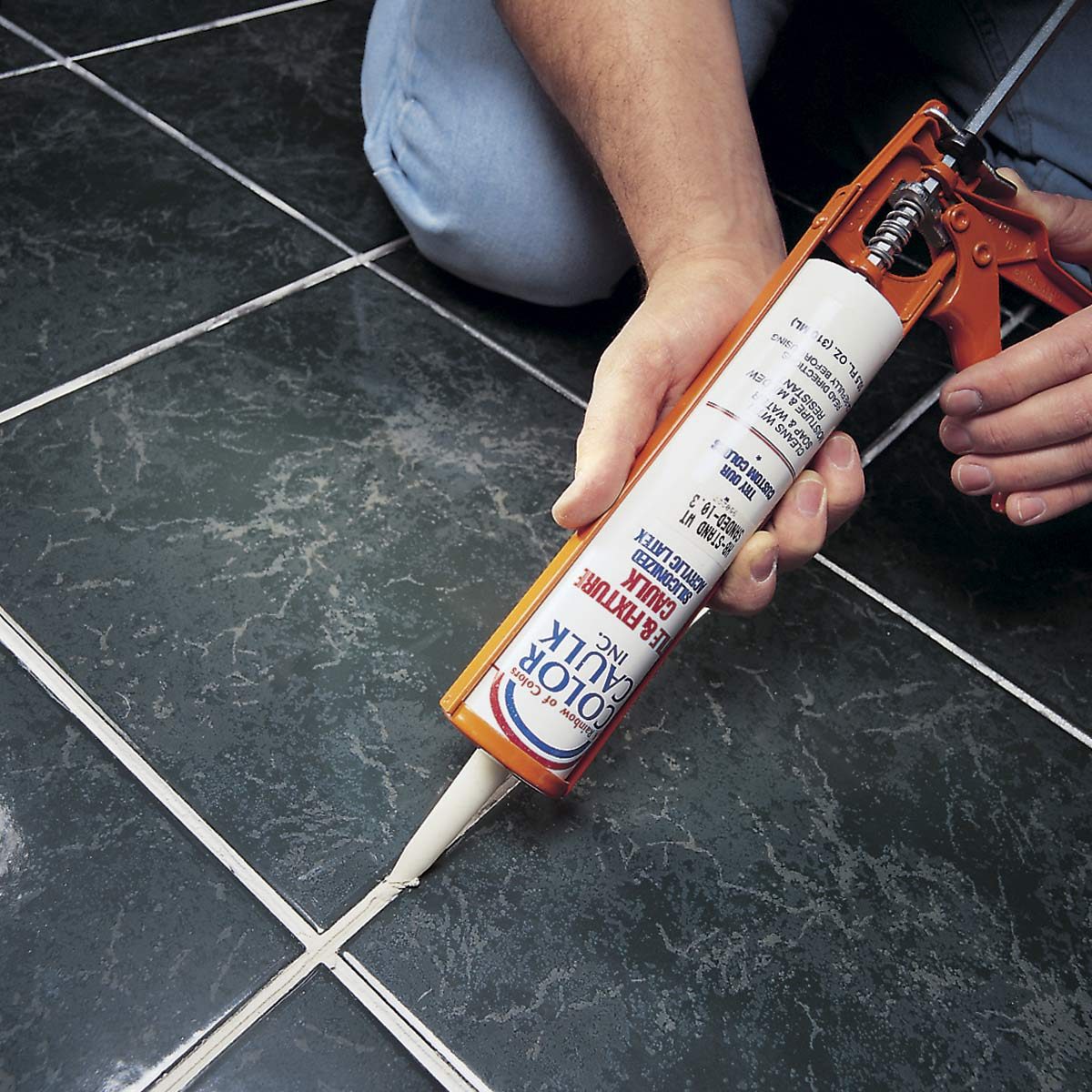
Fix Cracked Grout
Cracking grout in a newly tiled floor is a real letdown after all the work you put into it. The causes could range from a poor grout mix to a lack of expansion joints, to movement of the tiled surface. Although it might ultimately be necessary to stiffen the floor, you can first try using caulk as flexible grout. Find out more in this comprehensive article.
67 / 100
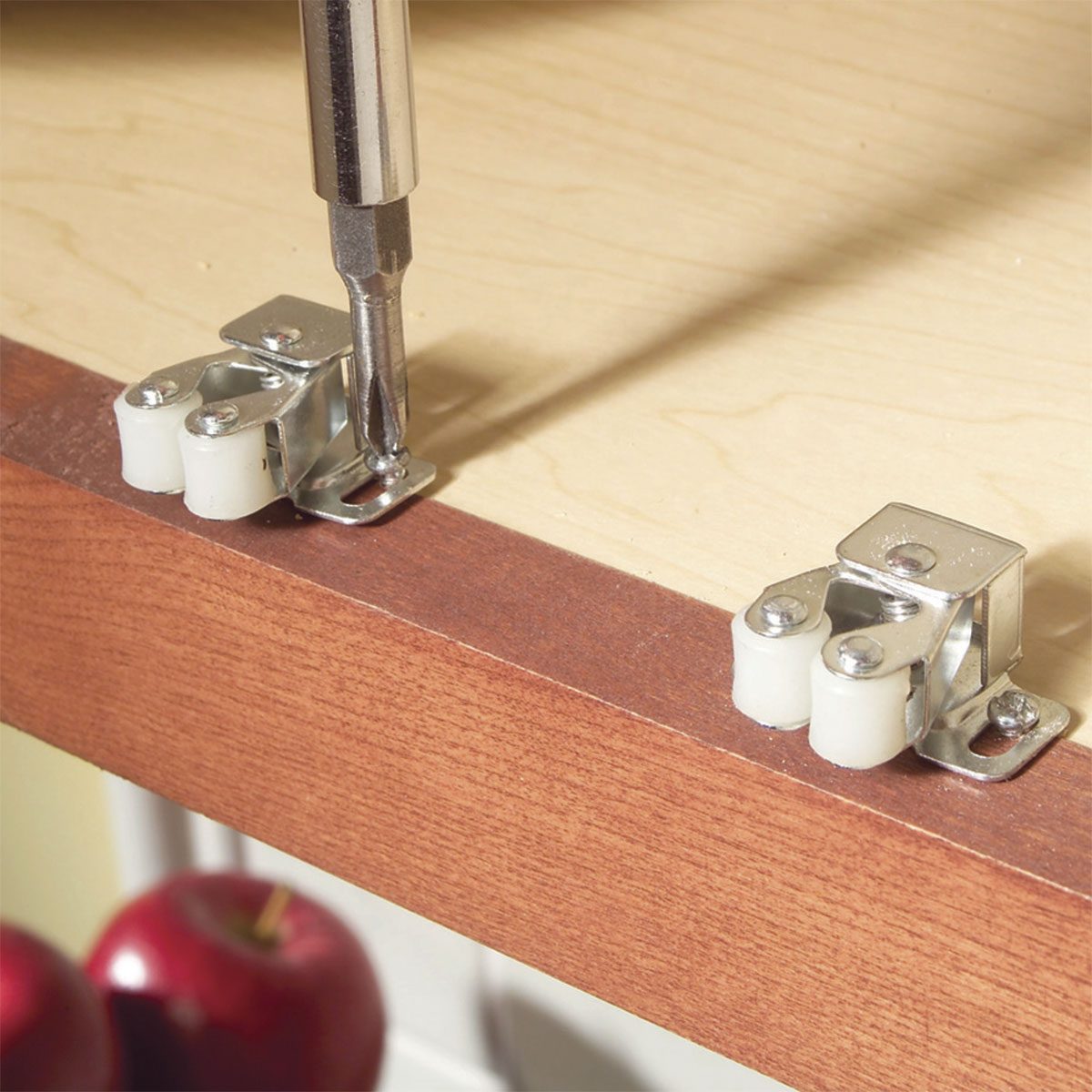
Fix Misaligned Cabinet Latches
Most newer cabinets have self-closing hinges that hold the doors shut. Others have magnetic or roller catches. A catch that no longer keeps a door closed is either broken or out of adjustment. Catches are fastened with two screws, so replacing a damaged catch is simple. Adjustment is just as simple, but you might have to readjust the catch a couple of times before you get it right. Loosen the screws, move the catch in or out, and tighten the screws. If the door doesn’t close tightly, try again.
68 / 100
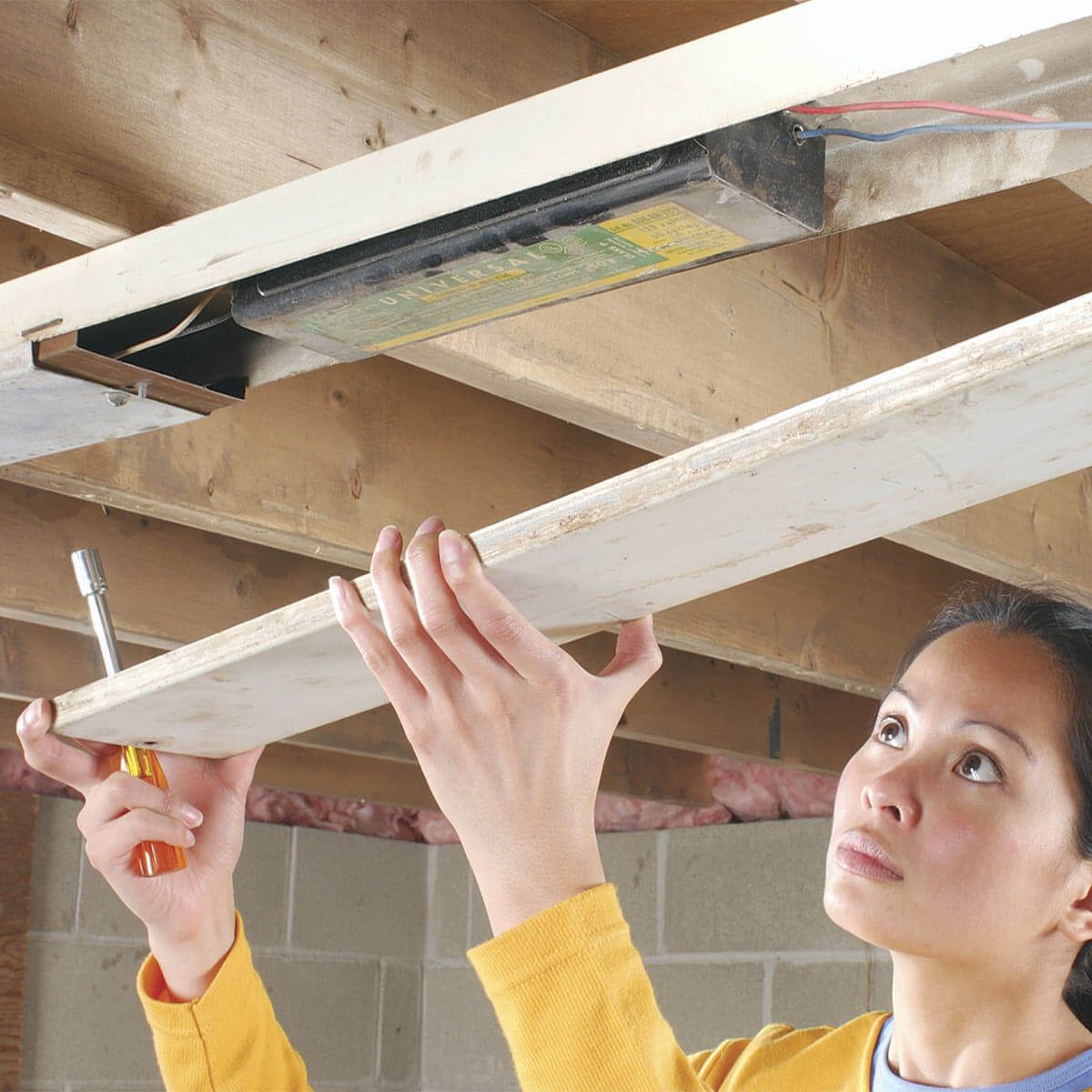
Fix a Fluorescent Light Ballast
When your fluorescent light flickers or makes a loud and annoying hum, a degrading ballast is the cause. Follow this step-by-step guide to fix it.
69 / 100
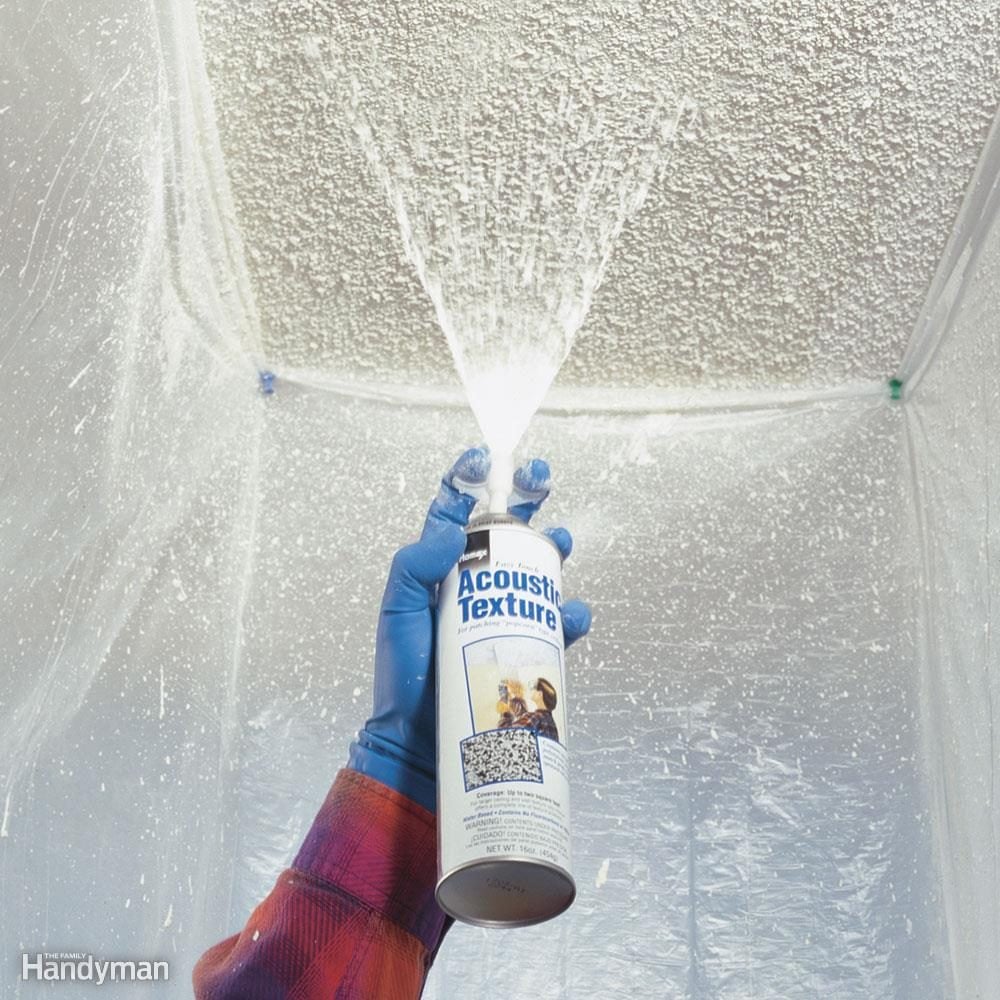
Family Handyman
Texture Spray Cans
Sooner or later, every sprayed ceiling is going to get a water stain or a scrape. Spray texture in a can won’t perfectly match every ceiling texture, but it’s usually close, and a lot easier than respraying a whole ceiling. Before spraying, seal the patch with a stain-blocking primer, cover the floor and furniture, and practice your technique on scrap plywood or cardboard. Buy ceiling texture on Amazon now.
71 / 100
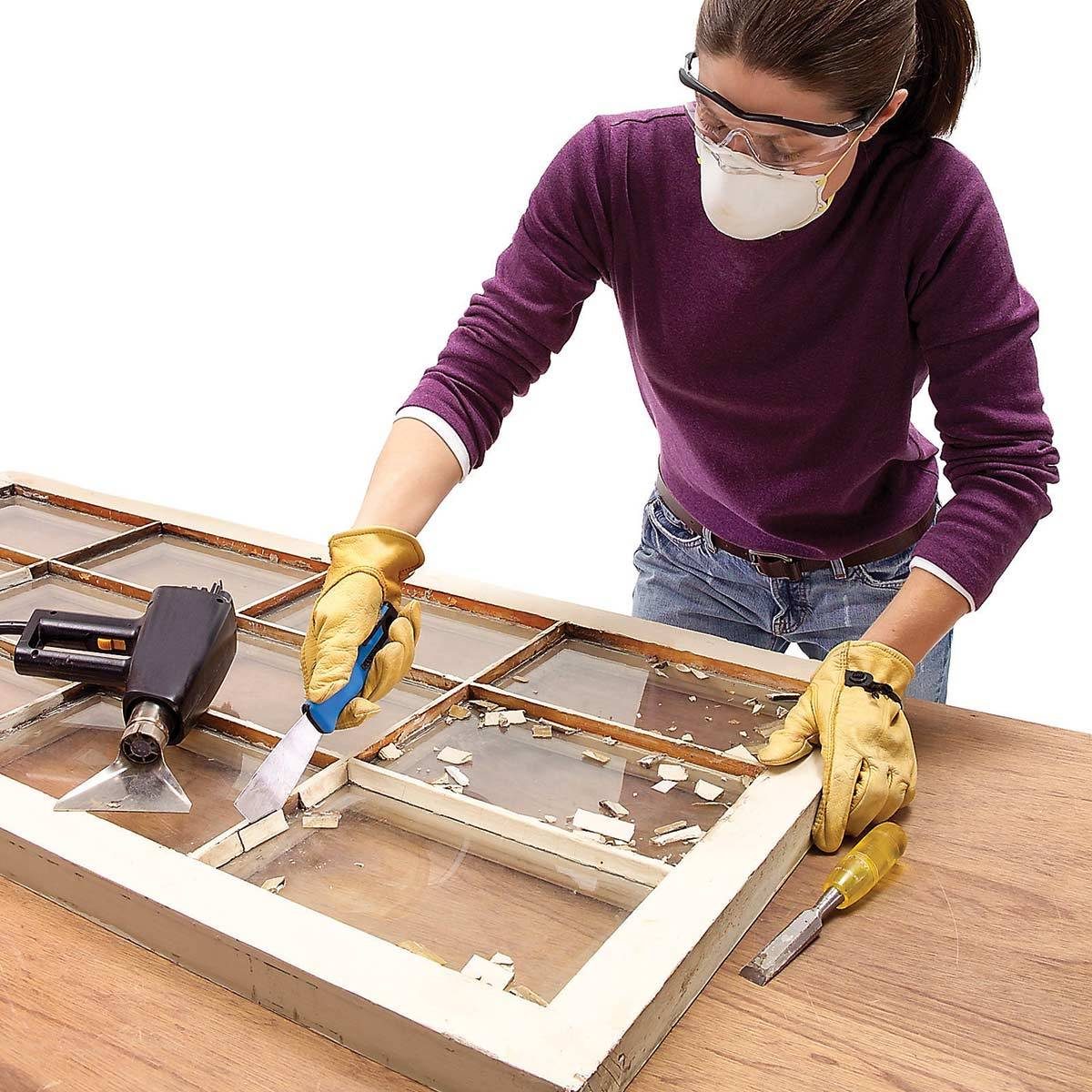
Family Handyman
Fix Windows
Obviously you can’t glue broken glass back together. But, for windows that get stuck, let in drafts or have moisture issues, there are DIY solutions. Fix old windows, double-hung windows, window glass glazing and screens. You can also stop window drafts and learn how to avoid and remove window condensation. If you want to take on a larger task, you can even replace your windows!
72 / 100
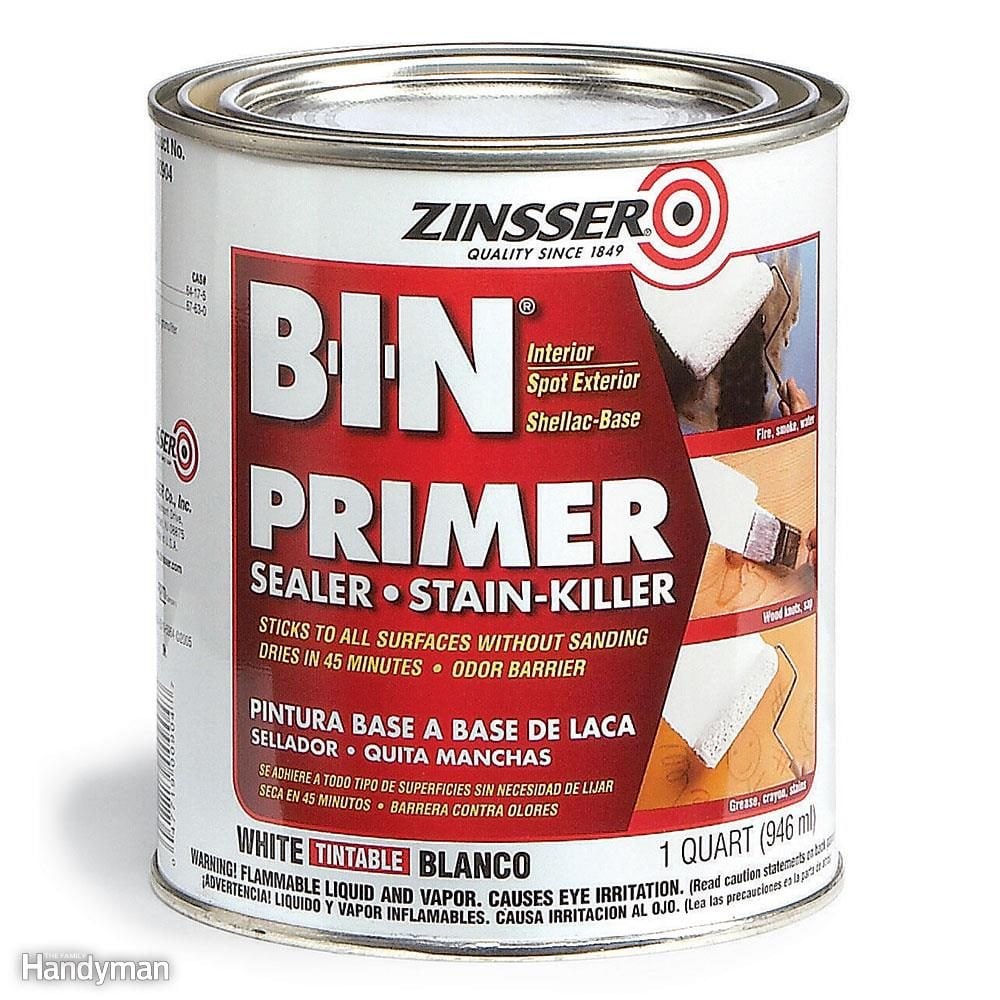
Family Handyman
Stain-Blocking Primer
Water-based sealers do a good job most of the time, but for really tough problems like wood knots, yellowed water stains, heavy smoke damage, and other stains that bleed through paint, pigmented solvent-based sealers (BIN and KILZ are two brands) are unbeatable. Learn how to skim coat walls here.
73 / 100

Family Handyman
How to Restore Your Deck
After a few years, your deck is sure to show some wear and tear and make you feel like you have an ugly deck. Don’t rush to replace boards that are otherwise in good condition. With a deck restoration coating and a few days in the sunshine, your deck will look as good as new. Get the full how-to here. See the lighting options you need to add to your deck to make it shine at night.
74 / 100
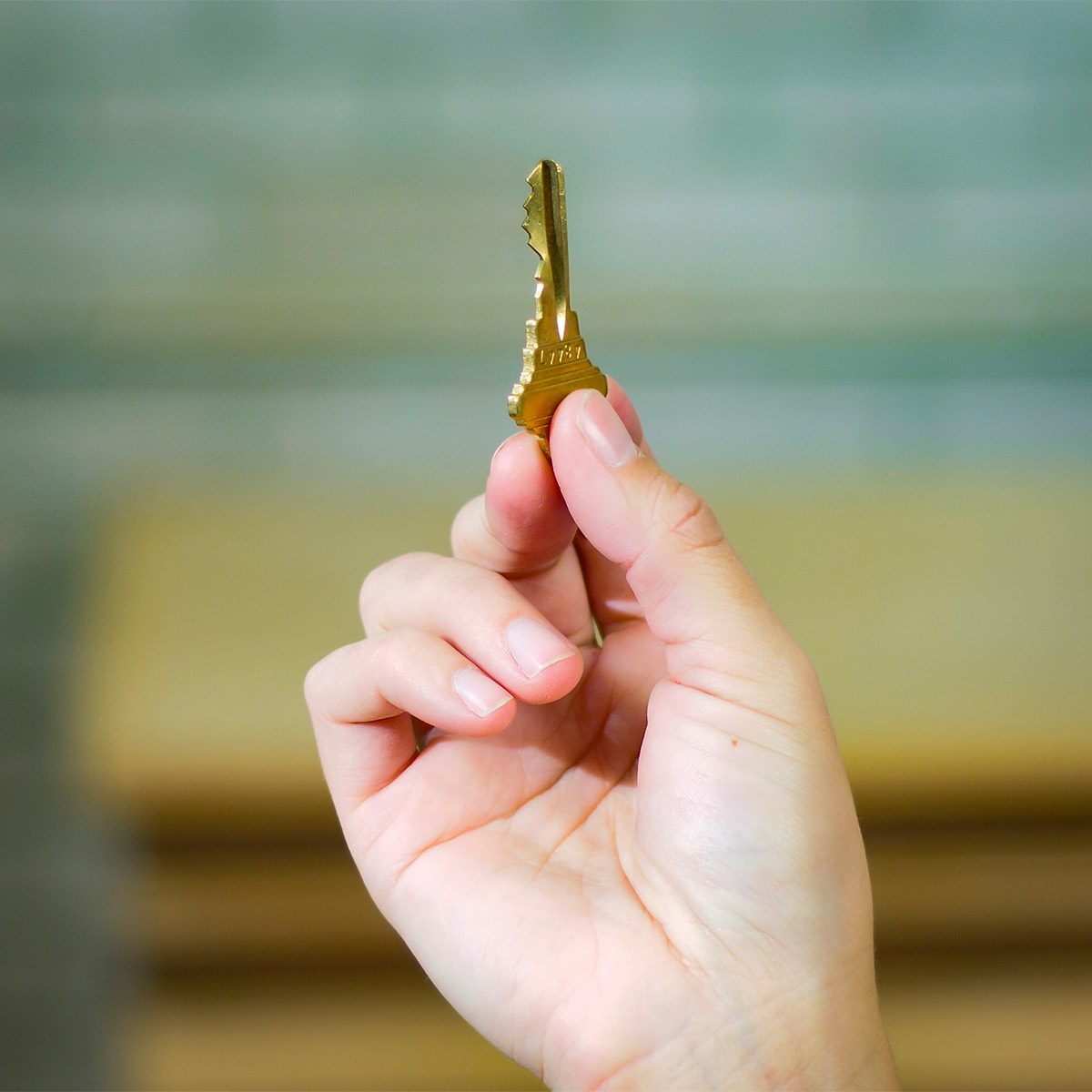
Fix a Twisted Key
If you accidentally twist a key out of shape, try this temporary fix: Place the key in a vise with the damaged portion pointing upward. Then use pliers to slowly bend it straight. Be sure to replace the key soon, because once it’s bent, it’s more likely to break.
75 / 100
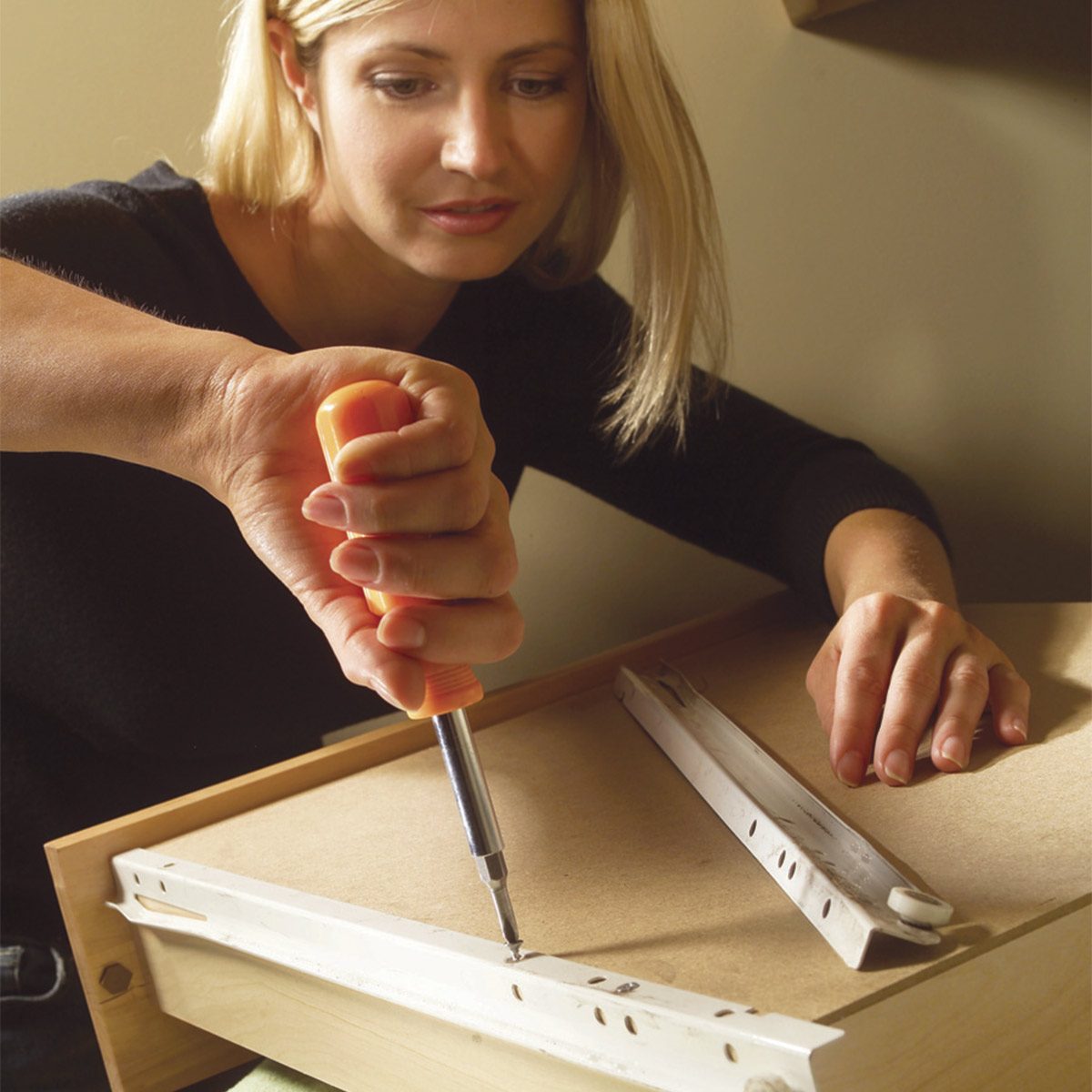
Replace Drawer Slides
If you find that drawer slides are bent, rollers are broken or rollers won’t turn even after lubricating, replacement is the best solution. To keep the project simple, buy new slides that are identical (or almost identical) to the old ones. That way, replacement is an easy matter of unscrewing the old and screwing on the new. Remove a drawer track and a cabinet track and take them shopping with you. Learn how to build an under-cabinet drawer here.
76 / 100
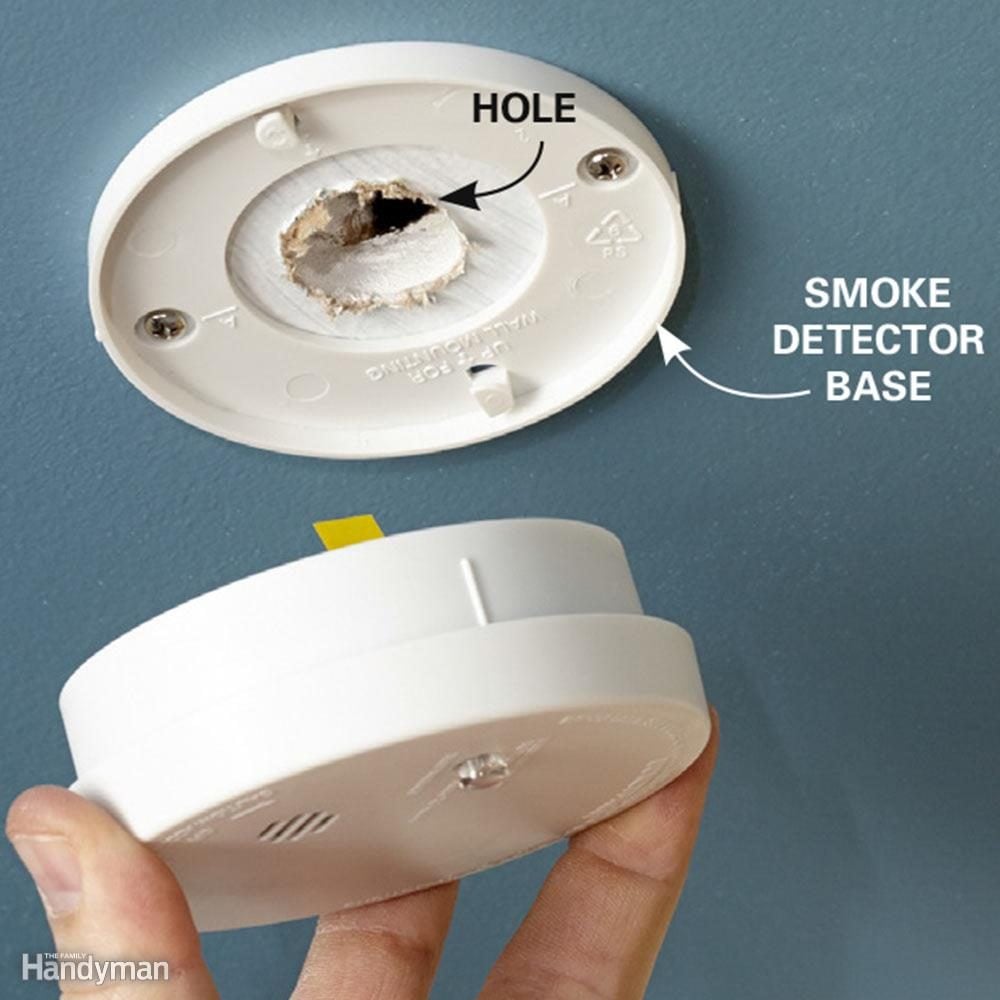
Family Handyman
Hide a Hole With a Smoke Detector
Short on time and money? Instead of patching a hole in the ceiling (which usually means repainting the whole ceiling) just cover it with a smoke detector. No more hole, and added safety, to boot! Check out more life-saving tips for smoke alarms.
77 / 100

Family Handyman
Silence a Squeaky Floor
Another easy home fix to keep in your files: To fix a squeaky floor under carpet, locate the floor joists with a stud finder, then drive in a trim head screw through the carpet, pad and subfloor, and right into the floor joist. Be sure the top inch of the screw doesn’t have threads or the subfloor won’t suck down tight to the joist. We like trim screws because screws with larger heads pull down and pucker the carpet. If that happens, back out the screw and drive it back down. Keep adding screws until the squeak stops. Try these other squeaky floor fixes.
79 / 100
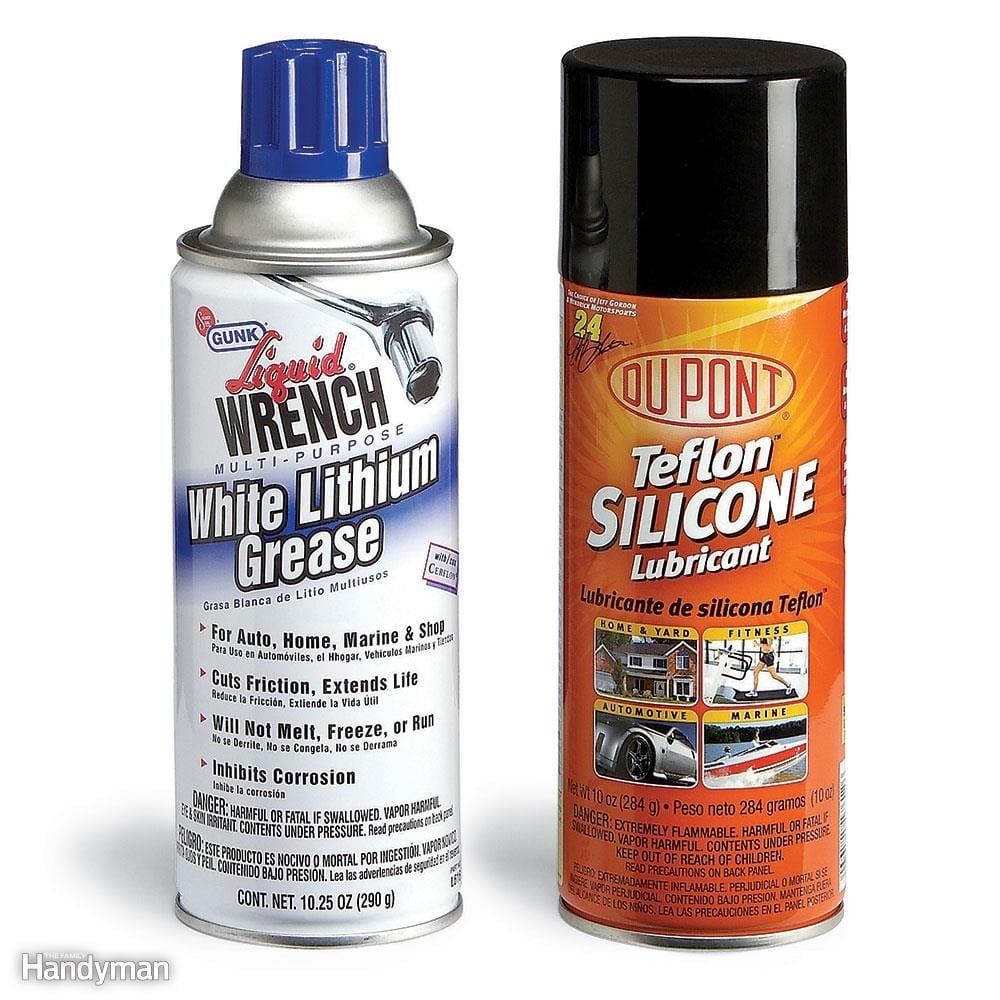
Family Handyman
Two Lubricants That You Need in Your House
Silicone dries quickly and invisibly and doesn’t attract dirt, making it a good lubricant for drawer rollers, window tracks, door locks, bike parts, and other plastic, metal and rubber surfaces. It also helps protect metal against rust. Lithium grease is a long-lasting, weather-resistant (though somewhat messy) lubricant for garage door tracks, car doors and latches, and other metal parts that get heavy use outside. Check out 20 brilliant ways to use WD-40, another must-have lubricant for home repairs.
80 / 100
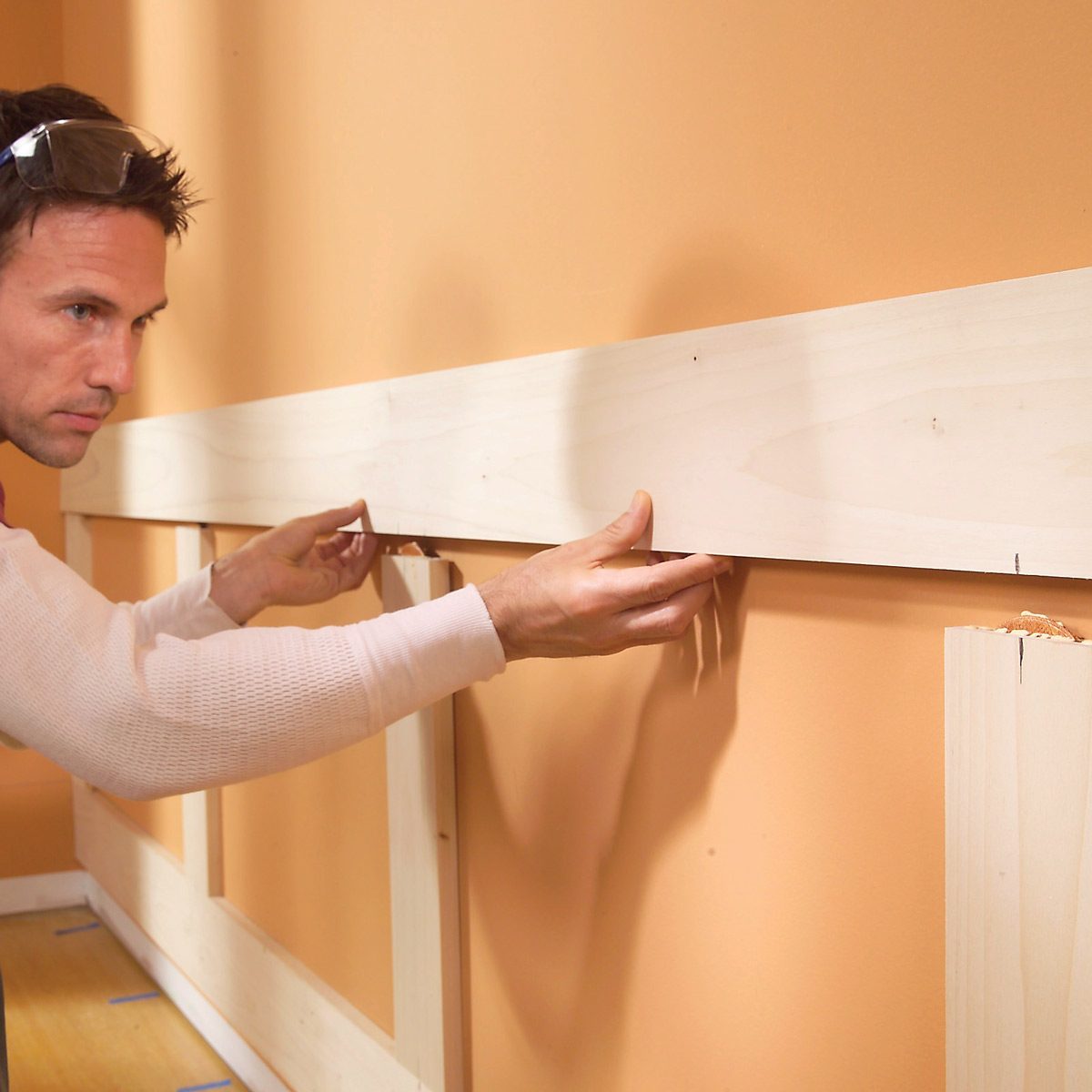
Family Handyman
Ditch the Wood Paneling
This is a fun one. Composite wood paneling may have been all the rage in the 60s and 70s, but unless it’s still in perfect condition and painted white, it’s probably an eyesore. Popping off this decorative paneling can take minutes, and is seriously satisfying. Just be ready: you never know what condition the wall is in underneath. Be prepared to do a little plaster repair and, of course, repaint. Click here to learn how to prepare a wall for painting.
81 / 100
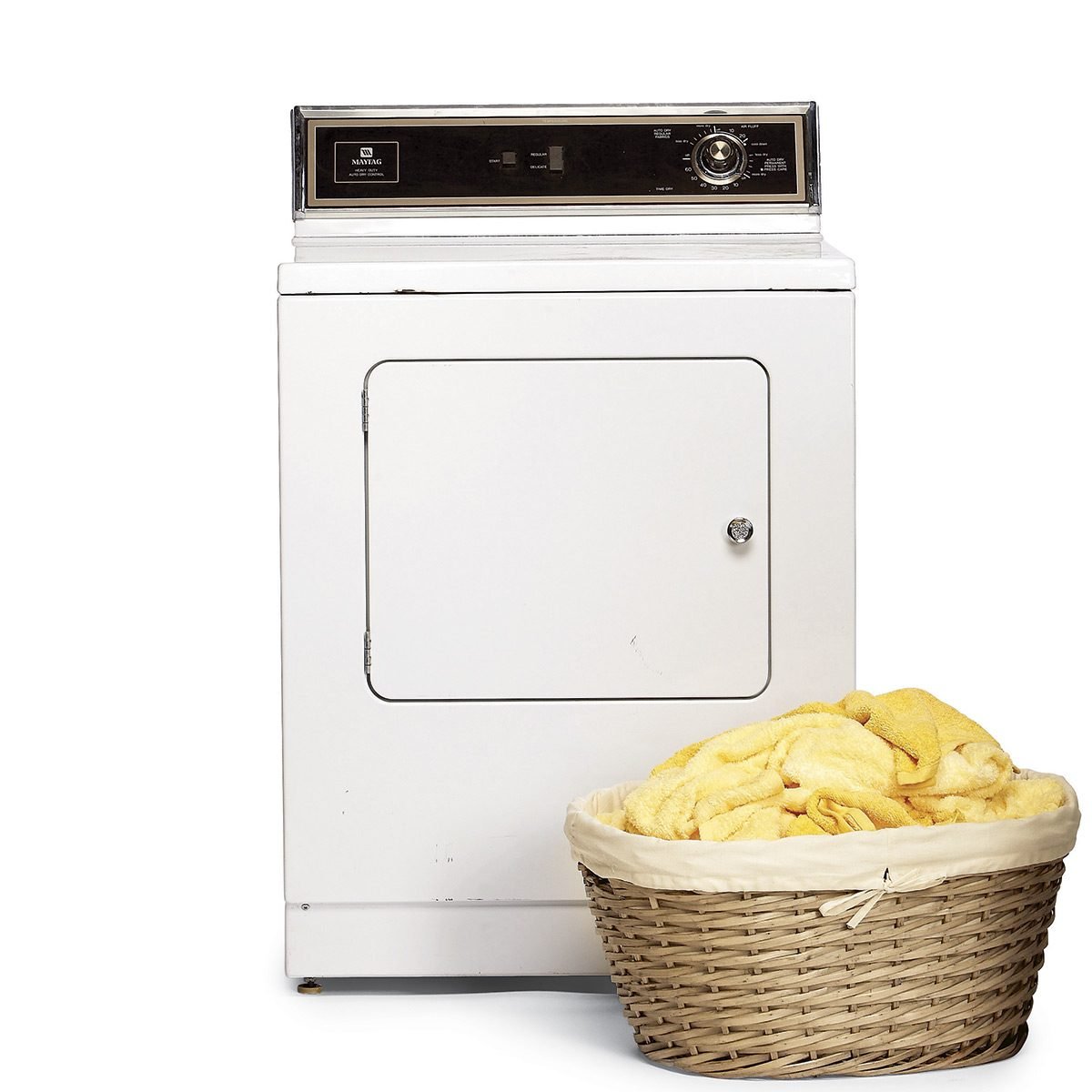
Family Handyman
Clothes Dryer Repair Guide
Most dryer problems can be fixed in an hour with a few basic tools and a continuity tester or multimeter, and you can do the work yourself with these simple instructions. Get the clothes dryer repair guide.
83 / 100

Family Handyman
Fix Plumbing Vent Boots
Plumbing vent boots can be all plastic, plastic and metal, or even two-piece metal units. Check plastic bases for cracks and metal bases for broken seams. Then examine the rubber boot surrounding the pipe. That can be rotted away or torn, allowing water to work its way into the house along the pipe. With any of these problems, you should buy a new vent boot to replace the old one. But if the nails at the base are missing or pulled free and the boot is in good shape, replace them with the rubber-washered screws used for metal roofing systems. You’ll find them at any home center with the rest of the screws. You’ll have to work neighboring shingles free on both sides. If you don’t have extra shingles, be careful when you remove shingles so they can be reused. Use a flat bar to separate the sealant between the layers. Then you’ll be able to drive the flat bar under the nail heads to pop out the nails.
84 / 100
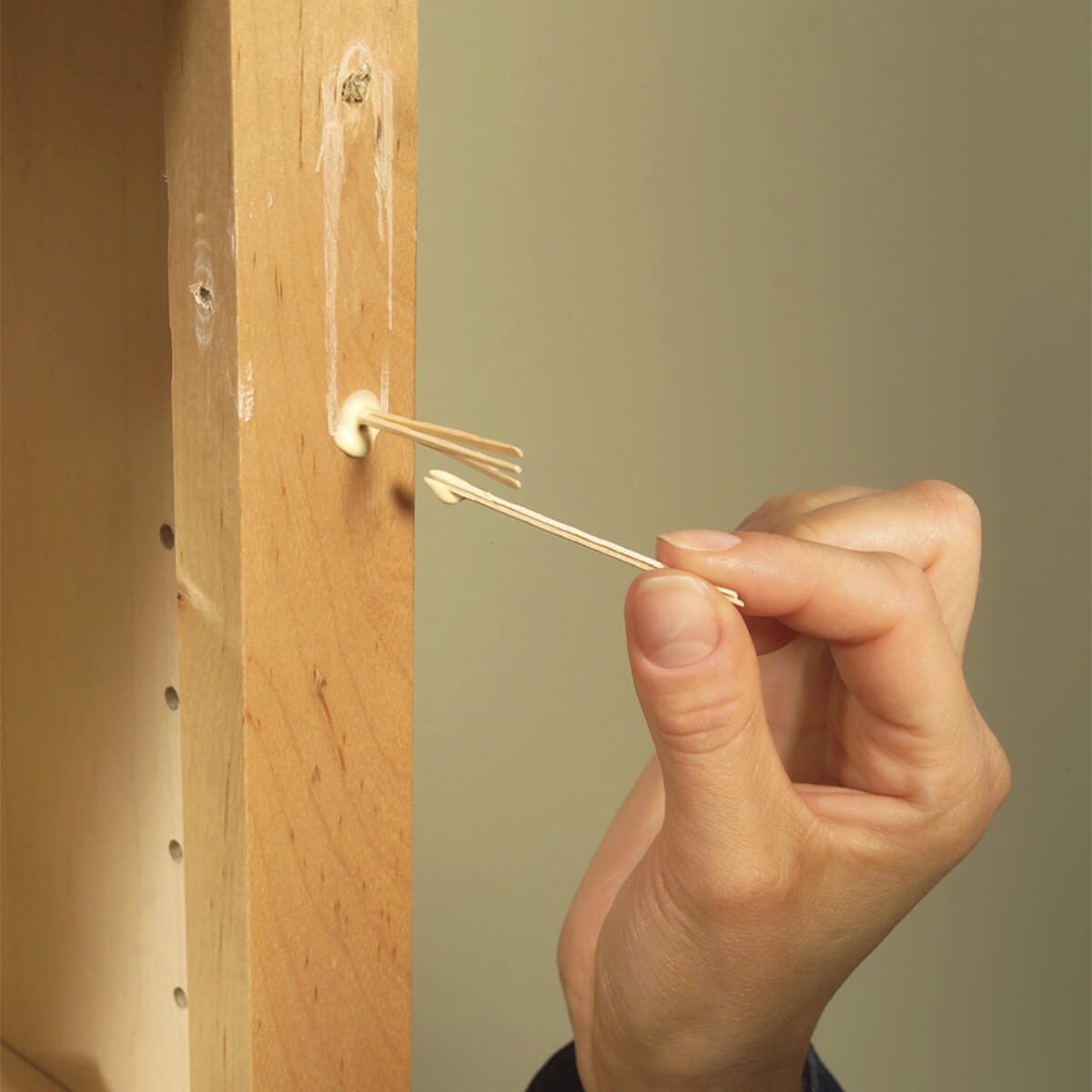
Stripped Screw Holes
If a screw turns but doesn’t tighten, the screw hole is stripped. Here’s a quick remedy: Remove the screw and hardware. Dip toothpicks in glue, jam as many as you can into the hole and break them off. You don’t have to wait for the glue to dry or drill new screw holes; just go ahead and reinstall the hardware by driving screws right into the toothpicks.
85 / 100
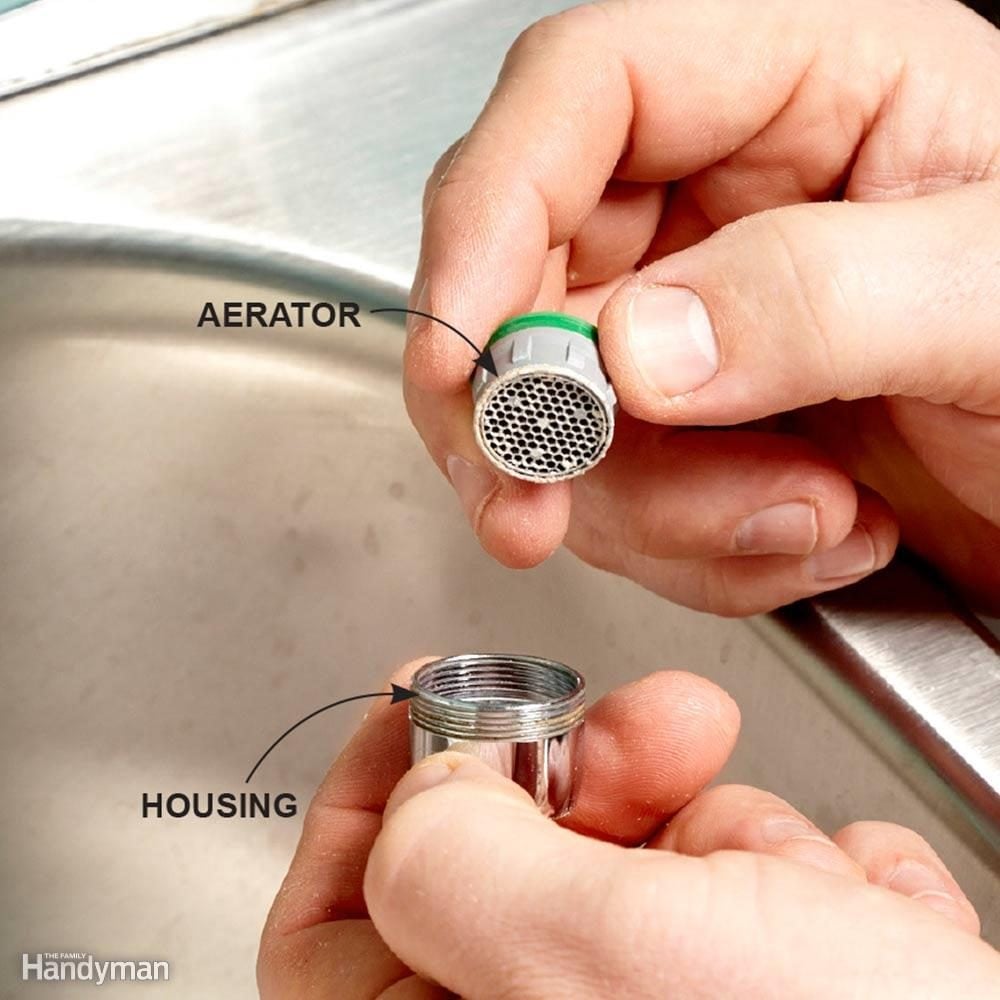
Family Handyman
Restore Free Flow to a Faucet
When a kitchen or bathroom faucet loses pressure or starts spraying to the side, it’s usually due to a dirty aerator screen. Luckily, cleaning a screen is an easy job. Start this fix by closing the drain plug (so you don’t drop parts down the drain). Then remove the aerator using a rag or masking tape so you don’t mar the finish with your pliers. To remove the sand and other deposits, soak the aerator in vinegar, then scrub it with a toothbrush. This usually solves the problem. If you have to disassemble the aerator to clean it, lay out the parts in the order you removed them so you can reassemble them correctly. Still having issues? Do a showerhead deep clean.
86 / 100

Family Handyman
Fix a Running Toilet: Flush Without Hang-Ups
Here’s a quick way to avoid a running toilet caused by a kinked toilet chain. Remove the chain from the arm attachment, and slide a plastic straw over the flapper chain, covering about two-thirds of the chain. Then reattach the chain to the arm. It’s that simple, and you’ll never have a running toilet caused by a kinked chain again.
87 / 100

Family Handyman
How to Adjust Oven Temperatures
If your oven cooking times are off, recalibrate your oven temperature to match an accurate oven thermometer. The procedure is in your oven’s instruction manual. Learn how to adjust oven temperatures.
88 / 100
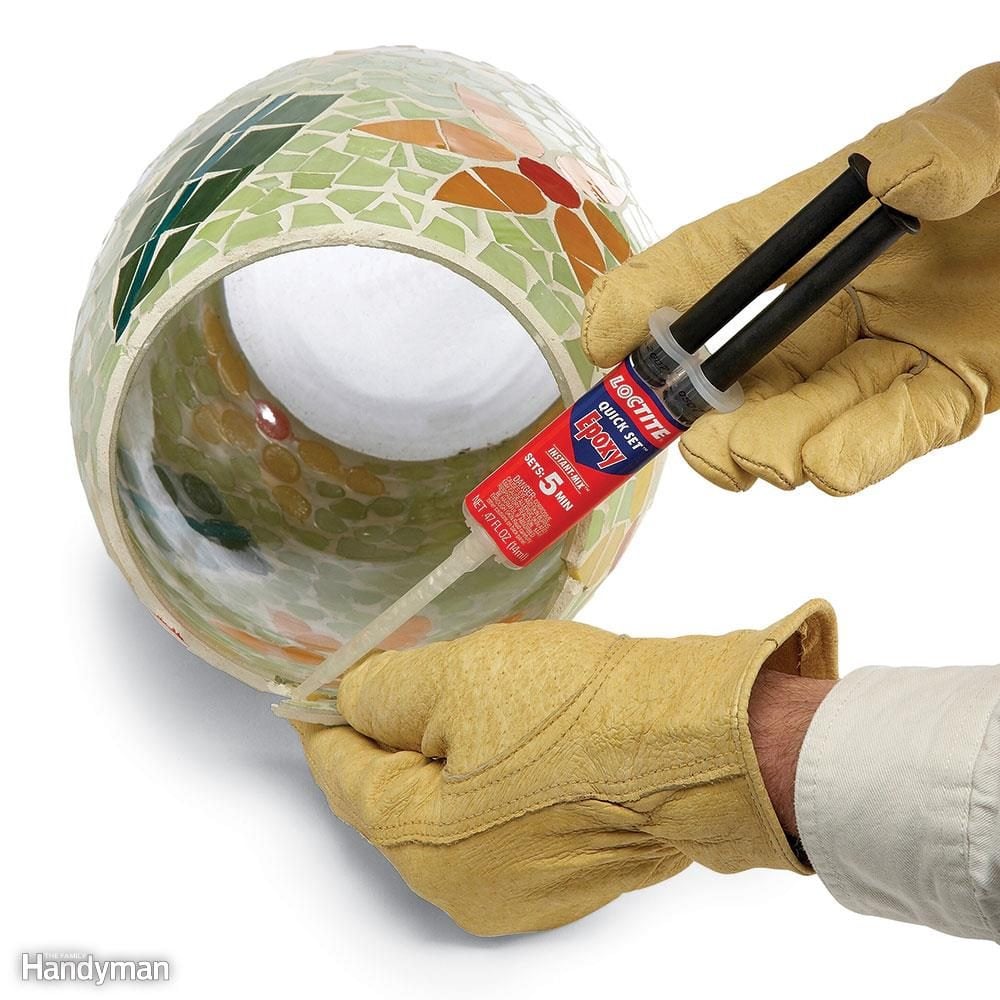
Family Handyman
Epoxy Glue
Two-part epoxy glue is rock-hard, fills huge gaps, bonds to almost anything and dries very quickly. Some brands now come with an applicator tip that automatically mixes the two parts so you can spread it like a regular glue, without mixing. It’s perfect for gluing irregular shapes and dissimilar materials to each other. Most epoxies set in five minutes, but you can buy quicker-setting types that allow you to just hold pieces in place for a minute, without any clamping. Pick up some epoxy glue on Amazon today.
90 / 100
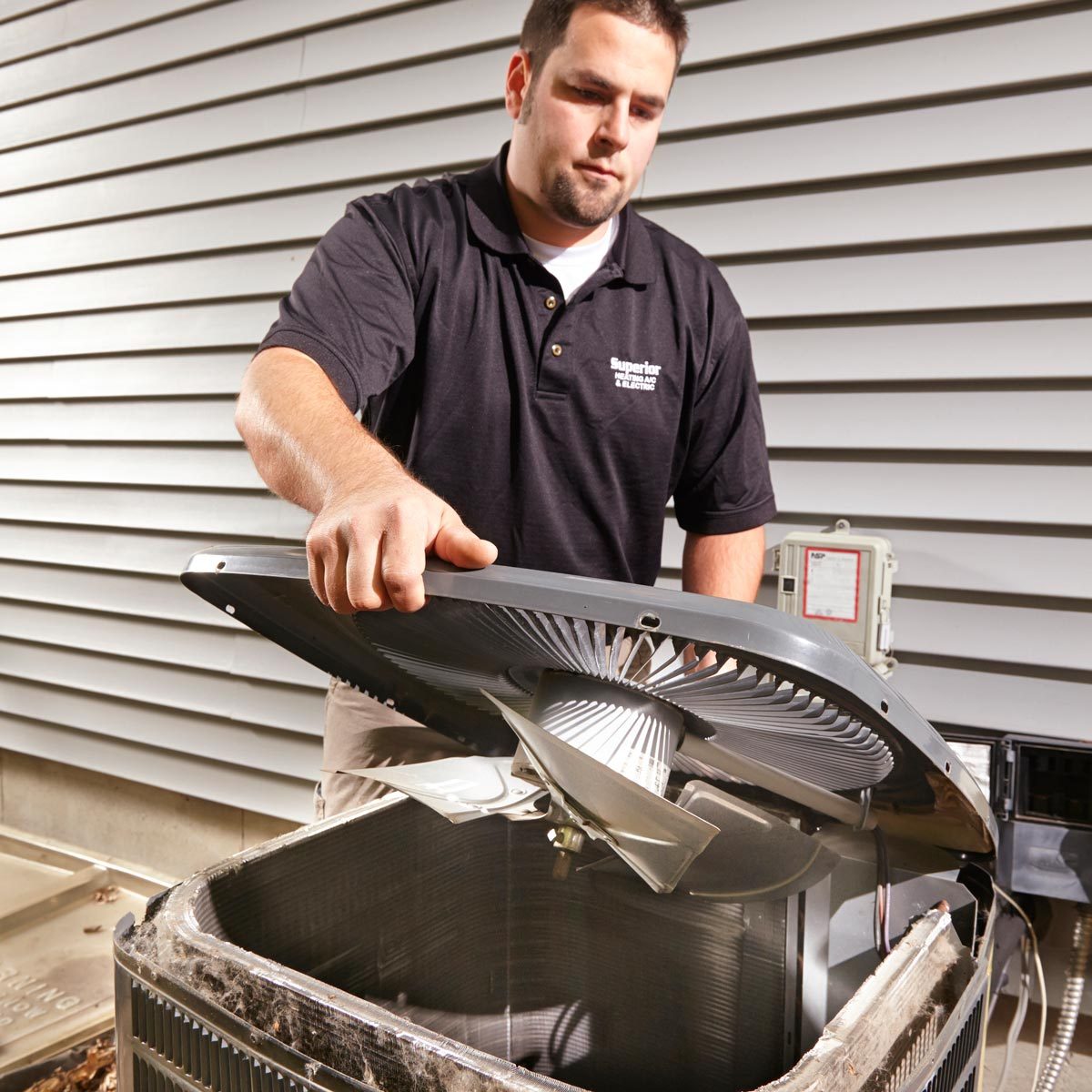
Family Handyman
Vents
Vents are a sensitive component of any cooling and heating system. It is imperative to check vents, ducts, and grills for blockage as that can be the leading factor of irregular air flow.
Pro Tip: Furniture or plants should be at least two feet away from vents.
91 / 100
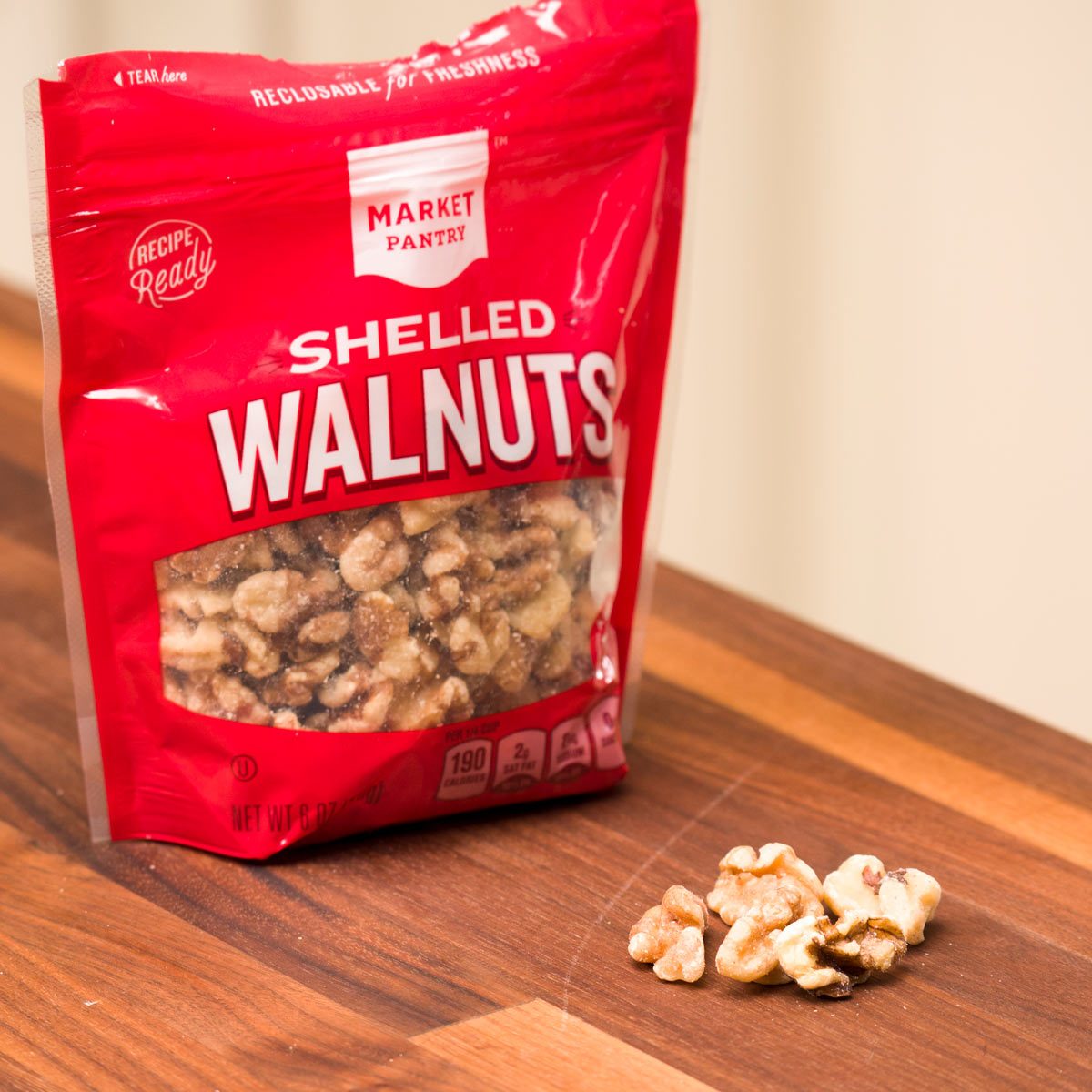
The Miracle of a Walnut
Furniture gets beat up over time, but you don’t have to live with the unsightly scratches. In fact, you can remove years of damage with a simple snack food: walnuts.
92 / 100
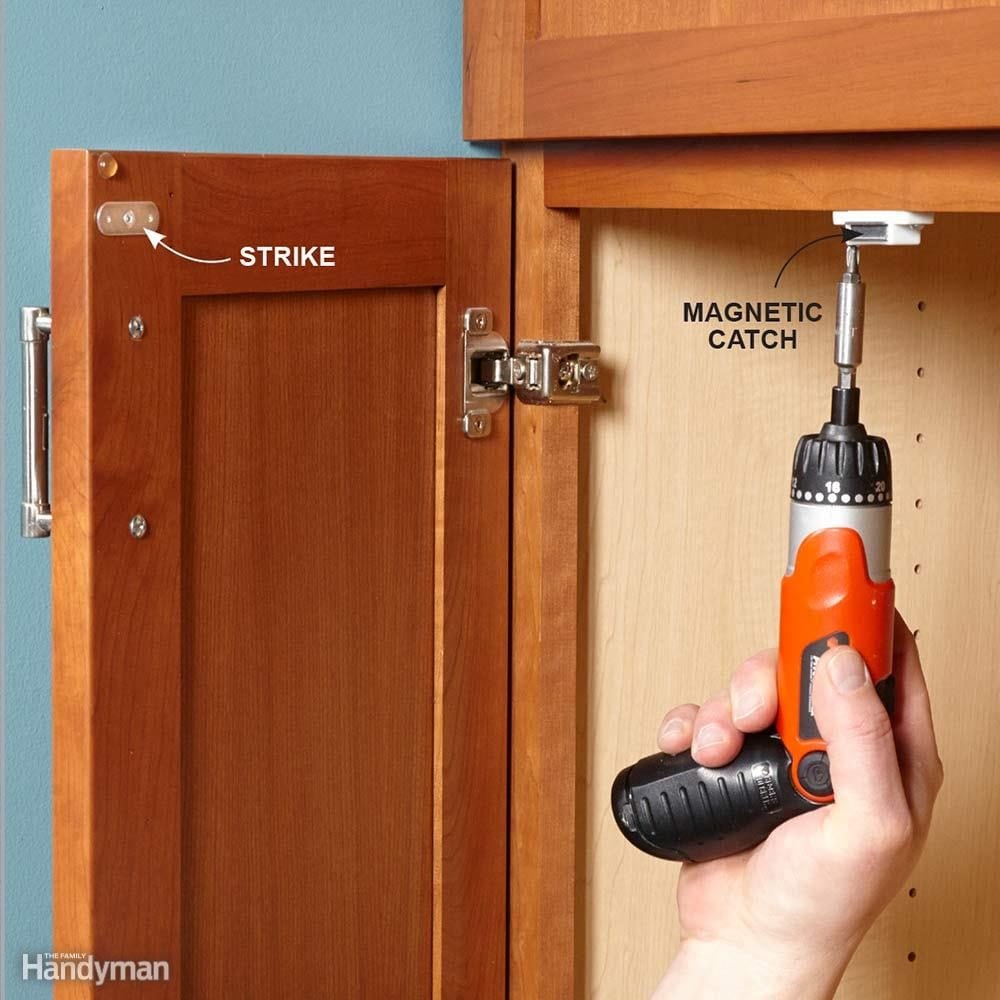
Family Handyman
Keep Cabinet Doors Closed
Here’s a 10-minute fix for a cabinet door that won’t stay closed. Just install a magnetic door catch. Roller-style ones also work, but it’s easier to line up a magnetic catch with the strike.
94 / 100

Family Handyman
Two-Part Filler
Two-part filler has to be mixed and it doesn’t rinse off with water, so it’s not as user friendly as other fillers. However, it’s much tougher and a much better choice for any hole bigger than a nail head, especially outdoors. And it’s not just for wood?you can patch metal, fiberglass?even concrete. Here’s another option for wood filler. Buy some wood filler on Amazon now.
95 / 100
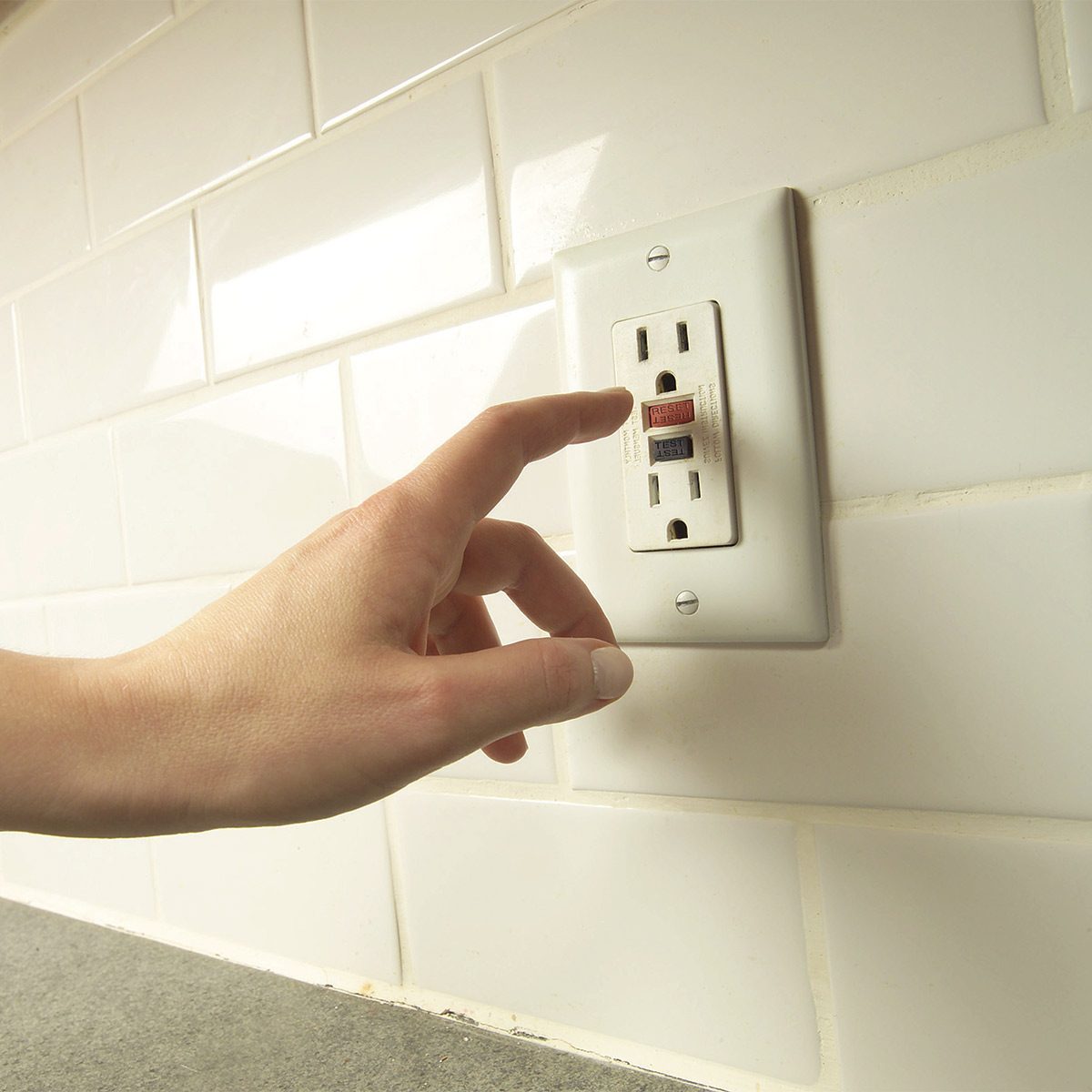
Family Handyman
Simple Fixes for Common Appliance Problems
At least a quarter of all appliance repair calls are resolved with no-brainer solutions like pushing a button or flipping a circuit breaker. Learn what to look for and how to avoid these expensive lessons. Learn all of the simple fixes for common appliance problems.
96 / 100
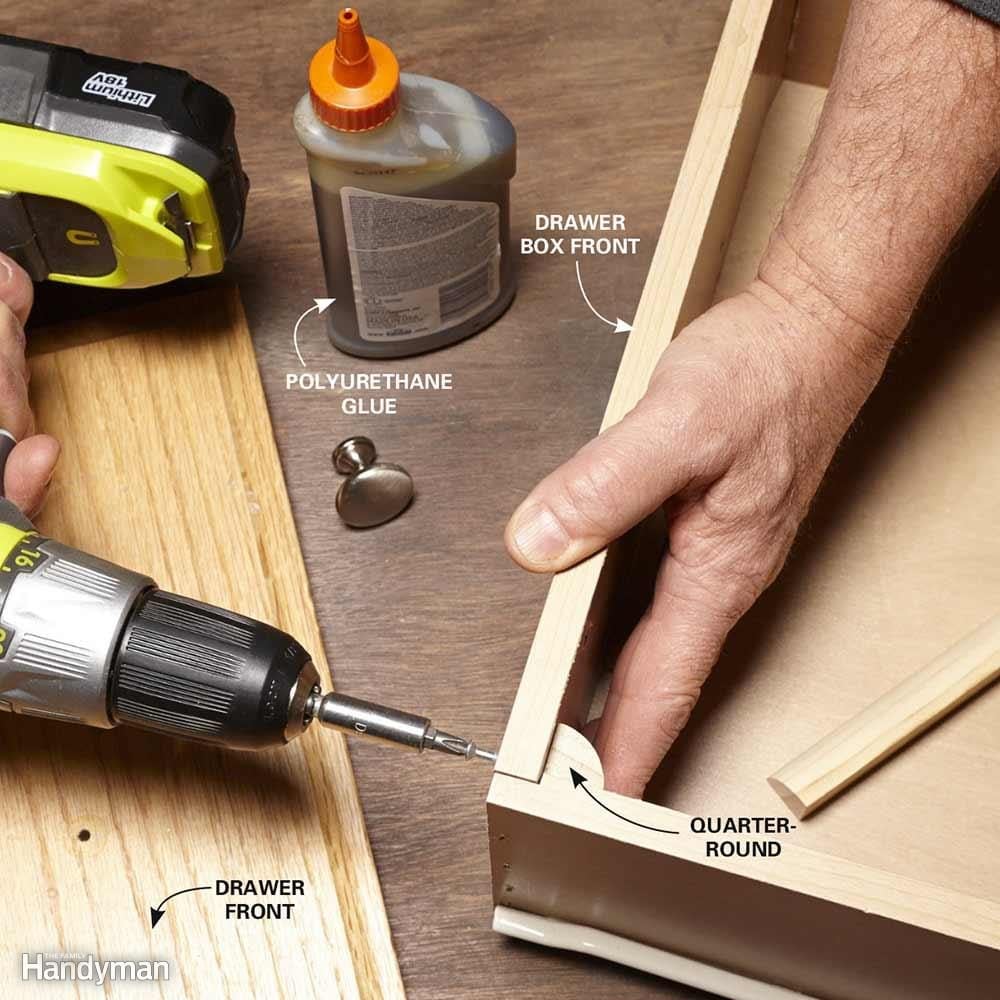
Family Handyman
Reinforce a Drawer Front
Here’s a quick home fix for a drawer front that’s pulling off. Cut a couple of lengths of quarter-round the same height as the drawer sides. Hold them in place while you drill a couple of holes through the sides and front of the drawer box. Dab some polyurethane glue (wood glue doesn’t stick well to finished surfaces) on the pieces of quarter-round before screwing them into place. Here’s how to fix sticky wooden drawers.
97 / 100
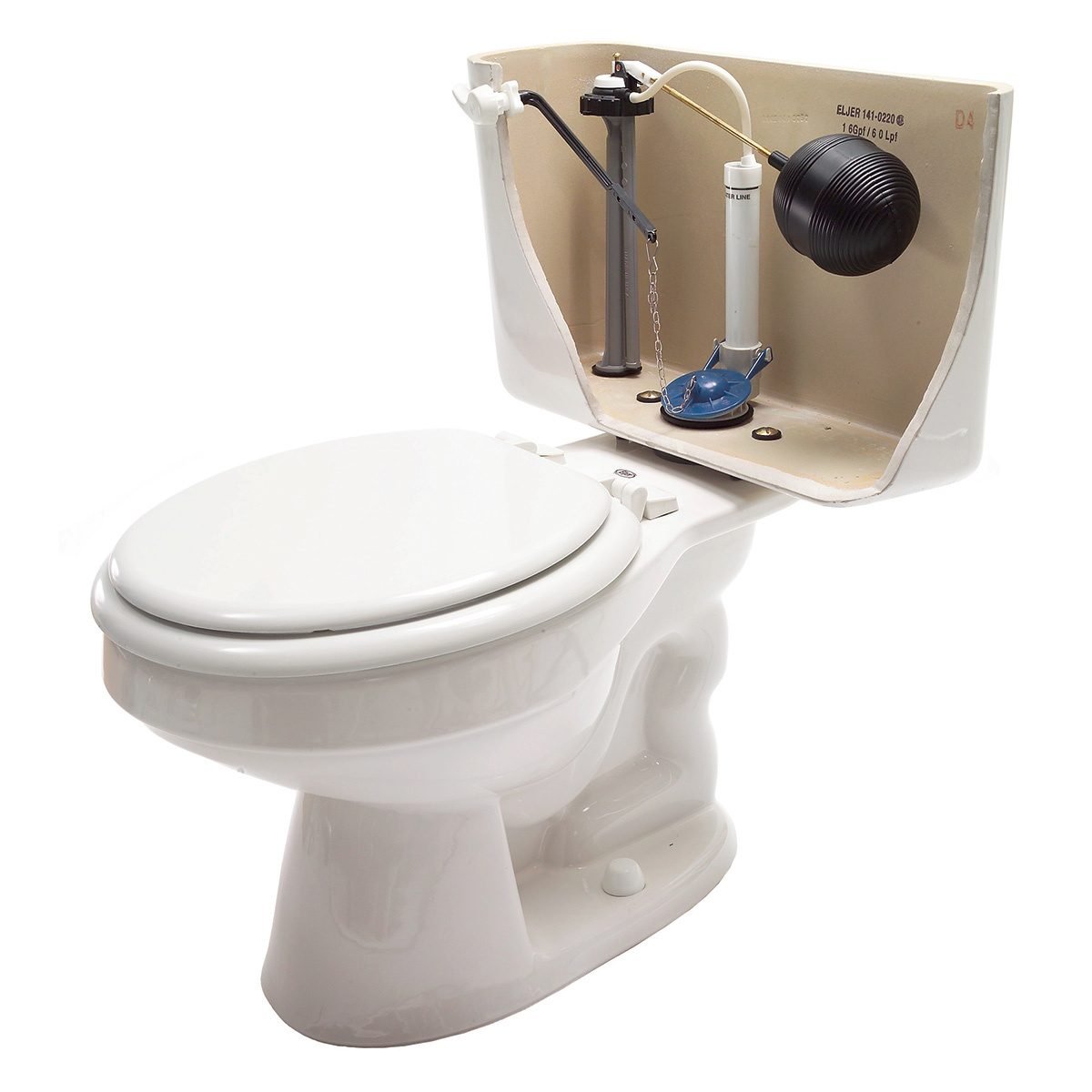
Family Handyman
Toilets
Don’t let your toilet be a mysterious device in the corner of your bathroom: Toilets actually operate by very simple mechanisms that are easy to understand. The majority of toilet issues—clogs, continuous running water, loud noises, etc.—can be solved with the quick purchase of a replacement part and some tinkering in the tank. Don’t be afraid to open it up and take a look. Also note: These are the things you should never, ever flush down a toilet
98 / 100

Family Handyman
Electric Stove Repair Tips
You can solve most electric range burner problems yourself and avoid the expensive service call. It’s quick and easy to replace a burner or bad burner socket. Read the electric stove repair tips.
99 / 100
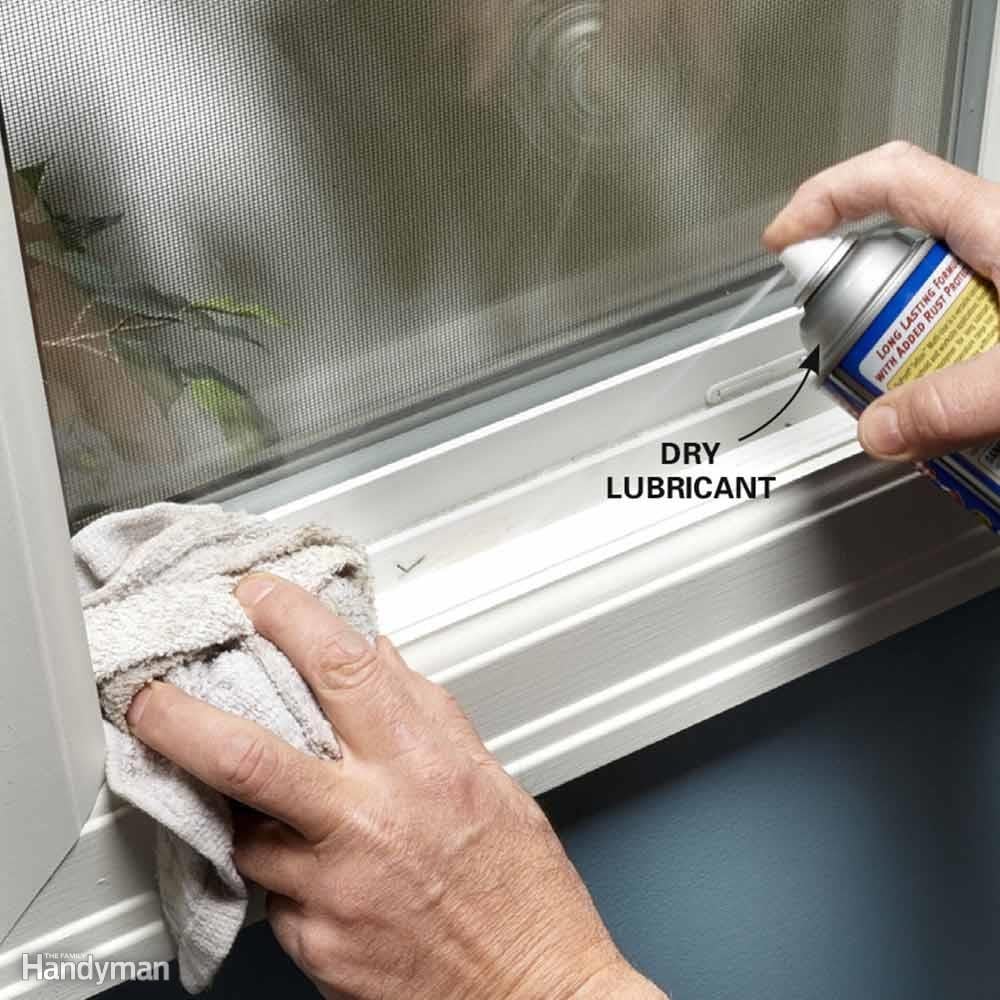
Family Handyman
Lube a Sticking Vinyl Window or Door
When vinyl windows and doors don’t operate smoothly, it’s usually because gunk has built up in the channels. But sometimes even clean windows and doors can bind. Try spraying dry PTFE spray lubricant on the contact points and wiping it off with a rag. Don’t use oil lubricants for this home fix; they can attract dirt, and some can damage the vinyl. Make sure to keep your windows clean all year long with these pro tips.
100 / 100
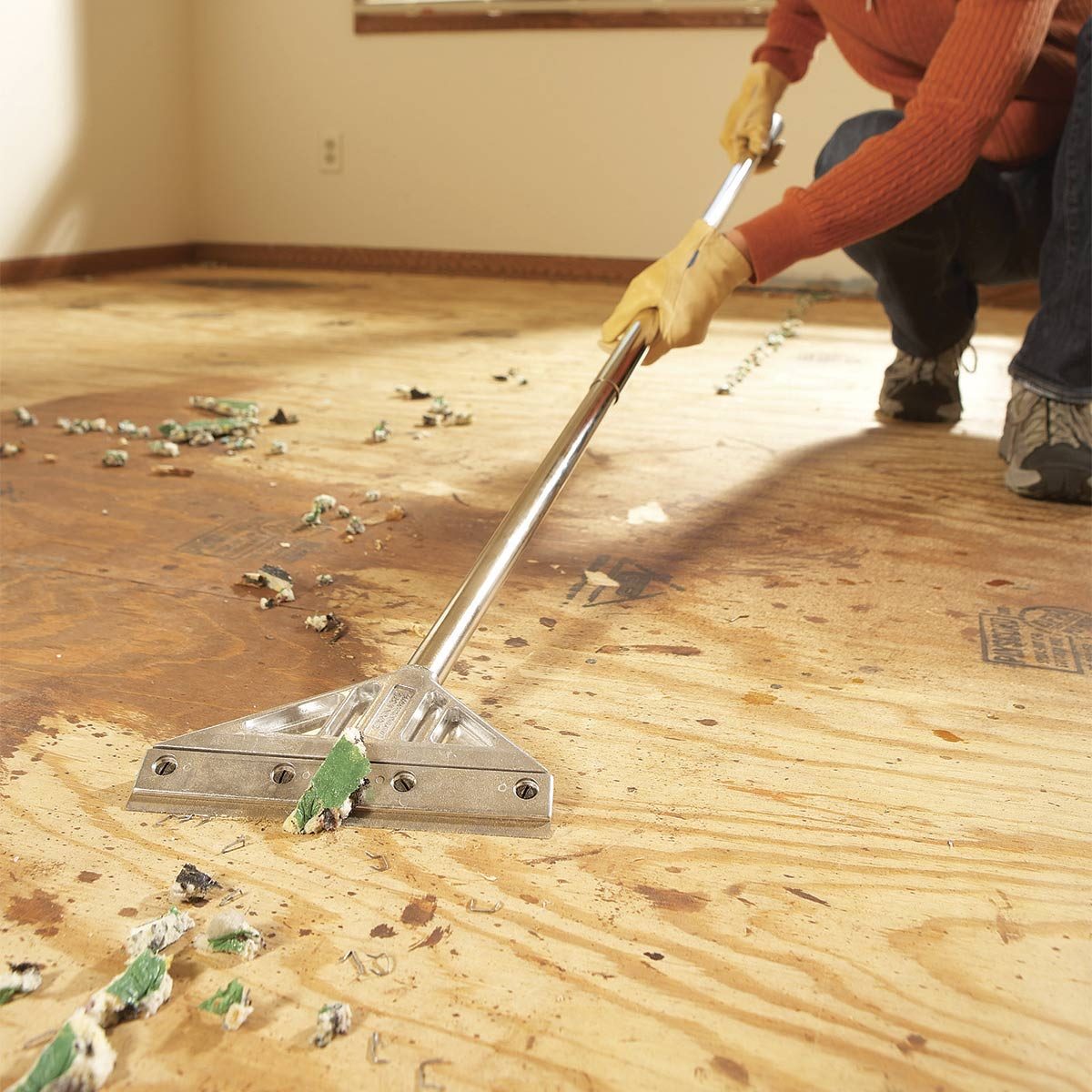
How to Remove Carpet Yourself
Depending on where you live, an installer will charge $3 to $5 per square yard for tear-out. By removing the carpet from a 12 x 15-ft. room, you’ll save $60 to $100 for an hour’s work. Talk to your installer to find out exactly what you’ll save by doing it yourself.
Originally Published:August 06, 2019

